Anniversaries are special because they give you a chance to review, reflect and reminisce all that has been achieved whilst enjoying a metaphorical ‘pat on the back’. To go back 30 years, John Lyon’s Charity was established in 1991 as a grant-giver to help children and young people within North and West London. Since then, we have supported over 1,730 organisations and have given over £156million in grants. Throughout 2021 we are going to be celebrating 30 of the organisations, initiatives and projects we have funded and look at the way they have evolved, grown and enhanced the lives of thousands of children and young people within the Beneficial Area.
30. ESDEG – a shining example of supplementary education
John Lyon’s Charity has long supported the vital work of supplementary schools. Supplementary Schools are community-based initiatives that provide additional educational support for children who are also attending mainstream schools. They are also often geared towards providing specific language, cultural and religious teaching for children from ethnic minorities. 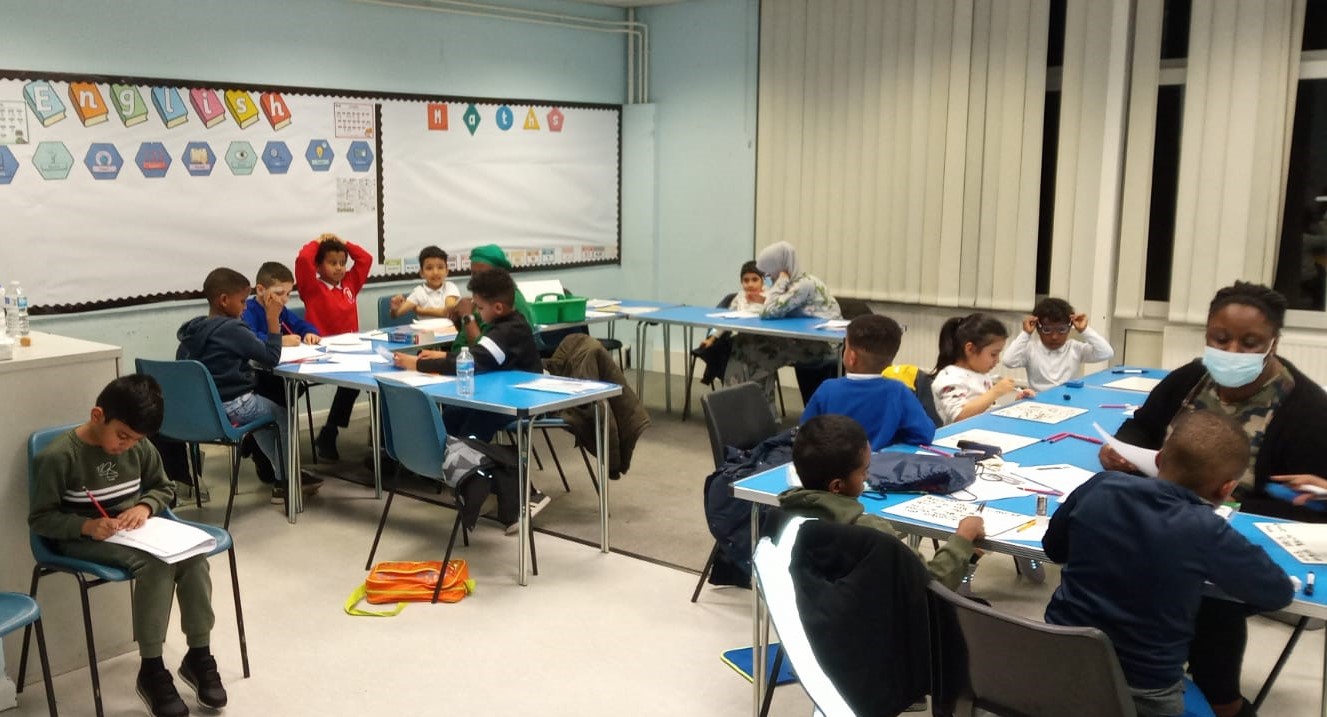 Education and Skills Development Group (ESDEG) is committed to improving the quality of education for disadvantaged children through support and community cohesion. It provides a range of education, training and skills development opportunities to members of their organisation who are from underprivileged communities. The Supplementary Education sector is very important for many reasons; it is where many families from refugee and ethnic minority backgrounds turn to get academic support for their children outside mainstream schools. They provide this additional support with the help of bilingual tutors/teachers and they have volunteers and tutors who are also able to give those most in need of one to one support. Vitally, they are trusted by parents and guardians. Charities like ESDEG also provide parents with bespoke English classes tailored to assist with their children’s homework/schoolwork. Mohamed Ahmed, Director at ESDEG said: “Since its inception in 2005, ESDEG has helped many generations of children and families excel in education and provides routes for parents to transform their lives by going into training and into employment. Our students are now professionals in different sectors, such as medicine, engineering, law, teaching; some of them even come back to help us by teaching and inspiring current students. Former students come in and inspire children helping their motivation and inspiring them to aim high.”
Education and Skills Development Group (ESDEG) is committed to improving the quality of education for disadvantaged children through support and community cohesion. It provides a range of education, training and skills development opportunities to members of their organisation who are from underprivileged communities. The Supplementary Education sector is very important for many reasons; it is where many families from refugee and ethnic minority backgrounds turn to get academic support for their children outside mainstream schools. They provide this additional support with the help of bilingual tutors/teachers and they have volunteers and tutors who are also able to give those most in need of one to one support. Vitally, they are trusted by parents and guardians. Charities like ESDEG also provide parents with bespoke English classes tailored to assist with their children’s homework/schoolwork. Mohamed Ahmed, Director at ESDEG said: “Since its inception in 2005, ESDEG has helped many generations of children and families excel in education and provides routes for parents to transform their lives by going into training and into employment. Our students are now professionals in different sectors, such as medicine, engineering, law, teaching; some of them even come back to help us by teaching and inspiring current students. Former students come in and inspire children helping their motivation and inspiring them to aim high.” 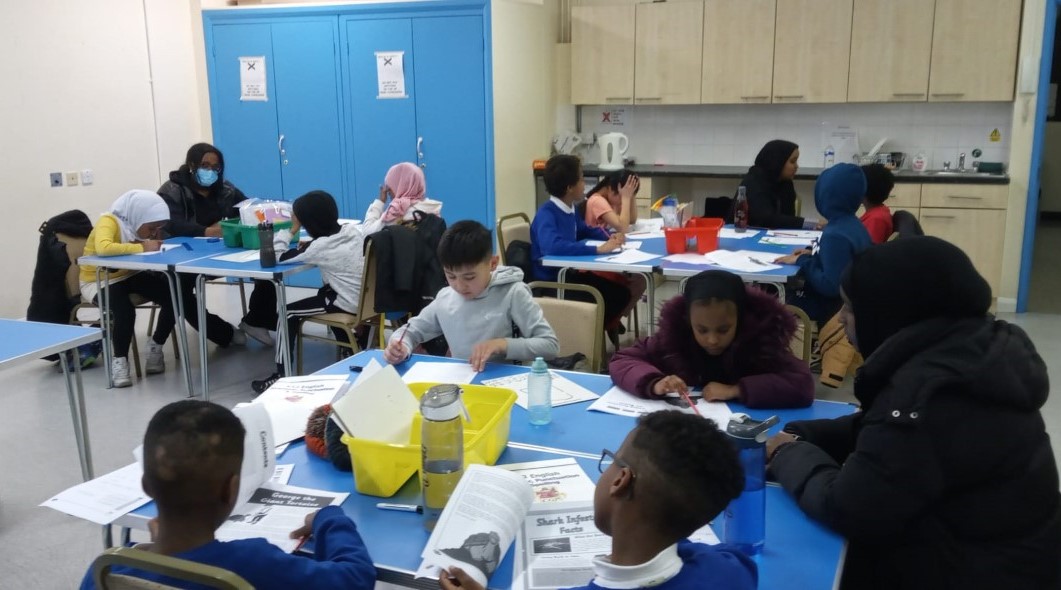 Since 2005, ESDEG has provided services to support members of all faith and ethnic groups who are experiencing disadvantage, exclusion, poor social mobility and inequality. Its high-quality Supplementary Schools are NRCSE-accredited and have been supported by John Lyon’s Charity since 2008. Since then, ESDEG has received c.£290,000 towards its supplementary schools and holiday activities. Mohamed continues: “The funding from John Lyon’s Charity helped ESDEG grow and provide much needed services to the most deprived sections of the community. It helped us secure funds from other funders and has helped others to trust us, too. JLC has helped the children and young people we work with. The success of the children we have taught since 2006 is down to funders like JLC, without their funding it would have been very difficult for those young people to excel in their education and secure successful careers. Grants from JLC has been the backbone to our work and our success is their success.” Delivering support to help young people overcome barriers to educational achievement has always been the cornerstone of ESDEG’s delivery. ESDEG’s goal for the future is to continue to take every opportunity to grow by supporting more young people and by being their voice. ESDEG fully immerses itself in the importance of community empowerment by helping people to know their rights and by encouraging young people to voice their issues. John Lyon’s Charity is very proud to have supported the inspiring work of ESDEG over the years and who shares the same mission to protect the life chances of children and young people.
Since 2005, ESDEG has provided services to support members of all faith and ethnic groups who are experiencing disadvantage, exclusion, poor social mobility and inequality. Its high-quality Supplementary Schools are NRCSE-accredited and have been supported by John Lyon’s Charity since 2008. Since then, ESDEG has received c.£290,000 towards its supplementary schools and holiday activities. Mohamed continues: “The funding from John Lyon’s Charity helped ESDEG grow and provide much needed services to the most deprived sections of the community. It helped us secure funds from other funders and has helped others to trust us, too. JLC has helped the children and young people we work with. The success of the children we have taught since 2006 is down to funders like JLC, without their funding it would have been very difficult for those young people to excel in their education and secure successful careers. Grants from JLC has been the backbone to our work and our success is their success.” Delivering support to help young people overcome barriers to educational achievement has always been the cornerstone of ESDEG’s delivery. ESDEG’s goal for the future is to continue to take every opportunity to grow by supporting more young people and by being their voice. ESDEG fully immerses itself in the importance of community empowerment by helping people to know their rights and by encouraging young people to voice their issues. John Lyon’s Charity is very proud to have supported the inspiring work of ESDEG over the years and who shares the same mission to protect the life chances of children and young people. 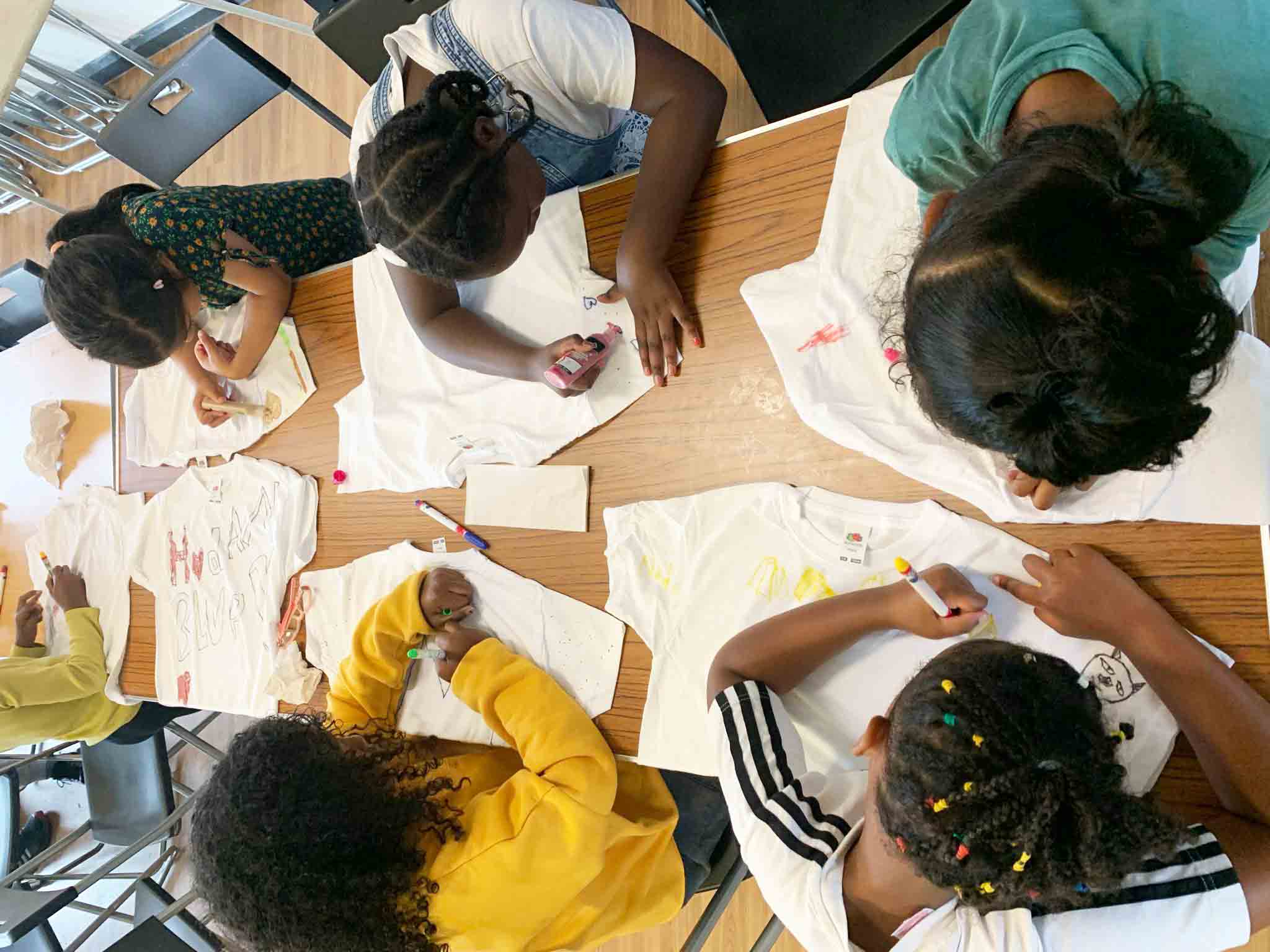
29. The Winch: At the Heart of the Community
The Winch began almost fifty years ago on 12th April 1972 when a group of thirteen local residents reclaimed and repurposed an abandoned pub known as the Winchester Arms. The aim was to provide safe, nurturing spaces for young people to grow and to create a centre in which the community could celebrate, collaborate and contribute to the Camden community and ensure that the groups that operated in Camden were protected and supported. The local residents repaired the building from the ground up with the help of the neighbours and friends and in 1973, The Winchester Project was officially born.
Since its founding almost 50 years ago, the Winch has worked with thousands of children, young people and their families across Camden to make their hopes and ambitions a reality. For nearly 30 of these years, John Lyon’s Charity has worked alongside the Winch in this aim. Together, we have supported each other to help children and young people to succeed, regardless of their circumstances. Today, the Winch works to build a stronger community in north Camden, creating an environment where every young person can thrive. To achieve this, the Winch provides a ‘cradle-to-career’ pipeline of opportunity, offering support to children during their vital early years and building long-term, trusting relationships right up until they are 25 years old.  Alex Hickey, Senior Fundraising Officer at The Winch said: “In a borough filled with opportunity and prosperity for many, the reality for the people we support is very different. In Camden, more than one in three children grow up in poverty, and fewer than one in three feel safe in their local community. When young people fall behind because of problems at school and at home, it is very difficult for them to ‘catch up’. At the Winch, we aim to make sure that children and young people grow up with the skills and confidence they need to succeed, and support them to realise their full potential.” The pandemic revealed many of the systemic inequalities young people and their communities face. As society moves into the next phase of challenge and recovery, disadvantaged communities still have to overcome additional barriers to opportunity.
Alex Hickey, Senior Fundraising Officer at The Winch said: “In a borough filled with opportunity and prosperity for many, the reality for the people we support is very different. In Camden, more than one in three children grow up in poverty, and fewer than one in three feel safe in their local community. When young people fall behind because of problems at school and at home, it is very difficult for them to ‘catch up’. At the Winch, we aim to make sure that children and young people grow up with the skills and confidence they need to succeed, and support them to realise their full potential.” The pandemic revealed many of the systemic inequalities young people and their communities face. As society moves into the next phase of challenge and recovery, disadvantaged communities still have to overcome additional barriers to opportunity. 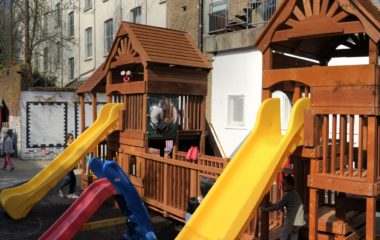 Alex adds: “John Lyon’s Charity funding has historically enabled us to deliver transformational services in ways that our communities deserve and appreciate. Following the disruption to schooling caused by Covid-19, John Lyon’s Charity funding enabled children in Camden to reignite their desire to learn by attending our Ofsted outstanding after school club and holiday provision. As our founders envisaged, we provided a safe, caring and trusted space for local children and their families. This helped our community weather some of the impacts of lockdown. We have a great relationship with John Lyon’s Charity and are extremely grateful for their support. We are proud of the work we have done together supporting the north Camden community.”
Alex adds: “John Lyon’s Charity funding has historically enabled us to deliver transformational services in ways that our communities deserve and appreciate. Following the disruption to schooling caused by Covid-19, John Lyon’s Charity funding enabled children in Camden to reignite their desire to learn by attending our Ofsted outstanding after school club and holiday provision. As our founders envisaged, we provided a safe, caring and trusted space for local children and their families. This helped our community weather some of the impacts of lockdown. We have a great relationship with John Lyon’s Charity and are extremely grateful for their support. We are proud of the work we have done together supporting the north Camden community.”
28. Camden Art Centre: a place for art and artists; a place for the curious, the novice and the expert alike
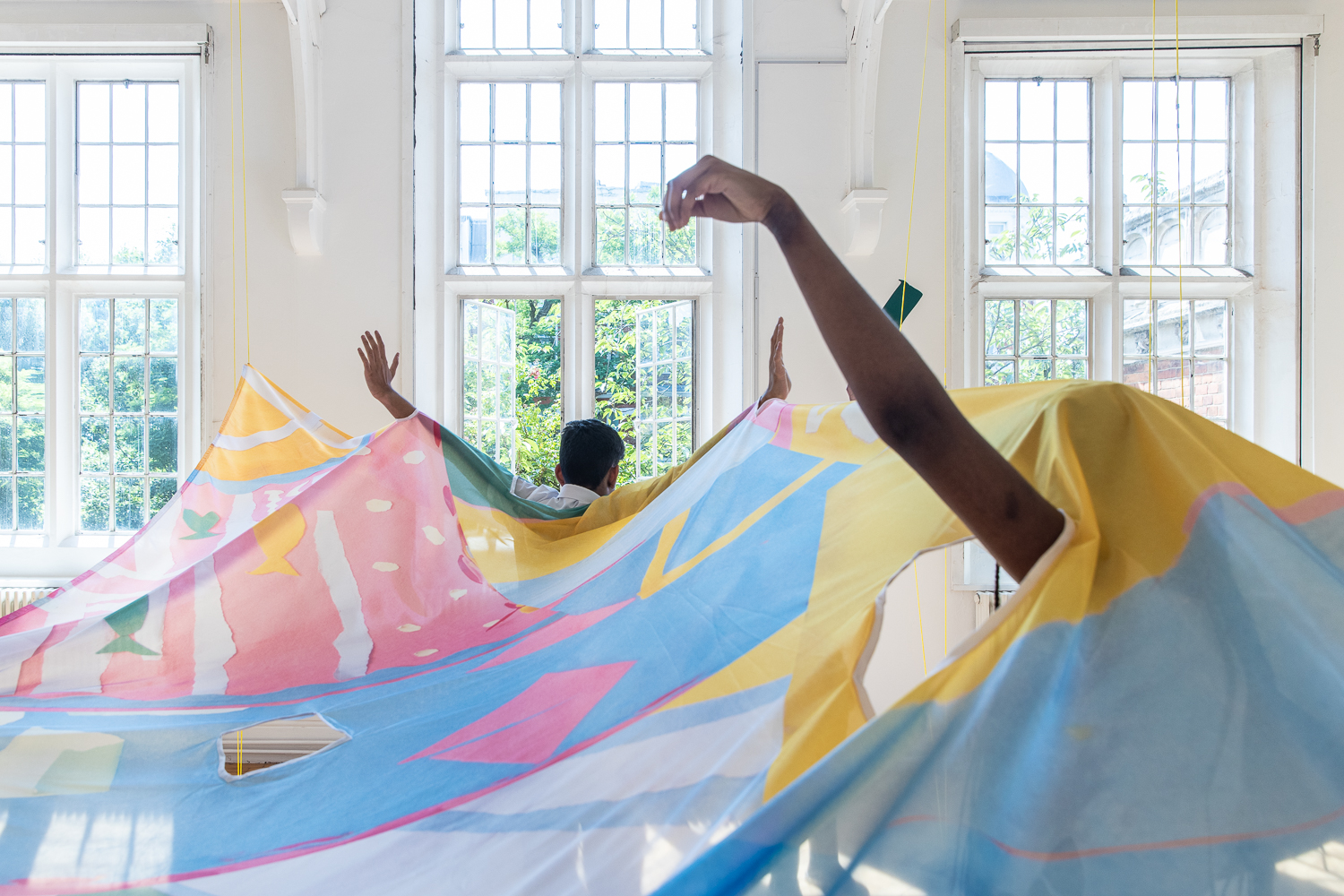 Founded in 1965 and housed in the Grade II listed former Hampstead Central Library building, Camden Art Centre is a world class contemporary visual arts space dedicated to engaging with the highest calibre artists from across the international arts scene. Camden Art Centre was among the first organisations to receive support from John Lyon’s Charity and has been granted c. £491,000 since 1992. Rooted within the North West London community, Camden Art Centre works closely with local schools, community groups and specialist partners who nurture the next generation of artists, from early years to adulthood, enabling everyone to get up close to art, to meet artists and create art themselves. Exhibitions and the learning programmes at Camden Art Centre are developed with equal importance and are intrinsically connected. There is a focus on reaching out to low-income children and families, young people, those who face barriers to further education and young people with profound and multiple learning disabilities.
Founded in 1965 and housed in the Grade II listed former Hampstead Central Library building, Camden Art Centre is a world class contemporary visual arts space dedicated to engaging with the highest calibre artists from across the international arts scene. Camden Art Centre was among the first organisations to receive support from John Lyon’s Charity and has been granted c. £491,000 since 1992. Rooted within the North West London community, Camden Art Centre works closely with local schools, community groups and specialist partners who nurture the next generation of artists, from early years to adulthood, enabling everyone to get up close to art, to meet artists and create art themselves. Exhibitions and the learning programmes at Camden Art Centre are developed with equal importance and are intrinsically connected. There is a focus on reaching out to low-income children and families, young people, those who face barriers to further education and young people with profound and multiple learning disabilities. 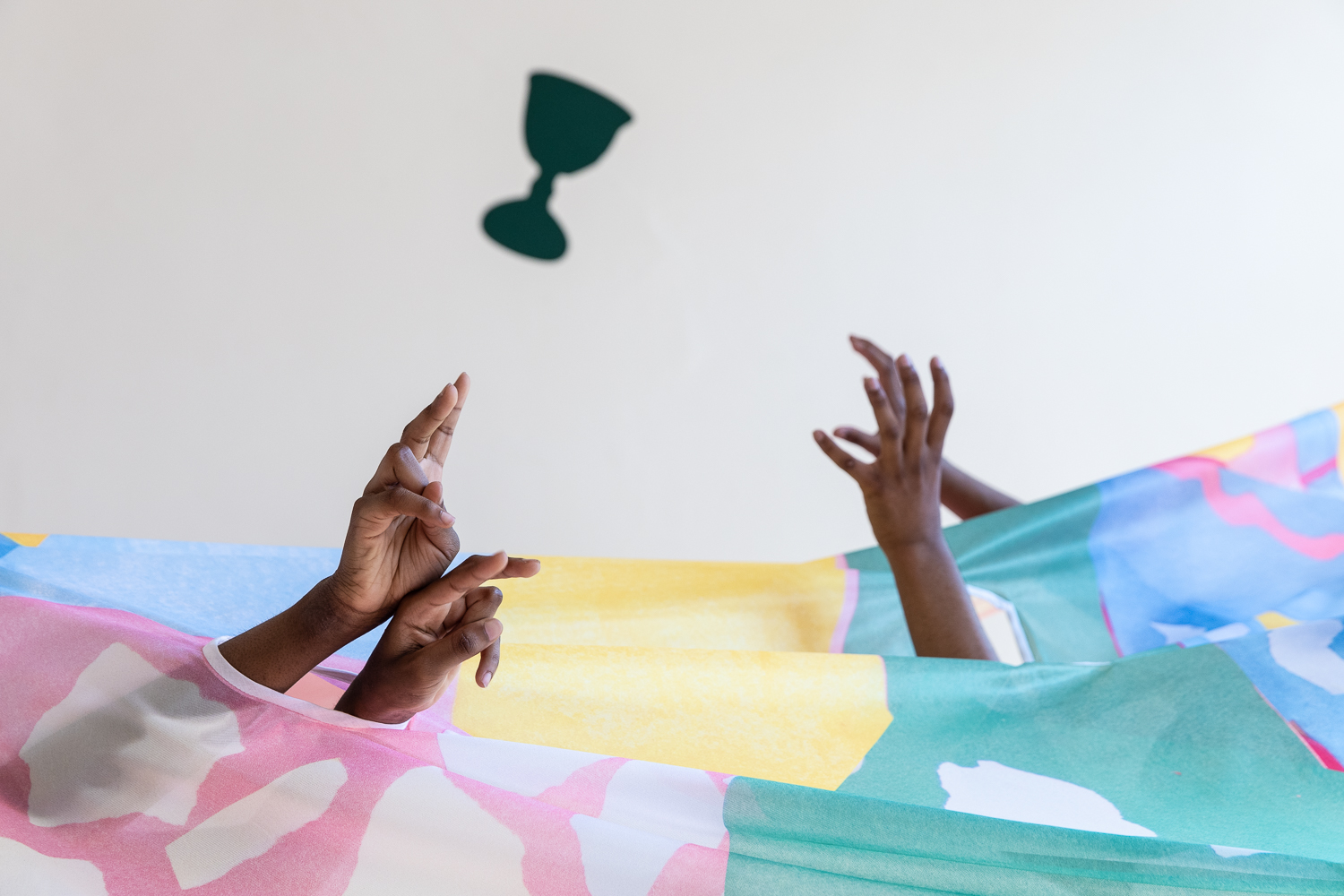 The Learning Programme follows four main strands: an open access Saturday Youth Programme, a SEN Schools project, an intensive Primary School Project and a bi-weekly Sunday drop-in programme targeted at local families. These programmes are all delivered by artists in collaboration with the education team. At a time when take up of GCSE art subject is in decline and the rising costs of higher education is making formal education more prohibitive, Camden Art Centre offers an opportunity to inspire young people and provide an alternative access point into the arts. Martin Clark, Camden Art Centre’s Director said: “Our learning programmes for young people have always been at the heart of our work and mission. The Gallery has an exceptionally long track record of working creatively with young people and has long regarded its learning programmes as having parity with its exhibitions and residency programmes.” John Lyon’s Charity has been one of Camden Art Centre’s most longstanding, trusted and steadfast supporters of their creative learning programmes. Neil Debnam, Head of Development at Camden Art Centre said: “Funding from John Lyon’s Charity has directly underpinned our work with thousands of individual, disadvantaged young people under the age of 25 years living, or being educated in, the boroughs of Camden, Brent, Barnet and Harrow, and, over the years, has helped us deepen and consolidate our work in these areas. As part of our recent grant, JLC funding has helped us to discover, nurture and support the next generation of artists and arts audiences; breaking down barriers to engagement; targeting disengaged and disadvantaged young people, including those with the most specialist needs.”
The Learning Programme follows four main strands: an open access Saturday Youth Programme, a SEN Schools project, an intensive Primary School Project and a bi-weekly Sunday drop-in programme targeted at local families. These programmes are all delivered by artists in collaboration with the education team. At a time when take up of GCSE art subject is in decline and the rising costs of higher education is making formal education more prohibitive, Camden Art Centre offers an opportunity to inspire young people and provide an alternative access point into the arts. Martin Clark, Camden Art Centre’s Director said: “Our learning programmes for young people have always been at the heart of our work and mission. The Gallery has an exceptionally long track record of working creatively with young people and has long regarded its learning programmes as having parity with its exhibitions and residency programmes.” John Lyon’s Charity has been one of Camden Art Centre’s most longstanding, trusted and steadfast supporters of their creative learning programmes. Neil Debnam, Head of Development at Camden Art Centre said: “Funding from John Lyon’s Charity has directly underpinned our work with thousands of individual, disadvantaged young people under the age of 25 years living, or being educated in, the boroughs of Camden, Brent, Barnet and Harrow, and, over the years, has helped us deepen and consolidate our work in these areas. As part of our recent grant, JLC funding has helped us to discover, nurture and support the next generation of artists and arts audiences; breaking down barriers to engagement; targeting disengaged and disadvantaged young people, including those with the most specialist needs.” 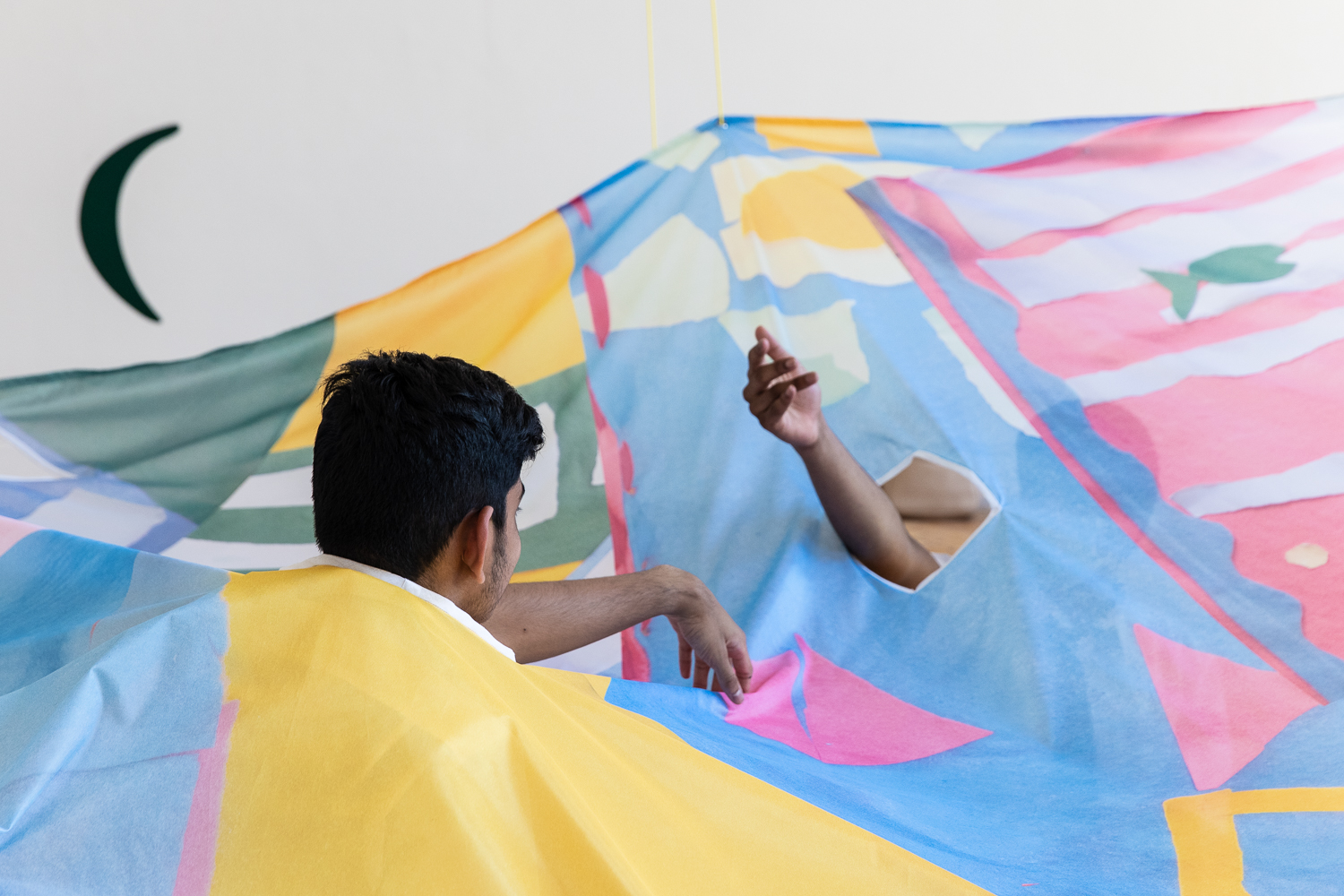 The flexibility and support of John Lyon’s Charity during the past few years has meant a lot to several organisations, including Camden Art Centre. Neil adds:“John Lyon’s Charity has supported Camden Art Centre over many years, but it has always been more than a just a funding relationship; JLC has been a partner, advocate and critical friend to the Gallery and its learning work. Most recently, John Lyon’s Charity provided core support for our learning team over three years. This grant has been of enormous assistance to developing and sustaining our work over a time of exceptional disruption to the lives of the young people we work with due to the pandemic.” As the UK emerges from the pandemic, Camden Art Centre is more ambitious than ever to meet the creative learning needs of young people. After a period of retrenchment, the gallery is keen to renew and refresh its programmes to ultimately reach young people in new and exciting ways. John Lyon’s Charity is proud to have supported Camden Art Centre for the last thirty years and expects to continue to see great things from the Gallery in the future.
The flexibility and support of John Lyon’s Charity during the past few years has meant a lot to several organisations, including Camden Art Centre. Neil adds:“John Lyon’s Charity has supported Camden Art Centre over many years, but it has always been more than a just a funding relationship; JLC has been a partner, advocate and critical friend to the Gallery and its learning work. Most recently, John Lyon’s Charity provided core support for our learning team over three years. This grant has been of enormous assistance to developing and sustaining our work over a time of exceptional disruption to the lives of the young people we work with due to the pandemic.” As the UK emerges from the pandemic, Camden Art Centre is more ambitious than ever to meet the creative learning needs of young people. After a period of retrenchment, the gallery is keen to renew and refresh its programmes to ultimately reach young people in new and exciting ways. John Lyon’s Charity is proud to have supported Camden Art Centre for the last thirty years and expects to continue to see great things from the Gallery in the future.
27. Mousetrap: opening doors for all to experience world-class theatre
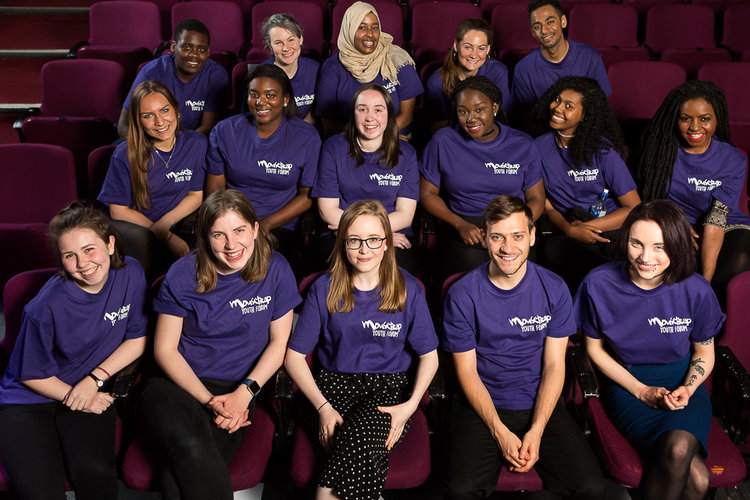 John Lyon’s Charity is a major supporter of Theatre in Education and over the last thirty years we have supported some of the most well-known theatres in London. As well as some substantial capital support from the Charity, there is continuing support for a wide range of projects encompassing access schemes. One charity that has been able to bring the arts and young people together for many years is Mousetrap Theatre Projects. Established in 1997 with seed funding from the world’s longest running show – The Mousetrap, the producer at the time, Sir Stephen Waley-Cohen, wanted to give back to society and established the charity. The initial aim was to bring children and young people to the theatre who would not otherwise be able to attend.
John Lyon’s Charity is a major supporter of Theatre in Education and over the last thirty years we have supported some of the most well-known theatres in London. As well as some substantial capital support from the Charity, there is continuing support for a wide range of projects encompassing access schemes. One charity that has been able to bring the arts and young people together for many years is Mousetrap Theatre Projects. Established in 1997 with seed funding from the world’s longest running show – The Mousetrap, the producer at the time, Sir Stephen Waley-Cohen, wanted to give back to society and established the charity. The initial aim was to bring children and young people to the theatre who would not otherwise be able to attend.
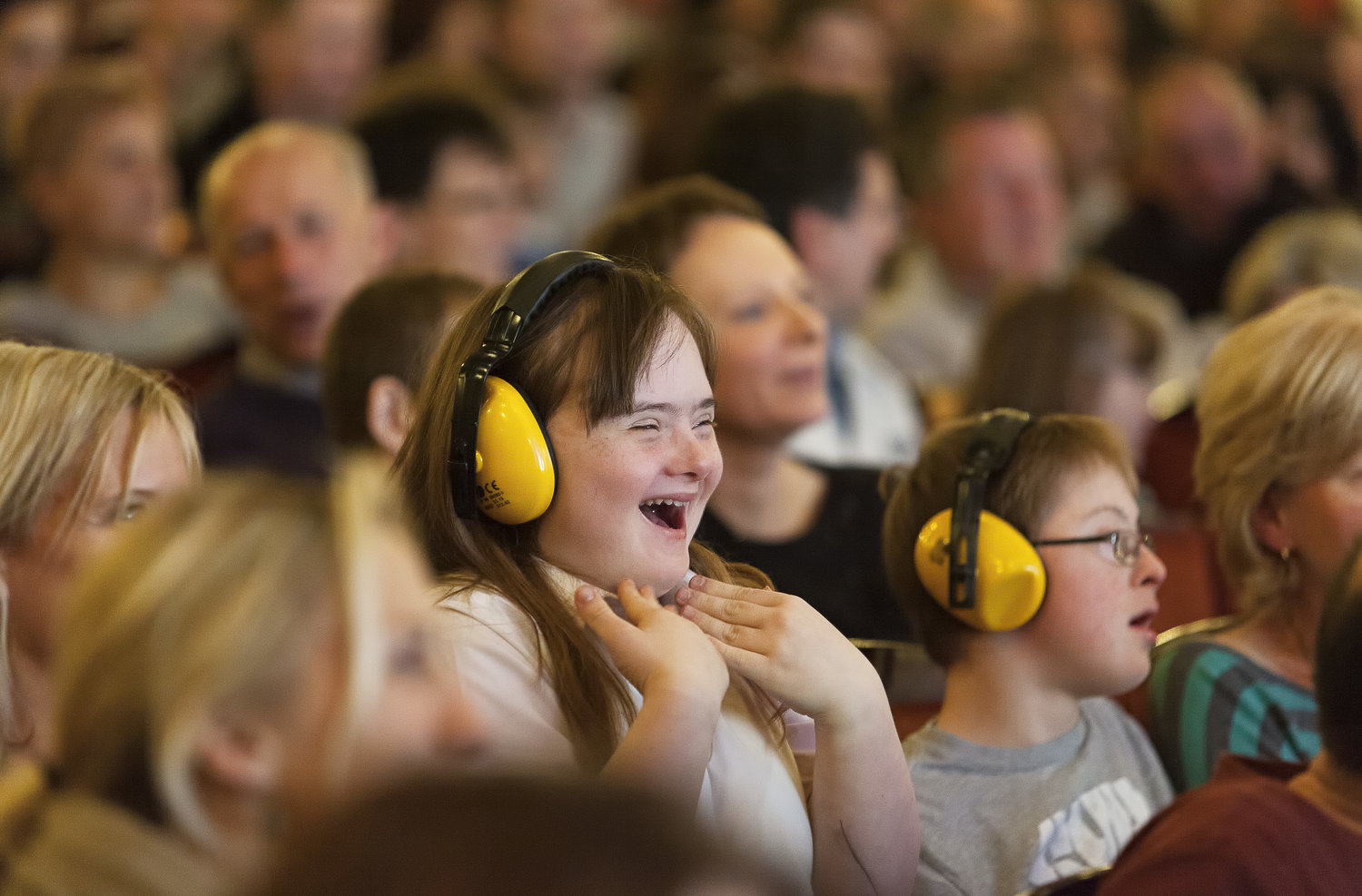
Mousetrap Theatre’s Relaxed Performance of Mamma Mia! at the Novello Theatre
Now, Mousetrap Theatre Projects creates a wide range of opportunities for disadvantaged young people and families to attend and experience London’s world-class theatre. Each year, the charity runs a range of subsidised theatregoing programmes and Creative Learning projects which help to make London’s incredible theatre scene accessible to young people, low-income families, mainstream and SEND state schools and those with additional needs. Under the leadership of founding CEO Susan Whiddington, 215,000 children and young people have benefited over the last 25 years. Gayle Bryans, Deputy Director at Mousetrap Theatre Projects said: “The arts are vital to the human experience. Participating in drama and theatre-making has powerful effects when used as a tool for personal change. It can transform self- confidence and self-esteem, teach valuable life, work and social skills and improve our mental health. We believe all children and young people should have the chance to experience these benefits, regardless of their background. Unfortunately, many cannot. The high cost is an obvious factor, but just as significant are social and cultural barriers and the lack of support for those who are vulnerable or have special education needs and disabilities. This means that disadvantaged children and young people miss out on the life-enhancing benefits that seeing and participating in theatre bring.”
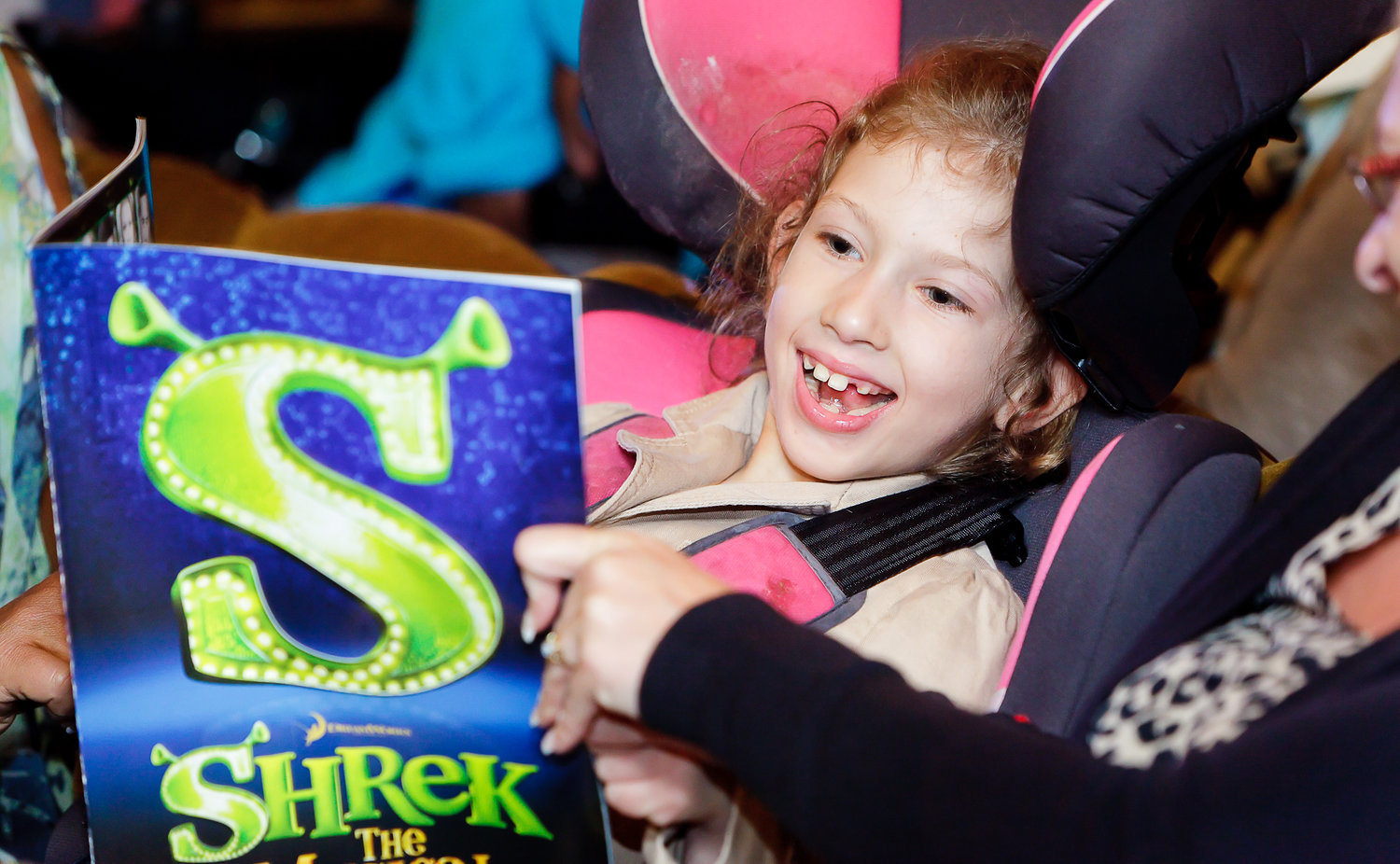
Mousetrap Theatre Productions takes over the Theatre Royal, Drury Lane, with an invitation to see ‘Shrek’.
John Lyon’s Charity has funded Mousetrap since 2001, awarding over £318,000 in grants. Gayle adds: “The funding has supported such a wide range of our theatregoing and theatre education projects, over so many years. It has enabled thousands of children and young people to attend London’s world-class theatre, opening their cultural horizons and giving them new, inspiring experiences. It has funded young people to take part in projects teaching playwriting, composing for musicals, critiquing theatre and learning about the business-side of theatre.” The pandemic had a detrimental effect on Mousetrap’s delivery due to the closure of West End theatres. Thankfully, as we ease out of lockdown, theatres have once again reopened and Mousetrap has been able to resume its vital service. John Lyon’s Charity has always strived to protect the arts to ensure children and young people can experience the beauty of it. As Oscar Wilde once said: “I regard the theatre as the greatest of all art forms, the most immediate way in which a human being can share with another the sense of what it is to be a human being.” JLC is proud to support Mousetrap and its mission to ensure all children and young people experience the same life-chances as anyone else.
26. Parents of Ealing Self Help Training Scheme P.E.S.T.S (now known as Ealing Anchor Foundation): providing vital support to families of children with disabilities
John Lyon’s Charity has always been committed to providing opportunities for young people who have a special need or disability. We have funded a wide variety of activities that gives disabled children the opportunities to try new skills, have greater social interaction and builds up their confidence. 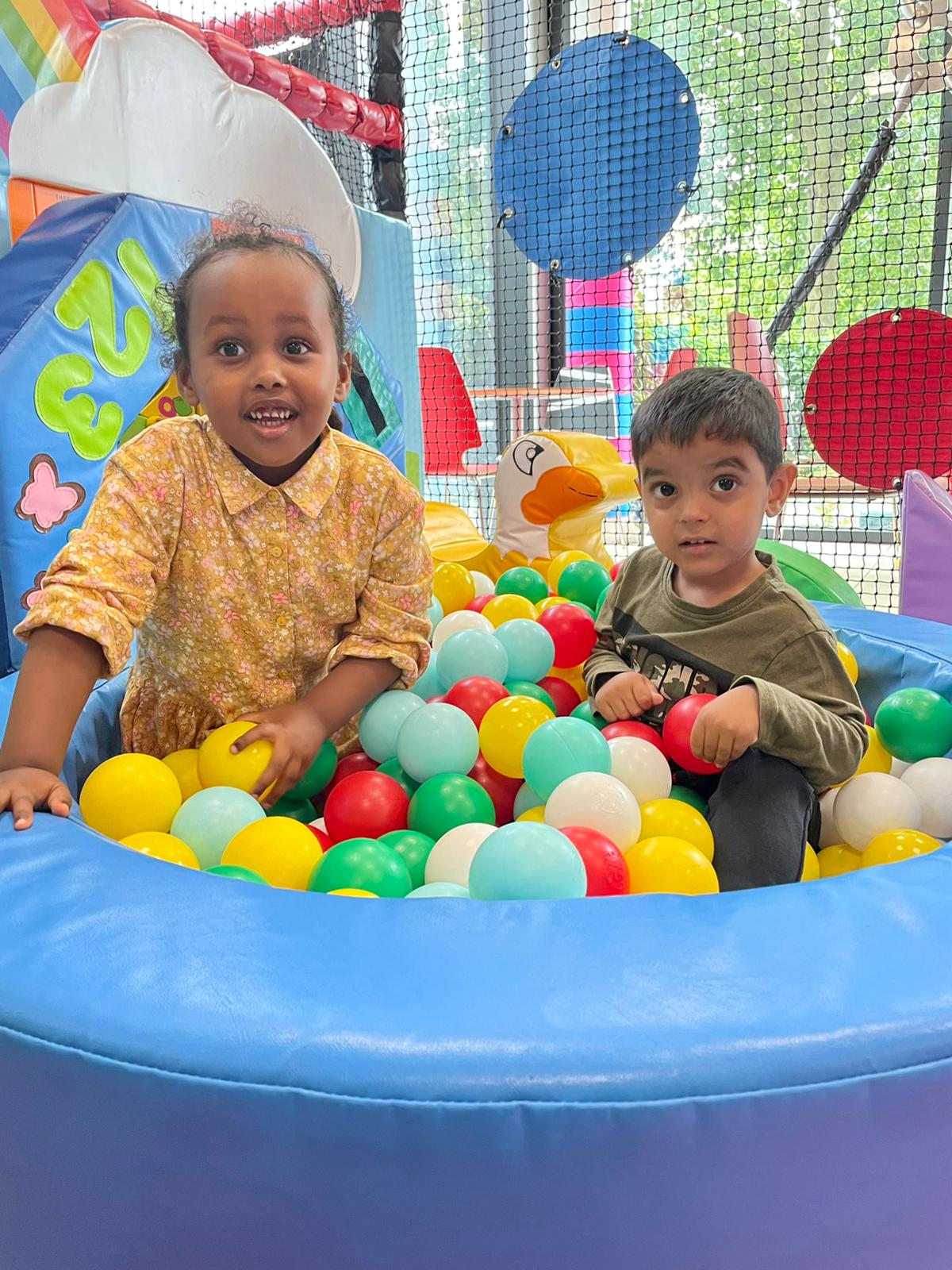 Parents of Ealing Self Help Training Scheme (P.E.S.T.S) is a support group for families with under 5’s who have a disability, complex need or additional need. It was founded more than 40 years ago in 1981 by Sue Humphries, the parent of a son with a disability. At the time, there was no local network or support hub for families facing the complex challenges around providing additional support for their children with special needs and it was clear to Sue, and many other parents in similar positions, that a gap needed to be filled to ensure families of children with additional needs were supported. This was the beginning of P.E.S.TS. P.E.S.T.S’ is a vital service. Families of disabled children have the same hopes and dreams as other families and once a parent realises their child is disabled, they are often left managing an overriding sense of fear, confusion and grief. To find a place where all of this is understood by others who are going through the same emotions, helps them feel less isolated and more hopeful at the beginning of the challenging journey that will be their child’s life. The play and support sessions, as well as regular social events, give children the opportunity to spend quality time with parents whilst enjoying a positive ‘whole family’ experience. Attending these types of activities also improves relationships between siblings and their disabled brother or sister and helps limit family breakdown. Joy Barton, Manager of P.E.S.T.S said: “We are working with some of the most vulnerable and isolated families in our community who are facing many challenges. Disabled children are at greater risk of growing up in a low income, deprived or disadvantaged family than those without disabilities, with children sometimes not being accepted due to stigma, lack of awareness or language difficulties.”
Parents of Ealing Self Help Training Scheme (P.E.S.T.S) is a support group for families with under 5’s who have a disability, complex need or additional need. It was founded more than 40 years ago in 1981 by Sue Humphries, the parent of a son with a disability. At the time, there was no local network or support hub for families facing the complex challenges around providing additional support for their children with special needs and it was clear to Sue, and many other parents in similar positions, that a gap needed to be filled to ensure families of children with additional needs were supported. This was the beginning of P.E.S.TS. P.E.S.T.S’ is a vital service. Families of disabled children have the same hopes and dreams as other families and once a parent realises their child is disabled, they are often left managing an overriding sense of fear, confusion and grief. To find a place where all of this is understood by others who are going through the same emotions, helps them feel less isolated and more hopeful at the beginning of the challenging journey that will be their child’s life. The play and support sessions, as well as regular social events, give children the opportunity to spend quality time with parents whilst enjoying a positive ‘whole family’ experience. Attending these types of activities also improves relationships between siblings and their disabled brother or sister and helps limit family breakdown. Joy Barton, Manager of P.E.S.T.S said: “We are working with some of the most vulnerable and isolated families in our community who are facing many challenges. Disabled children are at greater risk of growing up in a low income, deprived or disadvantaged family than those without disabilities, with children sometimes not being accepted due to stigma, lack of awareness or language difficulties.” 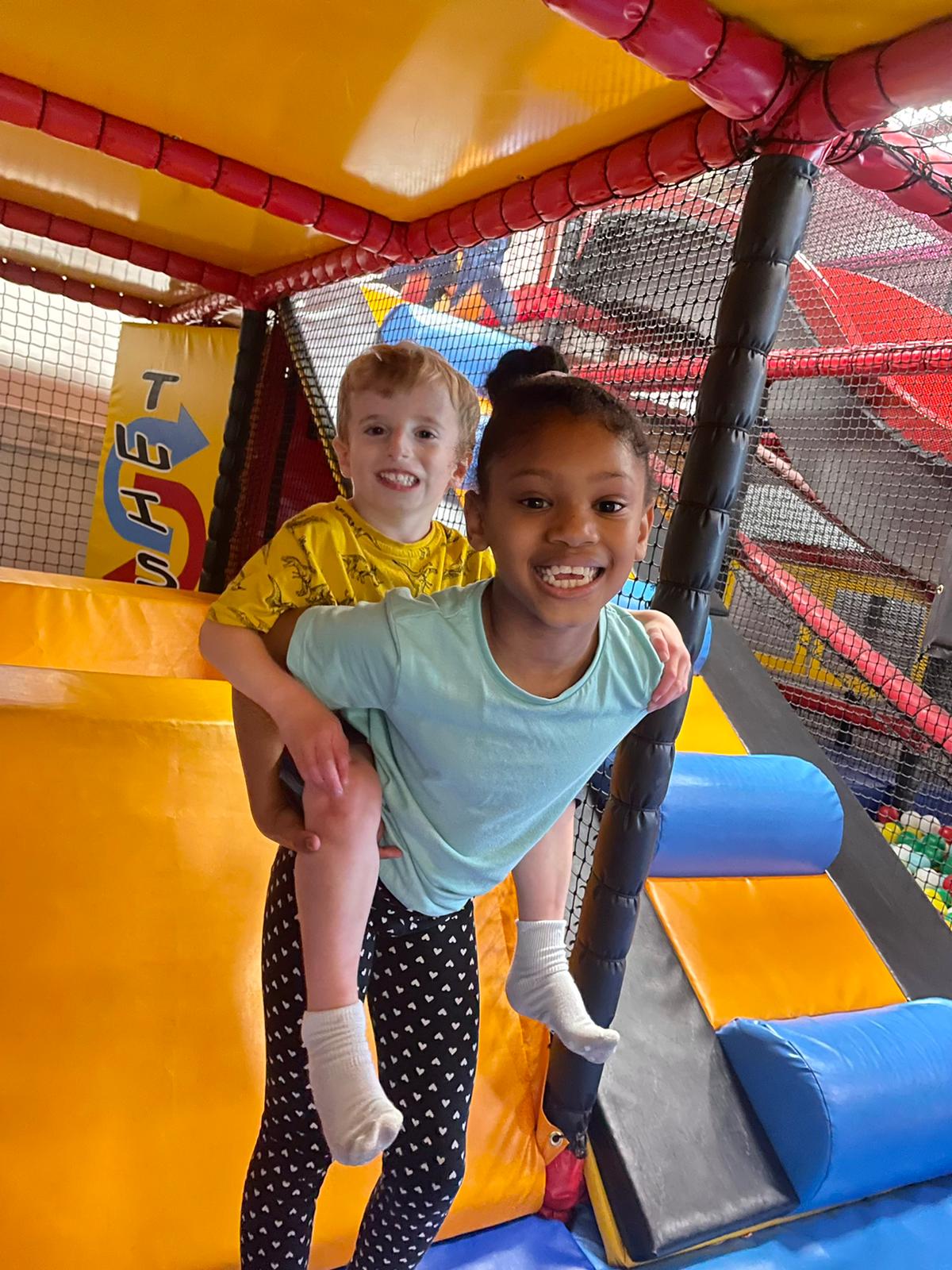 JLC has supported P.E.S.T.S (now known as Ealing Anchor Foundation) Since 2004 and awarded the organisation over £189,000 in funding. Joy continues: “Funding from John Lyon’s Charity has without a doubt made a substantial difference to our charity. It has given P.E.S.T.S. an invaluable opportunity to gain a strong foothold in the borough, where we have continued to expand our reach each and every year allowing us to establish strong links at local level, gaining a great reputation for helping many families across the borough where statutory services cannot.” Judith Finlay, Executive Director Children, Adults and Public Health Ealing Council, confirmed P.E.S.T.S reputation by saying: “P.E.S.T.S is truly making a difference to lives of children and families in Ealing. I believe that this is a tremendous resource and support to parents coping with very difficult problems. Their dedication, commitment and support is immeasurable and they remain a vital link and support to parents who have children with additional needs” Sadly, the Covid-19 pandemic has hit many families hard with the impact lasting a very long time. Devastatingly, families are now facing new emotional and practical pressures on top of existing, ongoing concerns in relation to their child’s development. Joy adds: “We will continue to work closely with local statutory and voluntary services who share our values, advocating for the most vulnerable families, ensuring they are represented, continuing to signpost and refer as required, throughout the uncertainty that lies ahead. In this way we know we can make a real and lasting difference. The charity will still continue to offer the same vital services, in the same location with the same ethos.” Inclusion and access have always been at the heart of JLC’s grant-making, funding important projects and creating opportunities for young people with special needs and disabilities. The focus of our funding is on projects that support all children and young people to have more opportunities and to expose them to this outside their normal experiences. We are proud to have supported P.E.S.T.S and the lifechanging work the charity has achieved in its mission to support families of children with disabilities and additional needs.
JLC has supported P.E.S.T.S (now known as Ealing Anchor Foundation) Since 2004 and awarded the organisation over £189,000 in funding. Joy continues: “Funding from John Lyon’s Charity has without a doubt made a substantial difference to our charity. It has given P.E.S.T.S. an invaluable opportunity to gain a strong foothold in the borough, where we have continued to expand our reach each and every year allowing us to establish strong links at local level, gaining a great reputation for helping many families across the borough where statutory services cannot.” Judith Finlay, Executive Director Children, Adults and Public Health Ealing Council, confirmed P.E.S.T.S reputation by saying: “P.E.S.T.S is truly making a difference to lives of children and families in Ealing. I believe that this is a tremendous resource and support to parents coping with very difficult problems. Their dedication, commitment and support is immeasurable and they remain a vital link and support to parents who have children with additional needs” Sadly, the Covid-19 pandemic has hit many families hard with the impact lasting a very long time. Devastatingly, families are now facing new emotional and practical pressures on top of existing, ongoing concerns in relation to their child’s development. Joy adds: “We will continue to work closely with local statutory and voluntary services who share our values, advocating for the most vulnerable families, ensuring they are represented, continuing to signpost and refer as required, throughout the uncertainty that lies ahead. In this way we know we can make a real and lasting difference. The charity will still continue to offer the same vital services, in the same location with the same ethos.” Inclusion and access have always been at the heart of JLC’s grant-making, funding important projects and creating opportunities for young people with special needs and disabilities. The focus of our funding is on projects that support all children and young people to have more opportunities and to expose them to this outside their normal experiences. We are proud to have supported P.E.S.T.S and the lifechanging work the charity has achieved in its mission to support families of children with disabilities and additional needs.
25. Phoenix Rising: rising from the ashes
Youth clubs play a unique and valuable role, providing healthy, positive activities for young people that increases their health, wellbeing, aspiration and engagement levels and which make such a big difference in the lives of many young people and their communities. With the help and support of John Lyon’s Charity over the last 30 years, many youth clubs in the Beneficial Area have thrived and delivered high quality, innovative youth work to vast numbers of young people. One shining example of this is the musical youth club – Phoenix Rising. 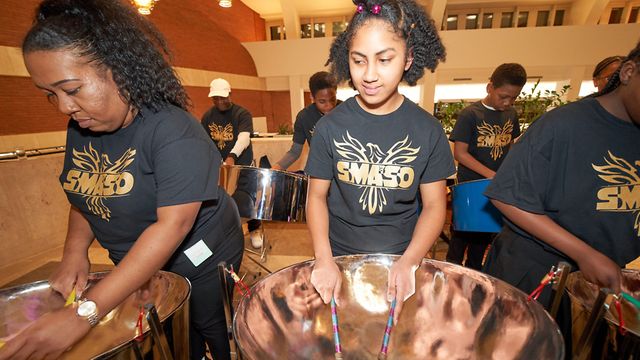 Phoenix Rising provides educational, musical, personal development, sport and leadership activities for young people to help improve their life chances and help them recognise and seize opportunities, when they arise. Formerly known as St Michael’s Youth Project, Phoenix Rising became best known for its steel pan band in Brent alongside many other fantastic attributes it provides to support children and young people within the community. The Youth Club works with a pool of talented, locally based, youth workers and teachers, all of whom have been doing community and youth work in the London Borough of Brent for over 20 years. Although based in Brent and mainly operating within the NW10 postcode area, Phoenix Rising works with all disadvantaged children and young people across Brent and neighbouring boroughs. Patrick McKay, Founder of Phoenix Rising, said: “Phoenix Rising has grown well by developing a good reputation and through recognition and respect from the local community. It has also formed relationships with other local and statutory agencies through the projects and activities we have run that are accessible and relevant to local need and ultimately run for the benefit of local children and the wider community.” John Lyon’s Charity has always been a firm supporter of Phoenix Rising’s work (and its former work at St Michael’s Youth Project), granting over £375,600 since 2004. Patrick continues: “It’s hard to describe what JLC’s funding has meant to Phoenix Rising as you simply have to look at our achievements over the past few years and how cohesive our community engagement activity has been. Not only that, look at the successful outcomes achieved during this period and the impactful change in our community. Our relationship has grown to be one that is strong, respectful, supportive and celebratory, as our success is JLC’s success.” Over the past 10 years, 300+ children and young people have now completed University or gone into gainful employment. This is due to the continuity of support made available through JLC funding that has made the initiatives run by Phoenix Rising sustainable. Since JLC’s funding, Phoenix Rising has also been recognised and commended, winning awards such as Best Band on the road, Best Conventional Band and Best Youth Band at the Notting Hill Carnival, as well as receiving the Pride of Brent Award in the Summer of 2021. In the words of Beethoven “music can change the world” and Phoenix Rising is on track to do just that.
Phoenix Rising provides educational, musical, personal development, sport and leadership activities for young people to help improve their life chances and help them recognise and seize opportunities, when they arise. Formerly known as St Michael’s Youth Project, Phoenix Rising became best known for its steel pan band in Brent alongside many other fantastic attributes it provides to support children and young people within the community. The Youth Club works with a pool of talented, locally based, youth workers and teachers, all of whom have been doing community and youth work in the London Borough of Brent for over 20 years. Although based in Brent and mainly operating within the NW10 postcode area, Phoenix Rising works with all disadvantaged children and young people across Brent and neighbouring boroughs. Patrick McKay, Founder of Phoenix Rising, said: “Phoenix Rising has grown well by developing a good reputation and through recognition and respect from the local community. It has also formed relationships with other local and statutory agencies through the projects and activities we have run that are accessible and relevant to local need and ultimately run for the benefit of local children and the wider community.” John Lyon’s Charity has always been a firm supporter of Phoenix Rising’s work (and its former work at St Michael’s Youth Project), granting over £375,600 since 2004. Patrick continues: “It’s hard to describe what JLC’s funding has meant to Phoenix Rising as you simply have to look at our achievements over the past few years and how cohesive our community engagement activity has been. Not only that, look at the successful outcomes achieved during this period and the impactful change in our community. Our relationship has grown to be one that is strong, respectful, supportive and celebratory, as our success is JLC’s success.” Over the past 10 years, 300+ children and young people have now completed University or gone into gainful employment. This is due to the continuity of support made available through JLC funding that has made the initiatives run by Phoenix Rising sustainable. Since JLC’s funding, Phoenix Rising has also been recognised and commended, winning awards such as Best Band on the road, Best Conventional Band and Best Youth Band at the Notting Hill Carnival, as well as receiving the Pride of Brent Award in the Summer of 2021. In the words of Beethoven “music can change the world” and Phoenix Rising is on track to do just that.
24. Pod Children’s Charity: providing magic, fun and laughter to children in hospital
Pod Children’s Charity was founded in 1977 at a time when hospitals gave little thought to the wider emotional needs of sick children. Longer stays were common, visiting times were restricted and outside stimulus for children in hospital was almost unheard of. 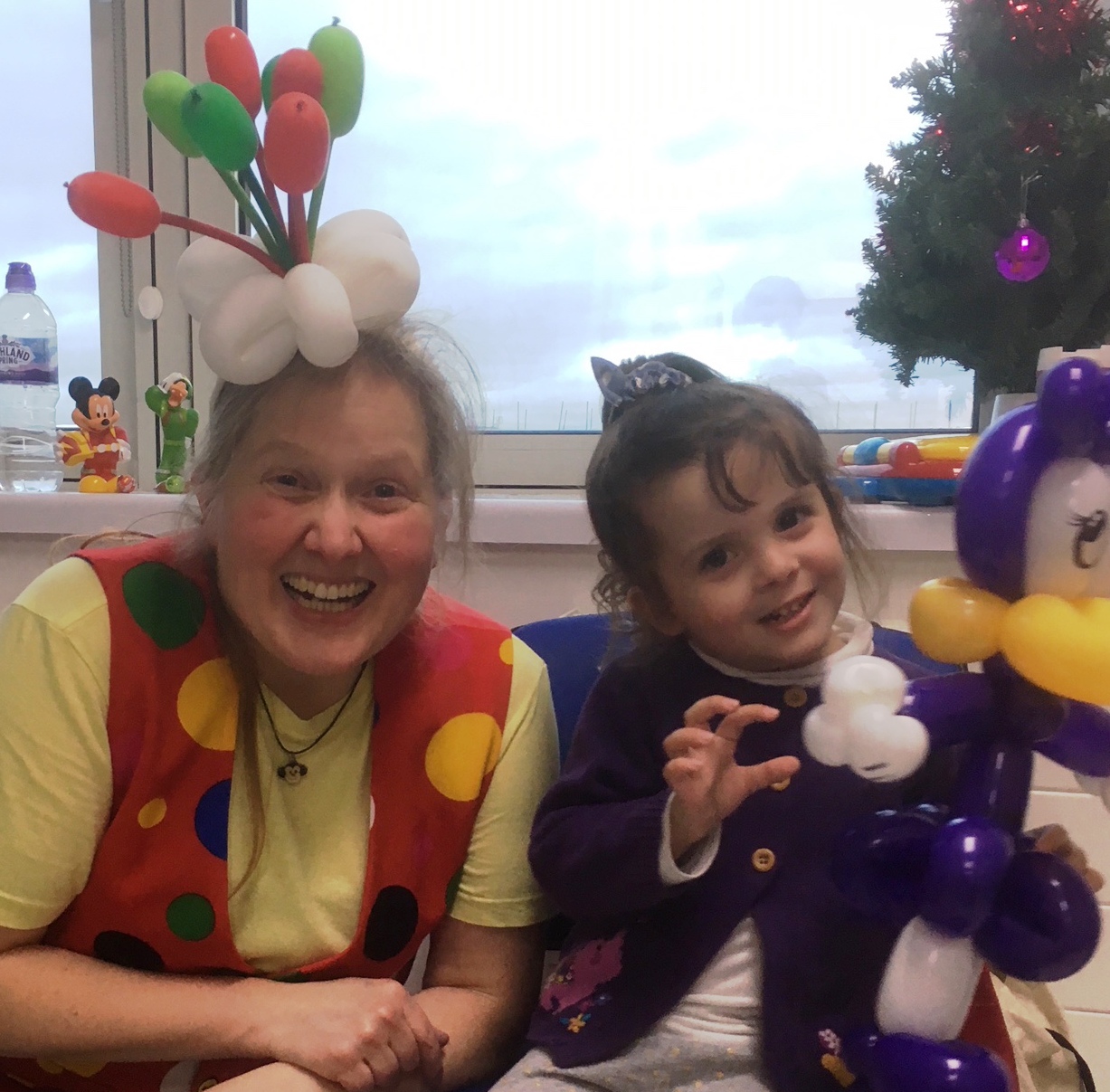 Pod provides a positive patient experience within a healthcare setting for children and young people. It aims to alleviate the emotional distress that children and young people may experience in hospital, whilst easing the trauma of the hospital stay by encouraging children to join in the fun. Pod’s only aim is to distract these children from their pain and worry, allowing access to the stimulation they often need when unwell. The charity’s success comes from its inspiring entertainers who provide a show wherever the sick children are based, whether it’s on the ward, in the playroom, hospital bedside or even in isolation. In 1994, Pod was having difficulty in getting funding for London hospitals and heard about John Lyon’s Charity. Shortly after, Pod received its first grant from JLC and in total has been awarded £97,000 in funding. During this period, Pod was providing monthly visits at 19 London hospitals including nine in JLC’s Beneficial Area. Since then, the number of hospitals covered has increased with Pod now providing visits at 34 London hospitals.
Pod provides a positive patient experience within a healthcare setting for children and young people. It aims to alleviate the emotional distress that children and young people may experience in hospital, whilst easing the trauma of the hospital stay by encouraging children to join in the fun. Pod’s only aim is to distract these children from their pain and worry, allowing access to the stimulation they often need when unwell. The charity’s success comes from its inspiring entertainers who provide a show wherever the sick children are based, whether it’s on the ward, in the playroom, hospital bedside or even in isolation. In 1994, Pod was having difficulty in getting funding for London hospitals and heard about John Lyon’s Charity. Shortly after, Pod received its first grant from JLC and in total has been awarded £97,000 in funding. During this period, Pod was providing monthly visits at 19 London hospitals including nine in JLC’s Beneficial Area. Since then, the number of hospitals covered has increased with Pod now providing visits at 34 London hospitals. 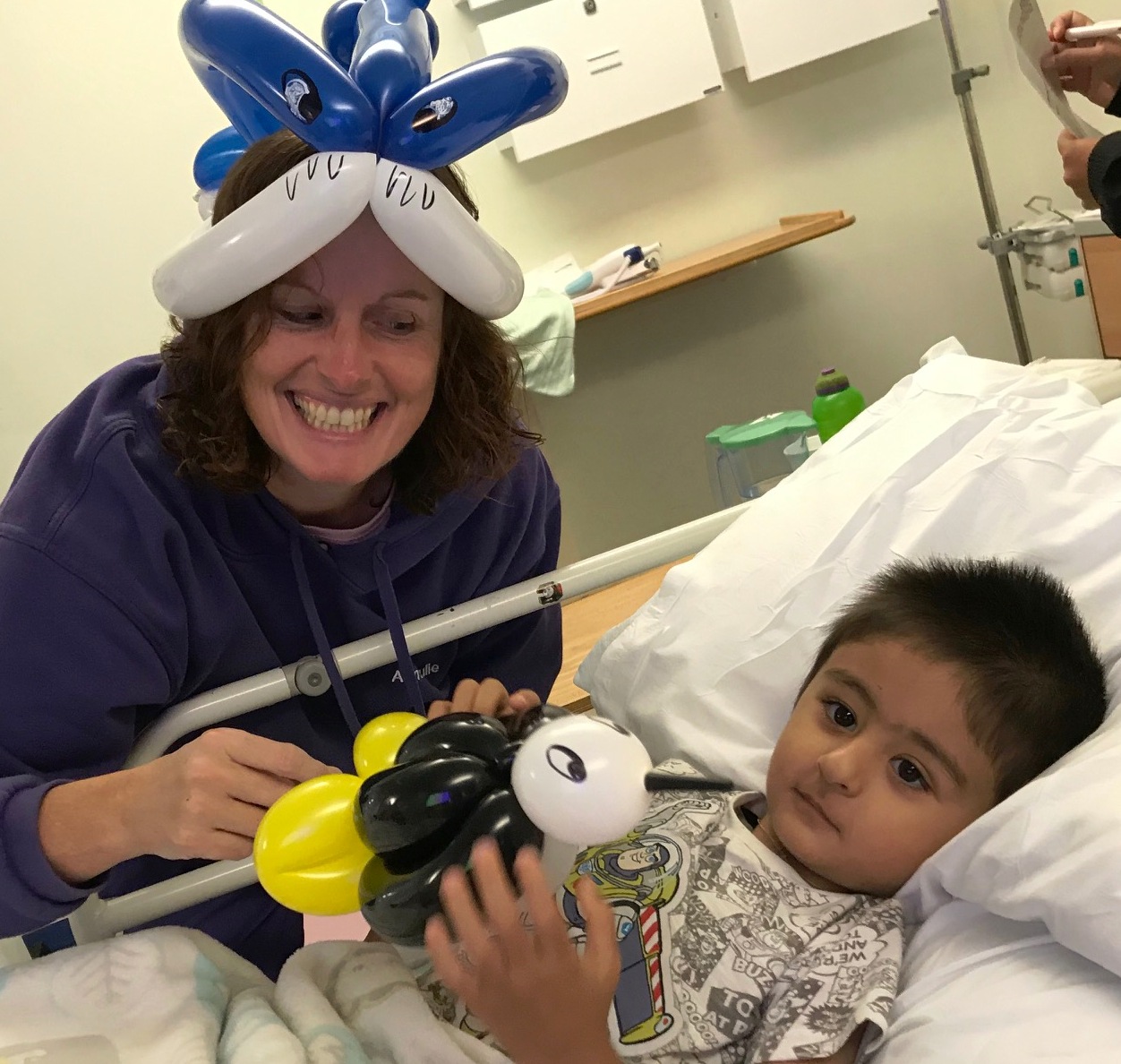 Margaret Munford MBE, Administrator at Pod Children’s Charity said: “Over the last 27 years, John Lyon’s Charity has enabled Pod to make a difference for children, young people, and their families at what is often a difficult and stressful time. We are very grateful for this support, which has helped make a hospital stay a more positive experience for many children in JLC’s Beneficial Area.” JLC’s funding has provided a lifechanging hospital experience for thousands of children and young people in hospitals across London. One of Pod’s Play Specialist’s in Barnet said: We had a very sad and unhappy 14-year-old girl who was transferred to us from another hospital. She had to stay in a side room and anyone who went in to see her had to gown up. We asked Captain Calamity to go and see her to cheer her up. At first, she wouldn’t even look at him… but with his silly jokes, balloon making and magic, she started with a smile and by the end she was laughing, talking to him and asking him not to go. Mum was crying and saying, “I haven’t seen her laugh like this for months”. The doctors and nurses came to see what the fuss was about and one of the doctors said, “I am sure this is a different child from the one I saw earlier”.
Margaret Munford MBE, Administrator at Pod Children’s Charity said: “Over the last 27 years, John Lyon’s Charity has enabled Pod to make a difference for children, young people, and their families at what is often a difficult and stressful time. We are very grateful for this support, which has helped make a hospital stay a more positive experience for many children in JLC’s Beneficial Area.” JLC’s funding has provided a lifechanging hospital experience for thousands of children and young people in hospitals across London. One of Pod’s Play Specialist’s in Barnet said: We had a very sad and unhappy 14-year-old girl who was transferred to us from another hospital. She had to stay in a side room and anyone who went in to see her had to gown up. We asked Captain Calamity to go and see her to cheer her up. At first, she wouldn’t even look at him… but with his silly jokes, balloon making and magic, she started with a smile and by the end she was laughing, talking to him and asking him not to go. Mum was crying and saying, “I haven’t seen her laugh like this for months”. The doctors and nurses came to see what the fuss was about and one of the doctors said, “I am sure this is a different child from the one I saw earlier”. 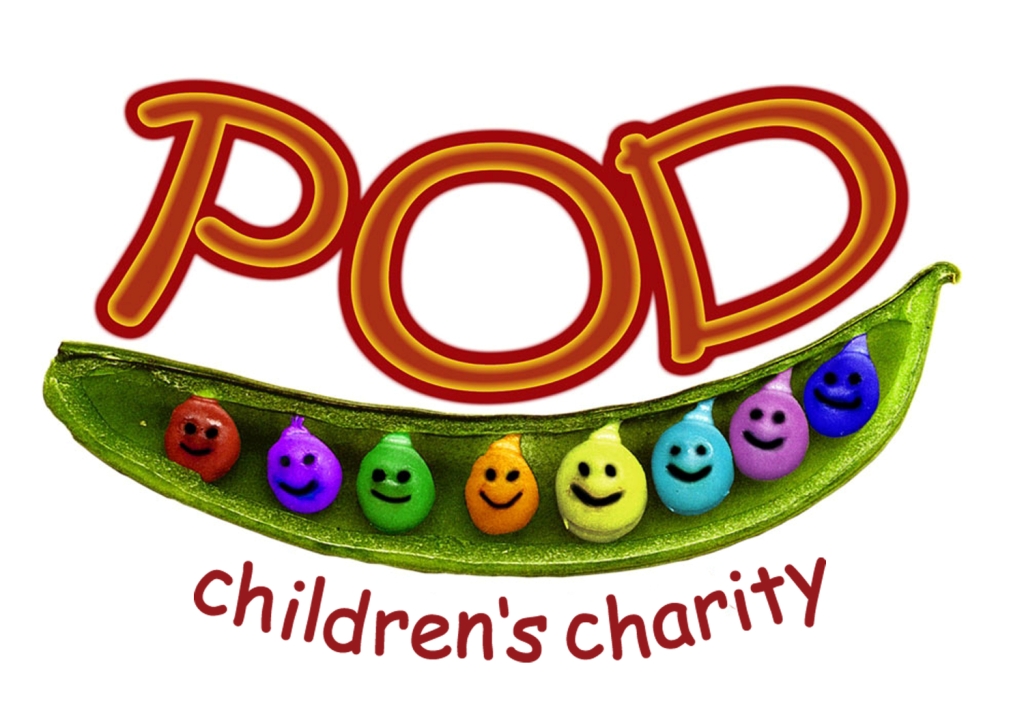 The Pod visits have distracted children and young people from worry, from where they are and what is going to happen to them. As children become less introverted, relax, and join in the fun, they begin to feel safer and more secure. As a result, the parents of the children are also able to relax, helping everyone to cope better with the hospital experience with the end goal of a positive impact on a child’s recovery. The name ‘Pod’ comes from the visual representation that out of a pod come seeds – the seeds of magic, fun and laughter, which is the epitome of what the children’s charity represents. John Lyon’s Charity is very proud to have been a part of Pod’s inspiring growth since 1994.
The Pod visits have distracted children and young people from worry, from where they are and what is going to happen to them. As children become less introverted, relax, and join in the fun, they begin to feel safer and more secure. As a result, the parents of the children are also able to relax, helping everyone to cope better with the hospital experience with the end goal of a positive impact on a child’s recovery. The name ‘Pod’ comes from the visual representation that out of a pod come seeds – the seeds of magic, fun and laughter, which is the epitome of what the children’s charity represents. John Lyon’s Charity is very proud to have been a part of Pod’s inspiring growth since 1994.
23. Scene & Heard: bringing children’s imagination to life
Scene & Heard is a unique mentoring project that partners the inner-city children of Somers Town, London, with volunteer theatre professionals. Focusing its work in Somers Town in Camden, it gives children and young people from a variety of disadvantaged backgrounds the experience of quality one-to-one adult attention and is a cornerstone of its local community. Their work improves literacy skills and attitudes towards education and develops communication and social skills.
Over the last 23 years, Scene & Heard has become a much loved and trusted resource. The arts organisation has 380 Arts Professionals who dedicate their time and talents to the vision of Scene & Heard’s 392 young playwrights. Their long-term relationships with families, schools and the Somers Town community has allowed the arts organisation to reach children that other projects cannot and address any barriers to participation, such as escorting children to and from activities and enabling those who do not otherwise participate in the larger community to attend Scene & Heard.
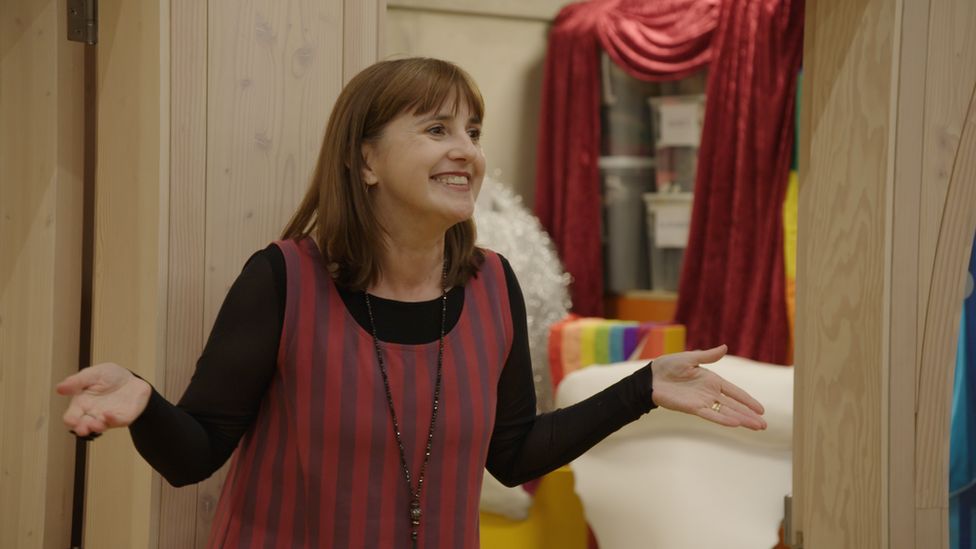
Rosalind Paul, CEO and Artistic Director at Scene & Heard
Rosalind Paul, CEO and Artistic Director at Scene & Heard said: “The children we serve do not have access to many of the enriching activities available in London. We provide a safe place where any difficulties and preconceptions about them, whether at home or at school, don’t exist. Working with Arts Professionals, positive adult role models from beyond our member’s experience, widens perspectives and raises aspirations.” Scene & Heard has received funding from JLC since 2001 and has been awarded over £196,000 in grants. Funding from the Charity has marked a significant step forward for the arts organisation and resulted in an important endorsement to their model of engagement. Roz continues: “Funding from John Lyon’s Charity helped Scene & Heard develop from a small start-up working on a project-by-project basis to a professional, well respected organisation that has consistently improved life in Somers Town for 23 years. Statistics have shown that 86% of our older member playwrights have achieved a degree or equivalent, in contrast to the 25% of Somers Town residents with a higher degree in the 2011 census. Many credit their success to their time at Scene & Heard.” Despite 2021 being a challenging year for many, Scene & Heard finally achieved their strategic goal of having a building of their own in the centre of a diverse, disadvantaged community. Their new-space opens a host of new opportunities for Scene & Heard and for its members and their families. Roz adds: “John Lyon’s Charity has been hugely supportive throughout our search for a permanent home in Somers Town, and we look forward to working with them as we create an arts hub, not only for our members and their families but for the whole community.” John Lyon’s Charity is proud to support such an important arts organisation and expects to see and hear great things in the future. 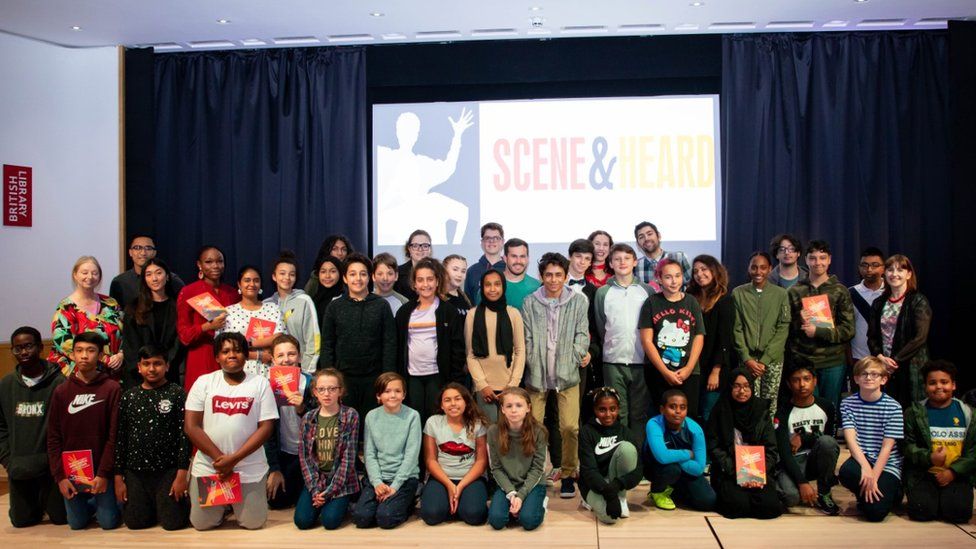
22. The Avenues Youth Project: creating hope, opportunity and a safe space
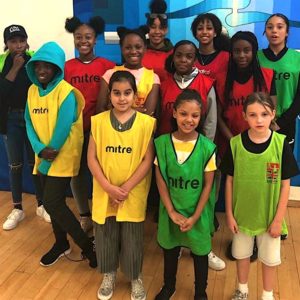 The Avenues Youth Project (AYP) was founded in 1979 to provide informal education and recreational opportunities for local children and young people of the African Caribbean community in North Westminster. However, over the years membership has widened to reflect the diverse and evolving composition of the community, with The Avenues now being accessed by over 600 children and young people (8-18 years old) each year. It is also one of five Westminster City Council /Young Westminster Foundation designated ‘youth hubs’. Since 1994, The Avenues has received over £500,000 in grants from John Lyon’s Charity, enabling it to deliver a wide range of sports, recreational, educational and employability programmes. The Avenues’ mission is to give hope and opportunities to children and young people in North Westminster, helping them fulfil their potential and being prepared and excited for adult life. The Youth Club’s team of youth professionals provide a safe, caring, youth-led space in a disadvantaged inner-city area, where young people learn and develop towards brighter futures. When it opened, The Avenues was vital to the North Westminster community, offering a safe space for boys from the area’s Caribbean community who were often not welcome in other clubs. The trusted staff made it their mission to build rapport with the young people, whilst offering motivation and encouragement to help them fulfil their potential. The zero tolerance for drugs, knives and aggressive behaviour has been instilled into generations of young people at The Avenues. In 2000, the trustees ran an ambitious and successful fundraising campaign to raise £2million to replace the first AYP building with a state-of-the-art youth centre, which was opened by HRH Prince Charles three years later.
The Avenues Youth Project (AYP) was founded in 1979 to provide informal education and recreational opportunities for local children and young people of the African Caribbean community in North Westminster. However, over the years membership has widened to reflect the diverse and evolving composition of the community, with The Avenues now being accessed by over 600 children and young people (8-18 years old) each year. It is also one of five Westminster City Council /Young Westminster Foundation designated ‘youth hubs’. Since 1994, The Avenues has received over £500,000 in grants from John Lyon’s Charity, enabling it to deliver a wide range of sports, recreational, educational and employability programmes. The Avenues’ mission is to give hope and opportunities to children and young people in North Westminster, helping them fulfil their potential and being prepared and excited for adult life. The Youth Club’s team of youth professionals provide a safe, caring, youth-led space in a disadvantaged inner-city area, where young people learn and develop towards brighter futures. When it opened, The Avenues was vital to the North Westminster community, offering a safe space for boys from the area’s Caribbean community who were often not welcome in other clubs. The trusted staff made it their mission to build rapport with the young people, whilst offering motivation and encouragement to help them fulfil their potential. The zero tolerance for drugs, knives and aggressive behaviour has been instilled into generations of young people at The Avenues. In 2000, the trustees ran an ambitious and successful fundraising campaign to raise £2million to replace the first AYP building with a state-of-the-art youth centre, which was opened by HRH Prince Charles three years later. 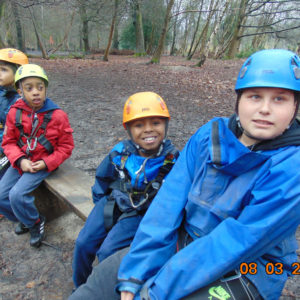 Paddy Barnes, Fundraiser at The Avenues Youth Project said: “Our purpose-built youth centre has been a free-to-access, safe space for young people since 1979, in a West London community that suffers amongst the worst levels of child poverty in the country. Growing up in this environment, amidst an epidemic of youth violence and criminality, commonly results in low self-esteem, low ambition and poor lifestyle choices. Since our founding we have grown to make sure we always meet the needs of the changing local community, providing projects, clubs, sports and education support for all the young people in our community.” Despite lockdown having a huge effect on The AYP’s operations, the club has proved resilient and has been able to bounce back. In 2021 the Club was awarded the London Youth Gold Award, which is a badge of excellence for youth organisations that are committed to continuous improvement through the involvement of young people in their organisational development. Paddy Barnes adds: “Quite simply JLC’s funding has been crucial to The Avenues Youth Project. When our local authority cut funding for youth services by 100% it took a couple of years for the club to emerge with a new funding model. Throughout this time JLC stood by us to help keep our doors open. Now we have developed a raft of funders, but JLC remain not only one of the largest, but crucially one of the few multi-year funders whose support allows us to plan three years ahead.” This is a key example of exactly how John Lyon’s Charity operates. The Charity has always recognised that being able to plan and work toward the future is crucial to being relevant, efficient and cost effective. The Avenues Youth Project is now open six days a week, including Saturday evenings, for the first time in 42 years. Since its founding, The Avenues Youth Project has gone from strength to strength providing a safe space for children and young people to come together and grow in confidence as a community. JLC is proud to have supported this inspiring organisation since 1994.
Paddy Barnes, Fundraiser at The Avenues Youth Project said: “Our purpose-built youth centre has been a free-to-access, safe space for young people since 1979, in a West London community that suffers amongst the worst levels of child poverty in the country. Growing up in this environment, amidst an epidemic of youth violence and criminality, commonly results in low self-esteem, low ambition and poor lifestyle choices. Since our founding we have grown to make sure we always meet the needs of the changing local community, providing projects, clubs, sports and education support for all the young people in our community.” Despite lockdown having a huge effect on The AYP’s operations, the club has proved resilient and has been able to bounce back. In 2021 the Club was awarded the London Youth Gold Award, which is a badge of excellence for youth organisations that are committed to continuous improvement through the involvement of young people in their organisational development. Paddy Barnes adds: “Quite simply JLC’s funding has been crucial to The Avenues Youth Project. When our local authority cut funding for youth services by 100% it took a couple of years for the club to emerge with a new funding model. Throughout this time JLC stood by us to help keep our doors open. Now we have developed a raft of funders, but JLC remain not only one of the largest, but crucially one of the few multi-year funders whose support allows us to plan three years ahead.” This is a key example of exactly how John Lyon’s Charity operates. The Charity has always recognised that being able to plan and work toward the future is crucial to being relevant, efficient and cost effective. The Avenues Youth Project is now open six days a week, including Saturday evenings, for the first time in 42 years. Since its founding, The Avenues Youth Project has gone from strength to strength providing a safe space for children and young people to come together and grow in confidence as a community. JLC is proud to have supported this inspiring organisation since 1994.
21. Doorstep Library: today a reader, tomorrow a leader
Pivotal to JLC’s grant-making ethos, Education & Learning is the second largest area of the Charity’s expenditure, accounting for more than 23.6 million in grants since 1991. Projects and organisations supported under this Programme Area help children and young people unlock and achieve their full potential. Within this remit are projects that access the curriculum and educational opportunities, support those who are at risk of exclusion or not in education and encourage students to push their aspiration and abilities further still. 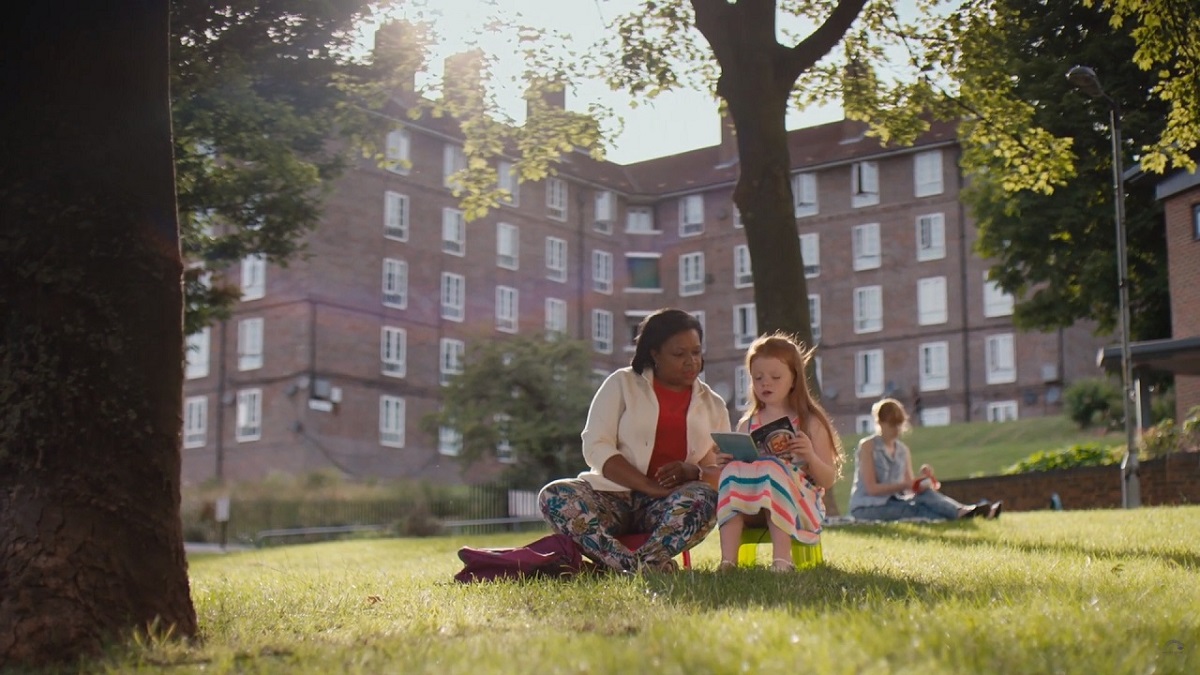 Doorstep Library is a community-focused charity dedicated to bringing the gift of books and the joy of reading directly into the homes of children across London. Recognising that children from more disadvantaged areas are often less able to access reading materials and develop a love of reading, Doorstep Library was founded to bridge this gap. A decade later, the charity has expanded its reading projects across four London boroughs, seeing almost 500 children from 250 families each week. Its vision has always been to see children from all walks of life thriving in homes where a love of reading is embraced. With one in four 11-year-olds leaving Primary School unable to read or write properly, Doorstep Library recruit and train Home and Online Reading Volunteers to help introduce young children (aged 0 – 11 years) to the pleasure of reading. This unique home-based service, whether online or in person, means the charity builds a strong relationship with all its families and helping them find the most appropriate books for every child they visit. It is not a case of one book fits all, Doorstep Library takes the time to get to know and understand every child to ensure the best books for them.
Doorstep Library is a community-focused charity dedicated to bringing the gift of books and the joy of reading directly into the homes of children across London. Recognising that children from more disadvantaged areas are often less able to access reading materials and develop a love of reading, Doorstep Library was founded to bridge this gap. A decade later, the charity has expanded its reading projects across four London boroughs, seeing almost 500 children from 250 families each week. Its vision has always been to see children from all walks of life thriving in homes where a love of reading is embraced. With one in four 11-year-olds leaving Primary School unable to read or write properly, Doorstep Library recruit and train Home and Online Reading Volunteers to help introduce young children (aged 0 – 11 years) to the pleasure of reading. This unique home-based service, whether online or in person, means the charity builds a strong relationship with all its families and helping them find the most appropriate books for every child they visit. It is not a case of one book fits all, Doorstep Library takes the time to get to know and understand every child to ensure the best books for them. 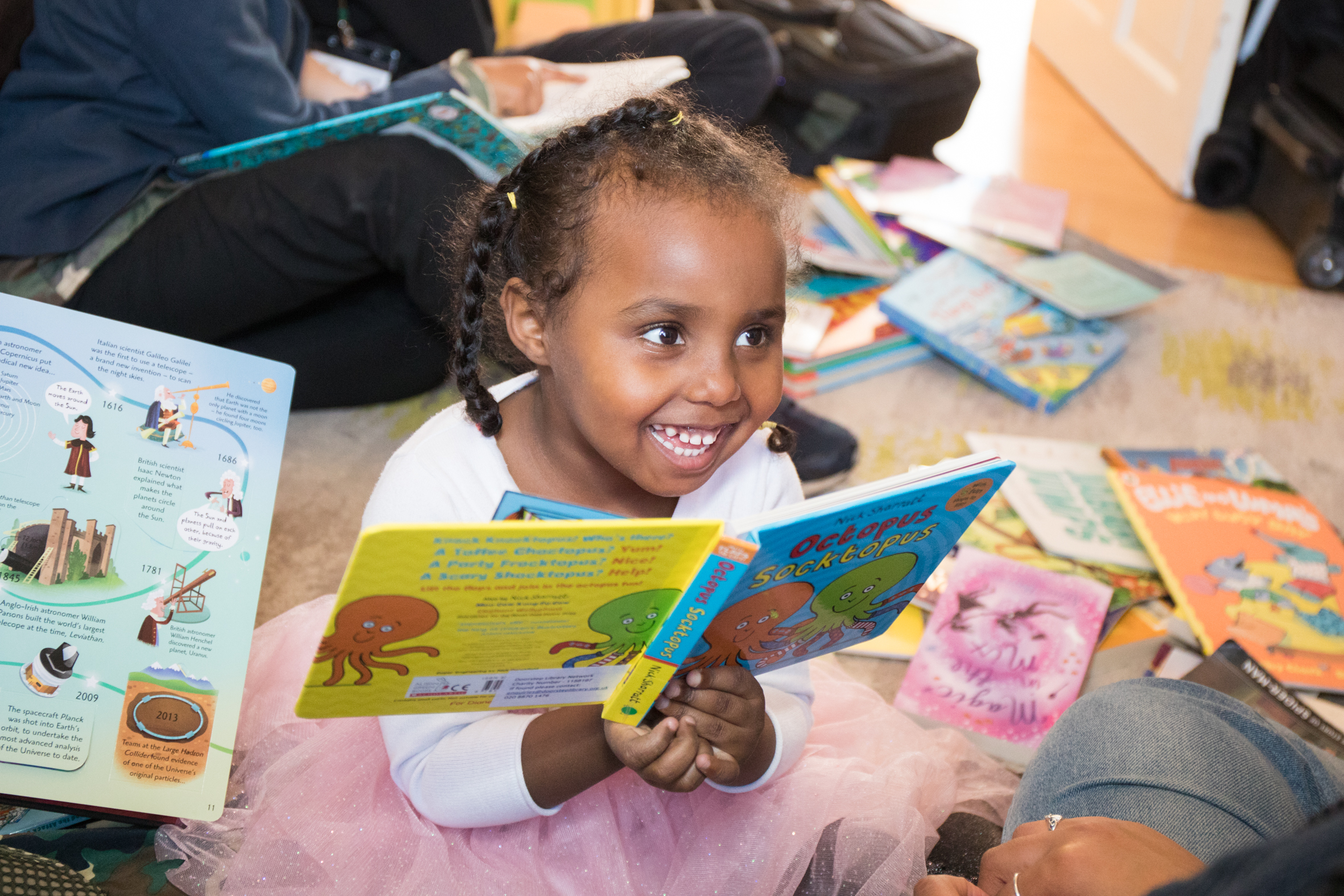 Katie Bareham, CEO of Doorstep Library said: “Our reading projects not only improve literacy and confidence in children, but also increase family wellbeing and bonding through the joy of sharing stories. Our impact is long-lasting and our tailored approach enables us to help prepare children for school and to broaden their opportunities in life.” Since 2007, John Lyons’ Charity has granted over £184,000 to Doorstep Library through its Education & Learning Programme. The initial funding from JLC came at a time when Doorstep Library was just starting out as a charity, resulting in new projects in Hammersmith and Fulham. The funding created an opportunity for Doorstep Library to go from one pilot project to five established projects in just a couple of years. Katie continues: “The long-term support of JLC has enabled us to grow, to try new ways of working, and to instil a love of reading for pleasure in over 1,600 children since 2010. We have ambitious plans to increase this to over 2,500 in the next three years and are very proud of the model we have developed. Being able to list JLC as a long-term supporter has definitely opened doors for us in obtaining new funding streams from other large trusts and foundations, as they recognise JLC, and therefore see us as a trusted charity.” Thanks to JLC funding, in partnership with Media Trust, Doorstep Library created a fantastic multi award-winning volunteer film #WordsTakeYouPlaces which showcases the amazing journey that the charity’s home reading volunteers take with the families they visit. The film has not only secured three very prestigious awards but has now been viewed over 4,000 times. The success of the film has increased Doorstep Library’s ability to recruit new reading volunteers, which in turn has enabled them to continue to support even more children and families from under-resourced areas, ensuring books and reading for pleasure are an essential part of their childhood. John Lyon’s Charity is delighted to have been a part of Doorstep Library’s important journey to improve children’s confidence and enjoyment of reading.
Katie Bareham, CEO of Doorstep Library said: “Our reading projects not only improve literacy and confidence in children, but also increase family wellbeing and bonding through the joy of sharing stories. Our impact is long-lasting and our tailored approach enables us to help prepare children for school and to broaden their opportunities in life.” Since 2007, John Lyons’ Charity has granted over £184,000 to Doorstep Library through its Education & Learning Programme. The initial funding from JLC came at a time when Doorstep Library was just starting out as a charity, resulting in new projects in Hammersmith and Fulham. The funding created an opportunity for Doorstep Library to go from one pilot project to five established projects in just a couple of years. Katie continues: “The long-term support of JLC has enabled us to grow, to try new ways of working, and to instil a love of reading for pleasure in over 1,600 children since 2010. We have ambitious plans to increase this to over 2,500 in the next three years and are very proud of the model we have developed. Being able to list JLC as a long-term supporter has definitely opened doors for us in obtaining new funding streams from other large trusts and foundations, as they recognise JLC, and therefore see us as a trusted charity.” Thanks to JLC funding, in partnership with Media Trust, Doorstep Library created a fantastic multi award-winning volunteer film #WordsTakeYouPlaces which showcases the amazing journey that the charity’s home reading volunteers take with the families they visit. The film has not only secured three very prestigious awards but has now been viewed over 4,000 times. The success of the film has increased Doorstep Library’s ability to recruit new reading volunteers, which in turn has enabled them to continue to support even more children and families from under-resourced areas, ensuring books and reading for pleasure are an essential part of their childhood. John Lyon’s Charity is delighted to have been a part of Doorstep Library’s important journey to improve children’s confidence and enjoyment of reading.
20. London Sports Trust: going for the gold
The benefits of sports are numerous and can impact lives in profound ways. Team sports participation promotes health and wellbeing, builds confidence, and can help maintain mental health. John Lyon’s Charity seeks to promote opportunities for all children and young people to take part in a variety of sporting activities and we consider it vital that ways are found to help groups that do not traditionally take part in sport find ways in which they can get involved. We aim to support organisations that encourage participation in sport, nurture talent and provide access to high quality services and equipment. One of these fantastic organisations is the London Sports Trust. 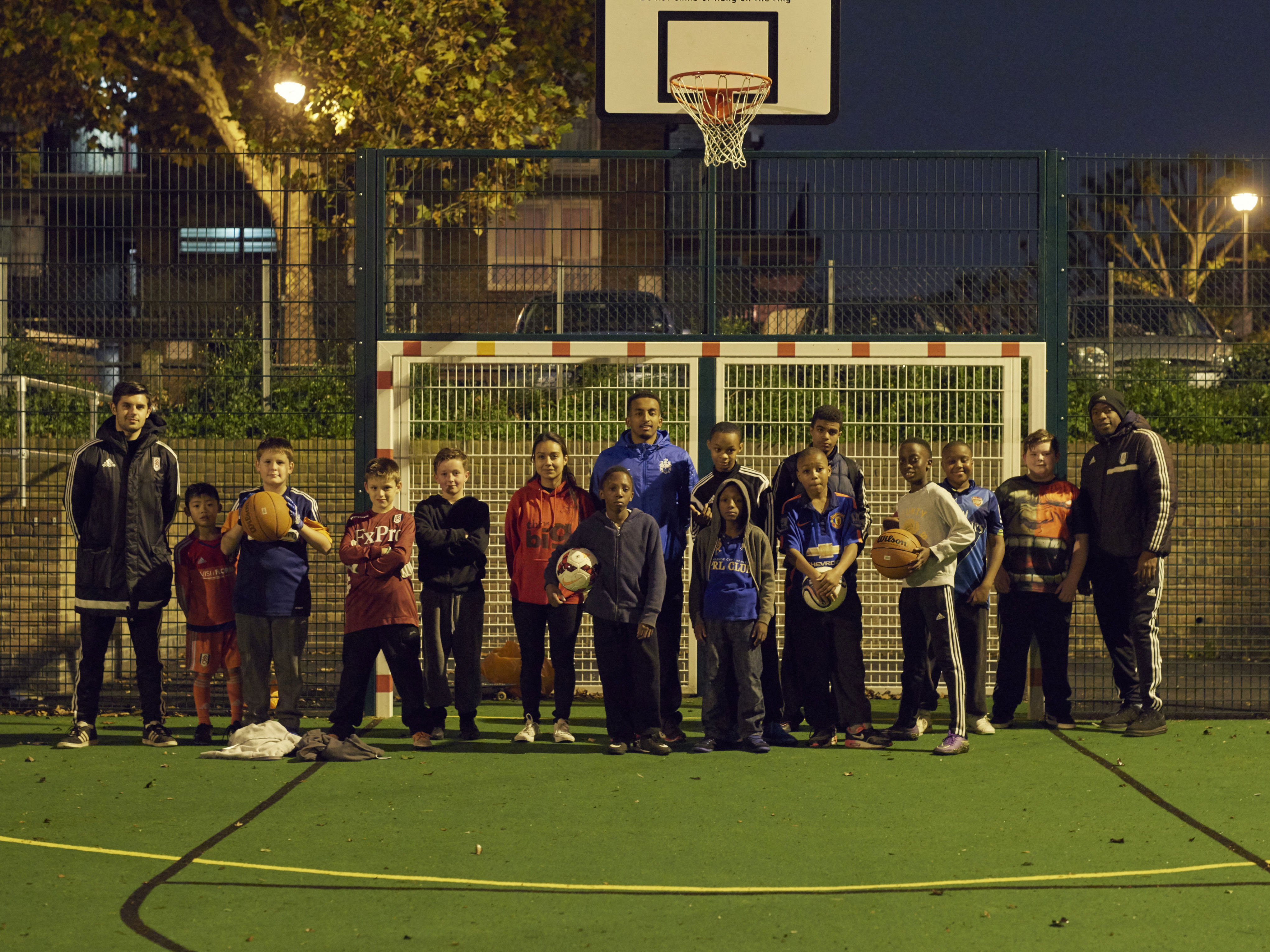 The London Sports Trust was established with an initial grant from John Lyon’s Charity in 1998, to provide support for financially disadvantaged children and young people with sporting talent. The Trust has continued to receive funding from local authorities since its inception and to date has received c£817,000.00 in grants from John Lyon’s Charity. London Sports Trust is dedicated to helping young Londoners through sport, working with local partners, schools and communities to help disadvantaged children and young people fulfil their potential. Through their mentoring and training programmes, London Sports Trust gives children and young people the confidence, skills and knowledge to achieve in all aspects of life, using structured sports sessions, led by experienced coaches, in schools and across the local community. Since 1998 the organisation has helped talented but unrecognised young individuals pursue their sporting dreams, both regionally and nationally. As a result of this support, young people have gone on to represent England or GB, such as Sonia Mkoloma, who captained the England Netball team to win Bronze at the Commonwealth Games, and Abi Oyepitan, who won numerous medals at the Commonwealth Games and finals of the Olympics.
The London Sports Trust was established with an initial grant from John Lyon’s Charity in 1998, to provide support for financially disadvantaged children and young people with sporting talent. The Trust has continued to receive funding from local authorities since its inception and to date has received c£817,000.00 in grants from John Lyon’s Charity. London Sports Trust is dedicated to helping young Londoners through sport, working with local partners, schools and communities to help disadvantaged children and young people fulfil their potential. Through their mentoring and training programmes, London Sports Trust gives children and young people the confidence, skills and knowledge to achieve in all aspects of life, using structured sports sessions, led by experienced coaches, in schools and across the local community. Since 1998 the organisation has helped talented but unrecognised young individuals pursue their sporting dreams, both regionally and nationally. As a result of this support, young people have gone on to represent England or GB, such as Sonia Mkoloma, who captained the England Netball team to win Bronze at the Commonwealth Games, and Abi Oyepitan, who won numerous medals at the Commonwealth Games and finals of the Olympics.  Ulick Tarabanov, FRSA, Founder & CEO of London Sports Trust said: “Without the funding of John Lyon’s Charity, I honestly believe the Trust would not be helping children and young people today. JLC’s funding over the years for many different programmes has always made a huge difference to the young people we work with. It has given opportunities for them to improve their confidence and mental health, as well as gain employment and start their own businesses. For some it has been life changing, giving them the spring board into professional sport or a life away from the streets and gangs of London.” Going forward, the London Sports Trust will continue to use sport to connect with young people from deprived communities who need help to fulfil their potential in all areas of life. Focus will also be geared to improving the mental wellbeing of young people and increasing awareness about how they can contribute to environmental change in London. It has been very rewarding for JLC to see the growth and success of the London Sports Trust off the back of its very first grant to the organisation in 1998 and we expect to continue to see great young talent thrive off the back of this inspiring sports charity.
Ulick Tarabanov, FRSA, Founder & CEO of London Sports Trust said: “Without the funding of John Lyon’s Charity, I honestly believe the Trust would not be helping children and young people today. JLC’s funding over the years for many different programmes has always made a huge difference to the young people we work with. It has given opportunities for them to improve their confidence and mental health, as well as gain employment and start their own businesses. For some it has been life changing, giving them the spring board into professional sport or a life away from the streets and gangs of London.” Going forward, the London Sports Trust will continue to use sport to connect with young people from deprived communities who need help to fulfil their potential in all areas of life. Focus will also be geared to improving the mental wellbeing of young people and increasing awareness about how they can contribute to environmental change in London. It has been very rewarding for JLC to see the growth and success of the London Sports Trust off the back of its very first grant to the organisation in 1998 and we expect to continue to see great young talent thrive off the back of this inspiring sports charity.
19. Woodland Adventure Forest School Harrow: fresh air and education going hand in hand
Forest School is an inspirational process that offers learners regular opportunities to achieve and develop confidence and self-esteem through hands-on learning experiences in a woodland or natural environment with trees. Over the past few years, John Lyon’s Charity has been approached by a growing number of organisations seeking funding to run or establish a Forest School in their local area. 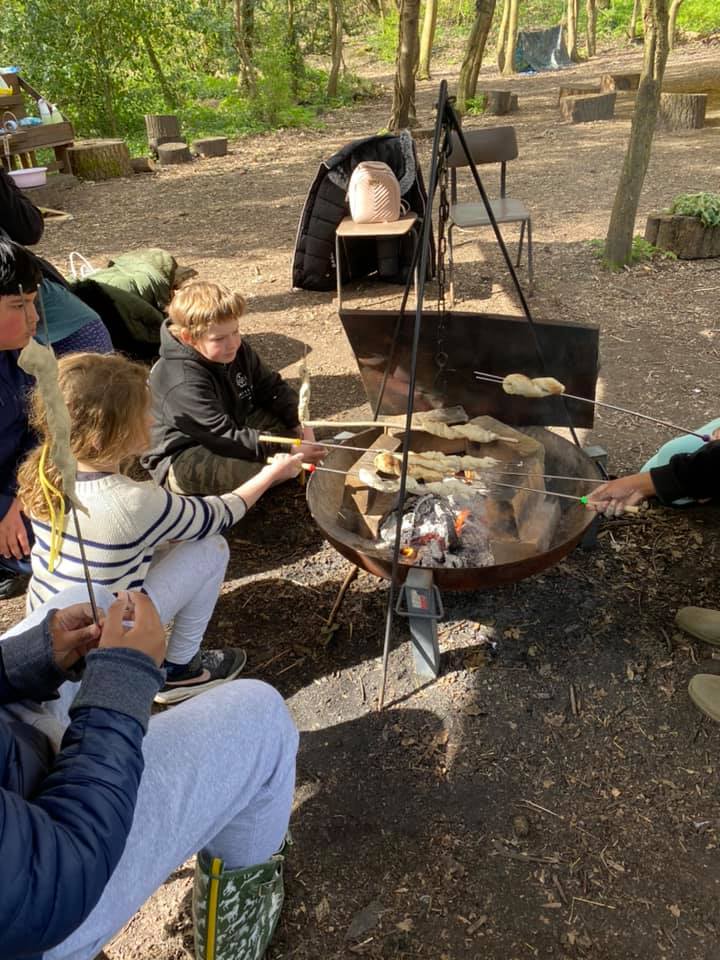 Woodland Adventure Forest School Harrow was developed in 2012 by All Saints Church, Harrow Weald and the Ethnic Minority Achievement, Harrow Council. Initially a pilot project, the immediate success of the initiative meant the forest school was quickly established as an independent charity. The aim of the organisation was to work with disadvantaged young people with a variety of needs, abilities and disabilities. It is well known amongst Harrow mainstream and special schools and has worked with schools in other boroughs including Barnet and Brent as well as made links with supplementary schools. The Woodland Adventure offer is for curriculum days for whole classes and small group programmes of 5 -10 weeks which teach forest skills and promote teamwork and collaborative learning. Children take part in a range of challenging activities designed to build confidence and self-esteem, such as den building, fire lighting, pond dipping and boundary games. They also take part in a number of creative activities including woodland arts and crafts and storytelling. The skills taught support the childrens’ work in school and develop positive attitudes to learning amongst pupils. The focus of all Woodland Adventure provision is to support the wellbeing of pupils and the children are encouraged to reflect and to celebrate their own achievements and those of others. Funding was first received from John Lyon’s Charity in 2012, which was the outset of the initiative and has received £76,000 thus far. Funds have enabled the organisation to set up on a professional basis and employ a full time member of staff to support the growth and success of the Forest School. Jackie Vaz, Educational Advisor at Woodland Adventure Forest School, Harrow said: “JLC has always understood the philosophy and intentions of the forest school and has not only provided financial support, but also acted as a critical friend over the years. There is no question that without the financial support of JLC, Woodland Adventure would not have survived, let alone become the success it is now.”
Woodland Adventure Forest School Harrow was developed in 2012 by All Saints Church, Harrow Weald and the Ethnic Minority Achievement, Harrow Council. Initially a pilot project, the immediate success of the initiative meant the forest school was quickly established as an independent charity. The aim of the organisation was to work with disadvantaged young people with a variety of needs, abilities and disabilities. It is well known amongst Harrow mainstream and special schools and has worked with schools in other boroughs including Barnet and Brent as well as made links with supplementary schools. The Woodland Adventure offer is for curriculum days for whole classes and small group programmes of 5 -10 weeks which teach forest skills and promote teamwork and collaborative learning. Children take part in a range of challenging activities designed to build confidence and self-esteem, such as den building, fire lighting, pond dipping and boundary games. They also take part in a number of creative activities including woodland arts and crafts and storytelling. The skills taught support the childrens’ work in school and develop positive attitudes to learning amongst pupils. The focus of all Woodland Adventure provision is to support the wellbeing of pupils and the children are encouraged to reflect and to celebrate their own achievements and those of others. Funding was first received from John Lyon’s Charity in 2012, which was the outset of the initiative and has received £76,000 thus far. Funds have enabled the organisation to set up on a professional basis and employ a full time member of staff to support the growth and success of the Forest School. Jackie Vaz, Educational Advisor at Woodland Adventure Forest School, Harrow said: “JLC has always understood the philosophy and intentions of the forest school and has not only provided financial support, but also acted as a critical friend over the years. There is no question that without the financial support of JLC, Woodland Adventure would not have survived, let alone become the success it is now.”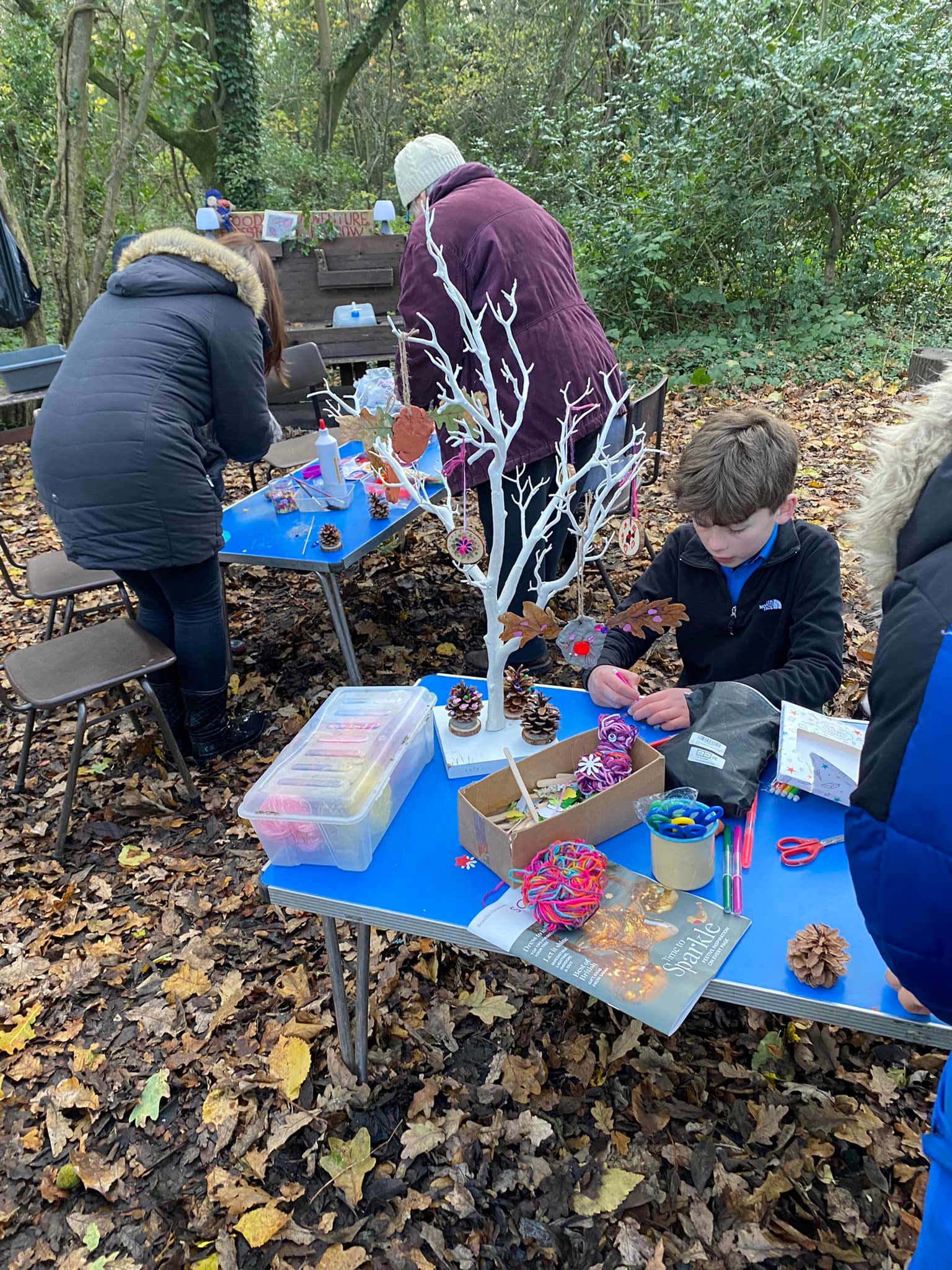 Through the forest school teaching process children are empowered to evaluate their experiences and provide input into programme development. Even those with the greatest difficulties are able to assess and influence the direction of their own forest school experience. The least confident can talk about their achievements and celebrate those of their peers. Jackie continues: “Thanks to the support from JLC, Woodland Adventure has affected the lives of thousands of young people over the years. These young people demonstrate in many ways that for them, the forest school experience is a joyous one. Those who have attended always want to come back.” The Woodland Adventure experience gives vulnerable young people essential support, particularly those who suffer from a range of social and emotional difficulties. The fact that Woodland Adventure Forest School Harrow has survived the most challenging times is testament to the quality of the programmes delivered on a weekly basis. John Lyon’s Charity is very proud to have been a part of its growth and success and knows the organisation will continue to go from strength to strength.
Through the forest school teaching process children are empowered to evaluate their experiences and provide input into programme development. Even those with the greatest difficulties are able to assess and influence the direction of their own forest school experience. The least confident can talk about their achievements and celebrate those of their peers. Jackie continues: “Thanks to the support from JLC, Woodland Adventure has affected the lives of thousands of young people over the years. These young people demonstrate in many ways that for them, the forest school experience is a joyous one. Those who have attended always want to come back.” The Woodland Adventure experience gives vulnerable young people essential support, particularly those who suffer from a range of social and emotional difficulties. The fact that Woodland Adventure Forest School Harrow has survived the most challenging times is testament to the quality of the programmes delivered on a weekly basis. John Lyon’s Charity is very proud to have been a part of its growth and success and knows the organisation will continue to go from strength to strength. 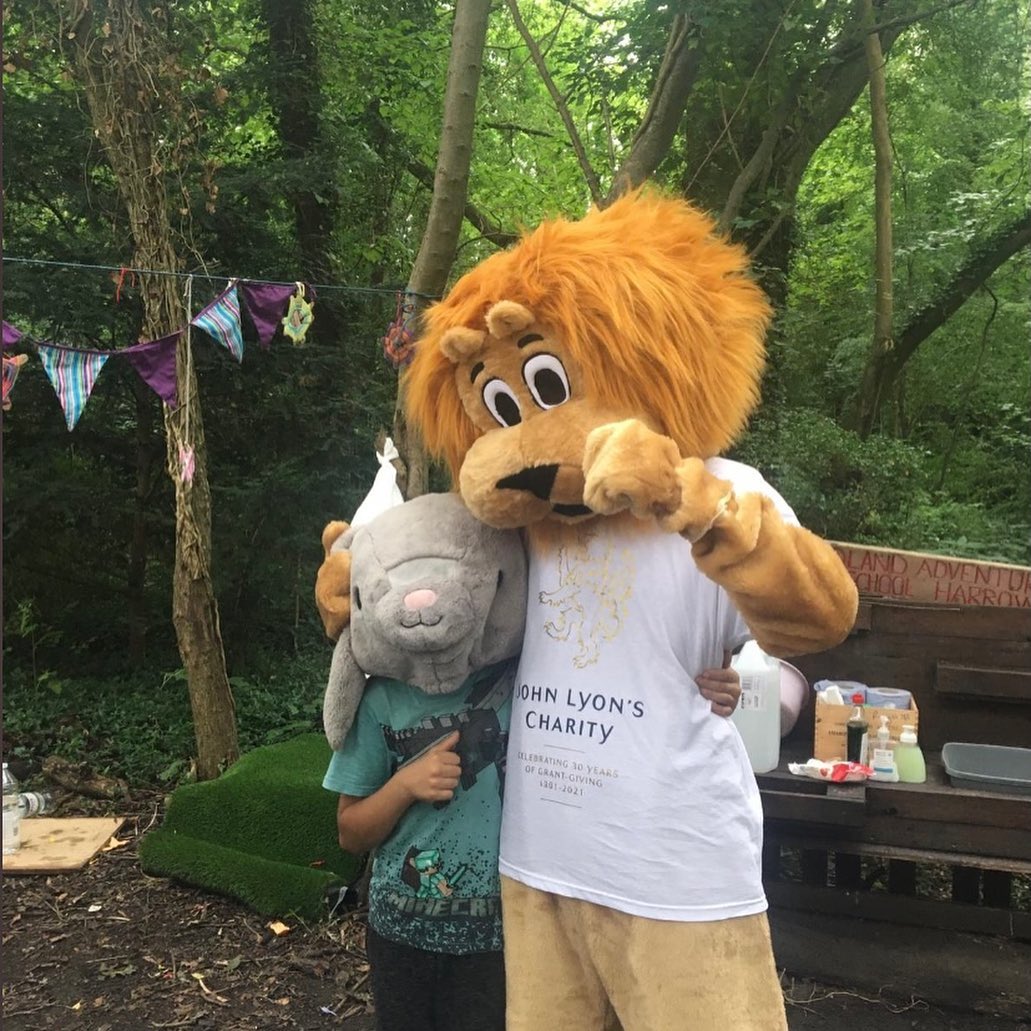
18. artsdepot: making art accessible for all
Since JLC’s inception in 1991, we have always aimed to support and champion high quality, inclusive Arts activities and provision that widens access and participation for under-represented groups. We believe that the Arts are a ‘good thing’ and are a vital contribution to a well-rounded education. Over the past 30 years this sentiment has been reflected in the Charity’s giving, with Arts & Sciences consistently remaining the highest area of the Charity’s spend, totalling more than £25 million to date. One particular arts organisation which is thriving since its own inception is artsdepot. 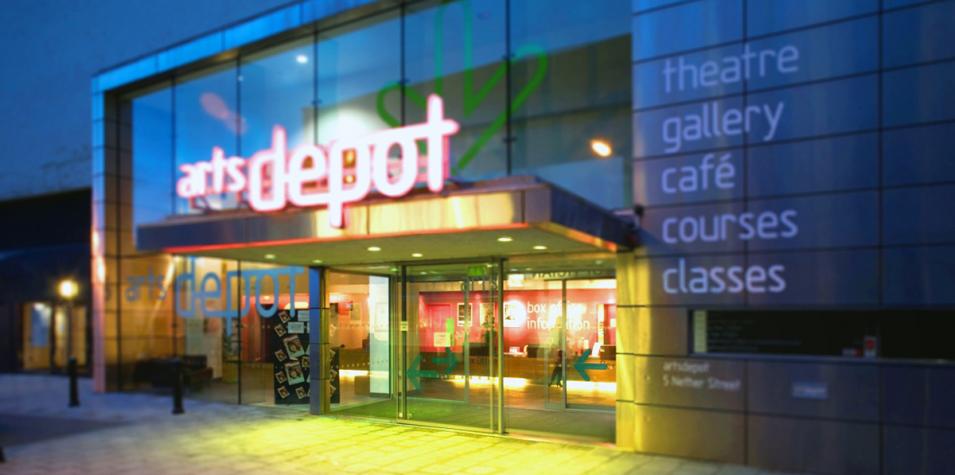 artsdepot is a cultural facility serving all Barnet’s communities, providing a multi art form programme for all ages and delivering impactful creative learning opportunities. Its broad programme of creative learning opportunities for children and young people includes workshops linked to shows, weekly classes, school holiday projects, a free children’s play area and free or subsidised tickets to shows and workshops for those on low incomes. Since 1997, John Lyon’s Charity has granted £433,400.00 . In recent years, JLC has supported artsdepot to establish a Cultural Education Partnership (BCEP), bringing together 14 founding partners and 100+ members aiming to provide a rich cultural education for every child and young person in Barnet. Tim Burley, Development Director at artsdepot said: “Funding from John Lyon’s Charity has proved pivotal in every stage of artsdepot’s journey. Initially JLC helped with capital funding as the venue was first envisioned at the turn of the century. Then through several multi-year funding agreements JLC has underpinned our work with children and young people, most recently supporting the establishment of a cultural education partnership that brings together the arts and education sectors within the borough of Barnet.” JLC funding has underpinned a broad programme of creative learning opportunities that has benefitted many thousands of young people through artdepot’s work. This support has been most helpful when working with children and young people who otherwise would not engage in the arts. For example, during the 2020 lockdowns, artsdepot provided live interactive shows over zoom in school assemblies to over 500 pupils ensuring a motivating high-quality arts experience that enriched the school day.
artsdepot is a cultural facility serving all Barnet’s communities, providing a multi art form programme for all ages and delivering impactful creative learning opportunities. Its broad programme of creative learning opportunities for children and young people includes workshops linked to shows, weekly classes, school holiday projects, a free children’s play area and free or subsidised tickets to shows and workshops for those on low incomes. Since 1997, John Lyon’s Charity has granted £433,400.00 . In recent years, JLC has supported artsdepot to establish a Cultural Education Partnership (BCEP), bringing together 14 founding partners and 100+ members aiming to provide a rich cultural education for every child and young person in Barnet. Tim Burley, Development Director at artsdepot said: “Funding from John Lyon’s Charity has proved pivotal in every stage of artsdepot’s journey. Initially JLC helped with capital funding as the venue was first envisioned at the turn of the century. Then through several multi-year funding agreements JLC has underpinned our work with children and young people, most recently supporting the establishment of a cultural education partnership that brings together the arts and education sectors within the borough of Barnet.” JLC funding has underpinned a broad programme of creative learning opportunities that has benefitted many thousands of young people through artdepot’s work. This support has been most helpful when working with children and young people who otherwise would not engage in the arts. For example, during the 2020 lockdowns, artsdepot provided live interactive shows over zoom in school assemblies to over 500 pupils ensuring a motivating high-quality arts experience that enriched the school day. 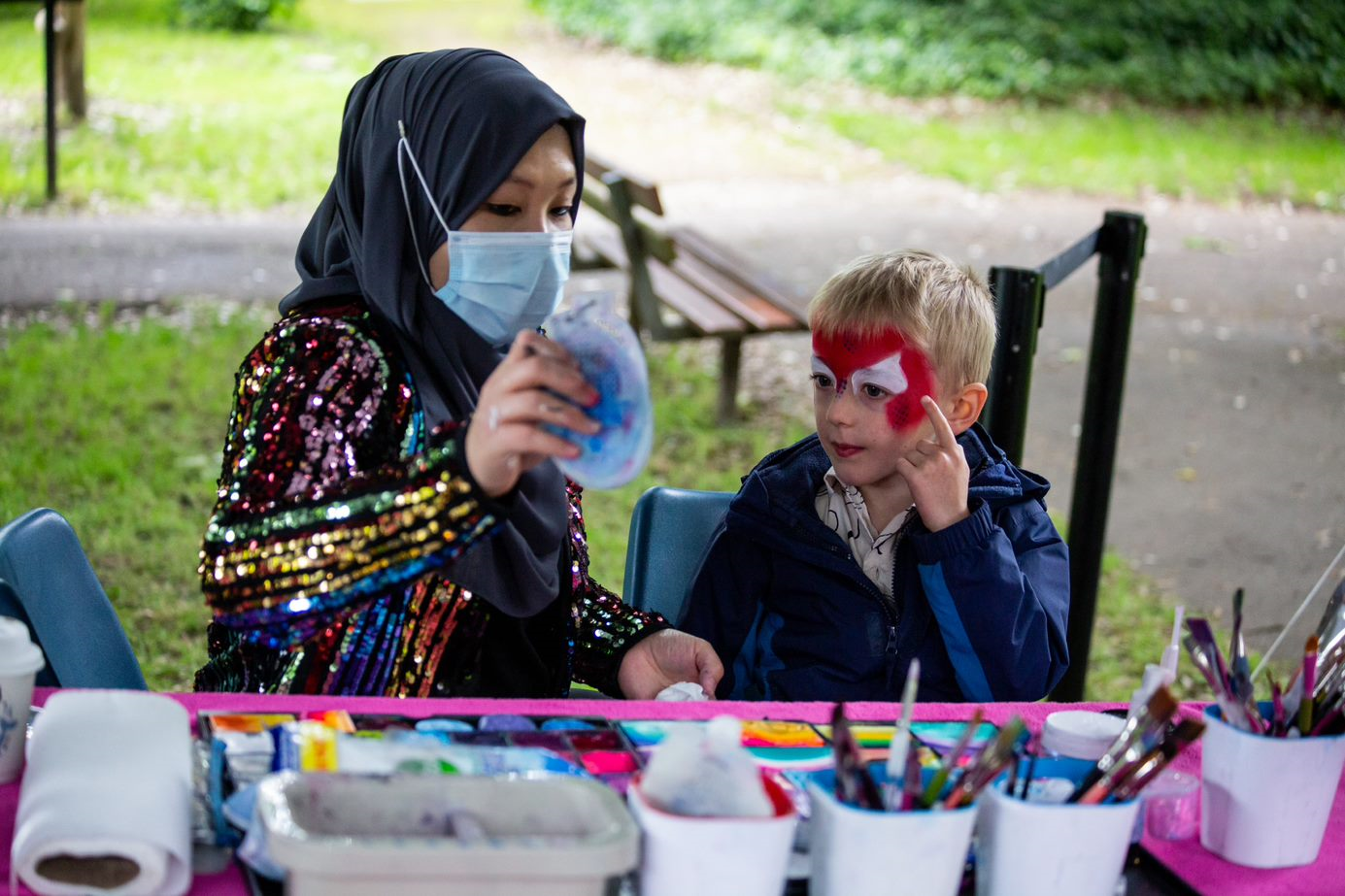 Tim Burley continues: “In the Summer of 2020, JLC stepped in to support artsdepot to transition services from in-person to digital as we battled to survive through multiple lockdowns. In 2022 as we recalibrate after nearly two years of closures and interruptions, JLC has invested in an ambitious plan to deliver 10 artist residencies in schools over the calendar year. In addition to supporting artsdepot, JLC has significantly improved the context in which we work by investing in the Young Barnet Foundation. We have gone from a local sector with few connections and low levels of grassroots activity to one where live dialogue and collaboration is the norm, and young people’s access to arts and creative learning is much improved.” More recently, funding has supported the Young Advocates advisory group of the BCEP which resulted in a youth led panel discussion event at artsdepot on access to creative learning opportunities. All this work serves to build self-confidence, self-esteem and communication skills. Tim Burley adds: “We see our relationship with John Lyon’s Charity as one that can stand the test of time but also that JLC is supporting the sector and context we work in as well as projects and core funding that are unique to us. Because of this sectoral support we are better placed to deliver all our work and are better connected to schools and creative communities across our borough.” Going forward, artsdepot aims to continue to expand the cultural education offer for all children and young people in Barnet. John Lyon’s Charity is proud to have supported artsdepot in its journey after all these years and looks forward to seeing the success of the creative organisation continue.
Tim Burley continues: “In the Summer of 2020, JLC stepped in to support artsdepot to transition services from in-person to digital as we battled to survive through multiple lockdowns. In 2022 as we recalibrate after nearly two years of closures and interruptions, JLC has invested in an ambitious plan to deliver 10 artist residencies in schools over the calendar year. In addition to supporting artsdepot, JLC has significantly improved the context in which we work by investing in the Young Barnet Foundation. We have gone from a local sector with few connections and low levels of grassroots activity to one where live dialogue and collaboration is the norm, and young people’s access to arts and creative learning is much improved.” More recently, funding has supported the Young Advocates advisory group of the BCEP which resulted in a youth led panel discussion event at artsdepot on access to creative learning opportunities. All this work serves to build self-confidence, self-esteem and communication skills. Tim Burley adds: “We see our relationship with John Lyon’s Charity as one that can stand the test of time but also that JLC is supporting the sector and context we work in as well as projects and core funding that are unique to us. Because of this sectoral support we are better placed to deliver all our work and are better connected to schools and creative communities across our borough.” Going forward, artsdepot aims to continue to expand the cultural education offer for all children and young people in Barnet. John Lyon’s Charity is proud to have supported artsdepot in its journey after all these years and looks forward to seeing the success of the creative organisation continue.
17. Create: creatively adapting delivery in a time of crisis
In 2020, charities of all sizes faced unprecedented challenges; operations were forced to move online, some found themselves offering subsistence services to support their beneficiaries and the future of the non-profit sector hung in the balance. The need for funding was never greater. Through the London Community Response Fund (LCRF) coordinated by London Funders, John Lyon’s Charity (JLC) pledged £1M of emergency funding to groups and communities in need with funds importantly being ringfenced to support grantees over the summer.  In total, John Lyon’s Charity awarded just over £900K of emergency funding to sixty organisations working with children and young people in the Charity’s Beneficial Area. The focus was on those groups most severely affected by the global pandemic. One of the inspiring organisations we funded during this uncertain period was Create. In 2020, Create quickly adapted its services so it could continue to deliver its work safely and efficiently to as many young people as possible.
In total, John Lyon’s Charity awarded just over £900K of emergency funding to sixty organisations working with children and young people in the Charity’s Beneficial Area. The focus was on those groups most severely affected by the global pandemic. One of the inspiring organisations we funded during this uncertain period was Create. In 2020, Create quickly adapted its services so it could continue to deliver its work safely and efficiently to as many young people as possible. 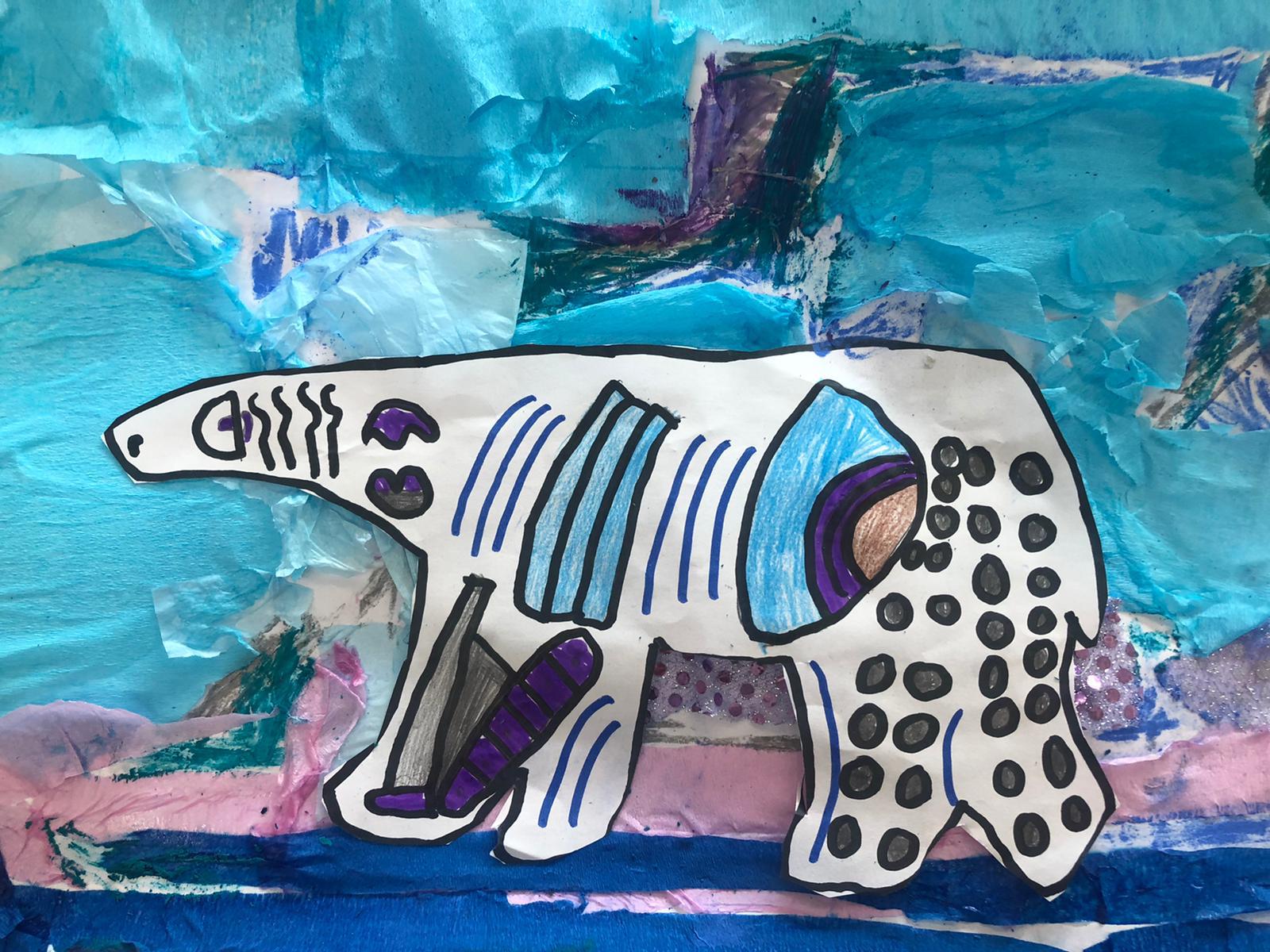 Before lockdown, Create was running creative arts workshops across the country with some of society’s most vulnerable people: young and adult carers, people with disabilities, older people, prisoners and those suffering from mental ill-health. When Coronavirus struck and social distancing measures were introduced every Create project had to be postponed; participants were facing months of unrelenting isolation, loneliness and hardship. However, Founding CEO of Create, Nicky Goulder, worked round the clock with the Create team to deliver an online accessible alternative to enable participants to be reached and connected during lockdown. Nicky Goulder, CEO of Create said: “After extensive consultation with our participants and community partners, trial workshops and many hours of planning to ensure the safety and wellbeing of all taking part, Create Live! was launched just 14 days after lockdown was announced. As a platform, Create Live! delivered high-quality, live, interactive, creative workshops with groups of participants that are fun, build skills and ultimately reduce isolation. In 2020, during a year in which we had to redesign our delivery model entirely as a result of the Covid-19 lockdown, Create won the Charity Times Charity of the Year Award. We are now building on this success as we approach year two of an ambitious five-year development plan. We now offer a blended approach to our work, in-venue and via Create Live!, enabling us to reach some of the most isolated children and adults who are unable to leave home.”
Before lockdown, Create was running creative arts workshops across the country with some of society’s most vulnerable people: young and adult carers, people with disabilities, older people, prisoners and those suffering from mental ill-health. When Coronavirus struck and social distancing measures were introduced every Create project had to be postponed; participants were facing months of unrelenting isolation, loneliness and hardship. However, Founding CEO of Create, Nicky Goulder, worked round the clock with the Create team to deliver an online accessible alternative to enable participants to be reached and connected during lockdown. Nicky Goulder, CEO of Create said: “After extensive consultation with our participants and community partners, trial workshops and many hours of planning to ensure the safety and wellbeing of all taking part, Create Live! was launched just 14 days after lockdown was announced. As a platform, Create Live! delivered high-quality, live, interactive, creative workshops with groups of participants that are fun, build skills and ultimately reduce isolation. In 2020, during a year in which we had to redesign our delivery model entirely as a result of the Covid-19 lockdown, Create won the Charity Times Charity of the Year Award. We are now building on this success as we approach year two of an ambitious five-year development plan. We now offer a blended approach to our work, in-venue and via Create Live!, enabling us to reach some of the most isolated children and adults who are unable to leave home.”
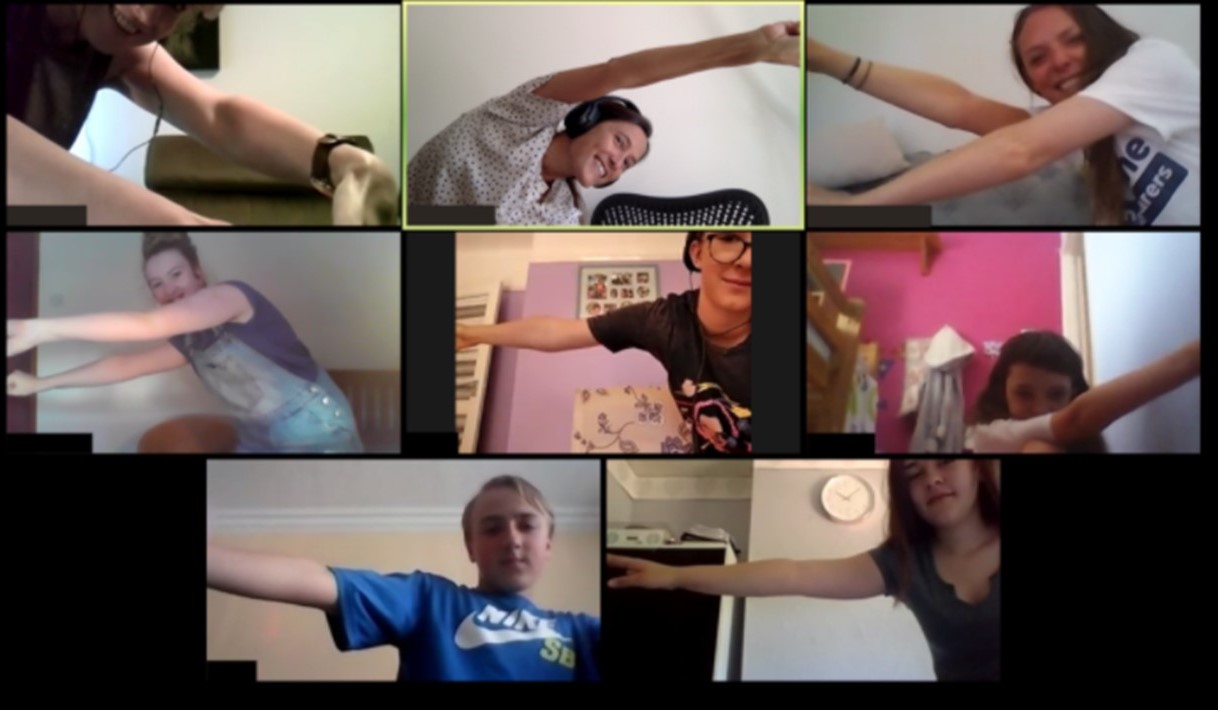
A CREATE LIVE! workshop in action.
John Lyon’s Charity has supported Create since 2013 and funded just shy of £230,000 thus far to the creative organisation. Nicky continues: “Our long-term partnership with JLC – a funder that is widely regarded in the sector as supportive and rigorous in equal measure – has enabled us to demonstrate to other funders the value of our work. It has supported a range of important, ground-breaking initiatives that have allowed us to develop the rigour of our environmental programme, expand our work with SEND children and extend our award-winning work with young carers to new boroughs.” John Lyon’s Charity is incredibly proud to have supported Create since 2013, which began with the Charity awarding a Small Grant. JLC funding has contributed in Create’s work with young carers, young refugees and young people with special needs and disabilities in Brent and Harrow. The Charity knows it will continue to see exceptional work for the foreseeable from Create and looks forward to continuing to be part of its creative journey.
16: Stonebridge Boxing Club – “build it and they will come”
Since JLC’s inception in 1991, its Main Grants Fund has undoubtedly been its most popular. The Fund is able to facilitate many opportunities, such as contributions towards salary costs, direct project funding, apprenticeship prospects or general overheads to ensure the lights remain on. One of our many success stories garnered through funding from our Main Grants Fund is that of the inspiring Stonebridge Boxing Club. 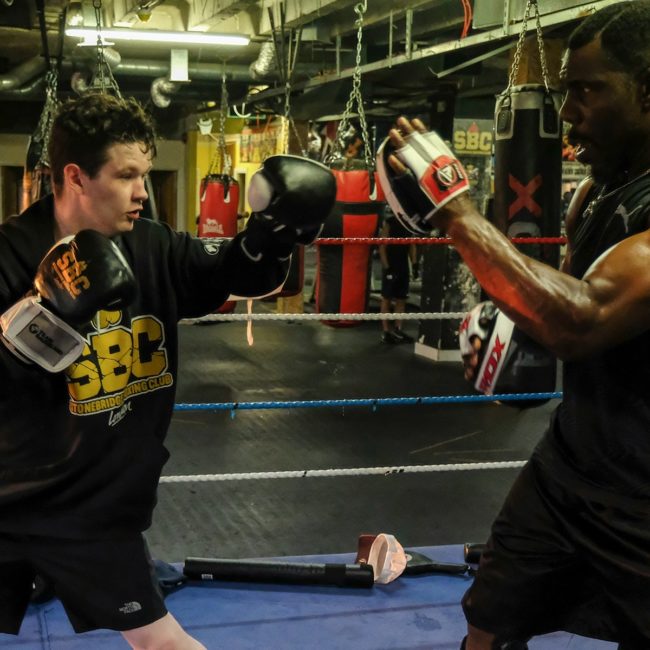 Stonebridge Boxing Club (SBC) is a dynamic and thriving boxing charity. What was once located on the once notorious Stonebridge Park estates, the Club is actively fighting against gun and knife crime by keeping young people off the streets and out of trouble. In addition to providing professional and elite amateur boxing, SBC also seeks to serve the community by providing instruction, inspiration and facilities for children, young people, senior citizens and keep fit enthusiasts. SBC welcomes anyone, of any age, seeking a purpose, outlet or improved health and fitness. SBC was founded in 2010 by local resident Aamir Ali. Initially, Aamir’s ambition was to open up a professional boxing gym with the ambition to work and mentor professional boxers. After securing a building in the heart of Stonebridge, Aamir discovered very quickly the need for a safe space for young people to access within the community. Aamir Ali, Founder of Stonebridge Boxing Club said: “As soon as the doors opened, people off the street started coming in and requesting classes and pleading for a sports facility such as SBC. I started to speak to people to understand exactly what the community needed and shortly after opened an amateur boxing club. This then led to questions from the young people telling me they had younger siblings who would be interested in attending SBC and getting involved with the club. So, I then created sessions for children aged six to ten to come in and use the club. This then escalated to parents coming into SBC explaining their children were acting out and needed a safe space to let off some steam, so we created a new strand to facilitate that need. It was then I realised that we had become a community club.”
Stonebridge Boxing Club (SBC) is a dynamic and thriving boxing charity. What was once located on the once notorious Stonebridge Park estates, the Club is actively fighting against gun and knife crime by keeping young people off the streets and out of trouble. In addition to providing professional and elite amateur boxing, SBC also seeks to serve the community by providing instruction, inspiration and facilities for children, young people, senior citizens and keep fit enthusiasts. SBC welcomes anyone, of any age, seeking a purpose, outlet or improved health and fitness. SBC was founded in 2010 by local resident Aamir Ali. Initially, Aamir’s ambition was to open up a professional boxing gym with the ambition to work and mentor professional boxers. After securing a building in the heart of Stonebridge, Aamir discovered very quickly the need for a safe space for young people to access within the community. Aamir Ali, Founder of Stonebridge Boxing Club said: “As soon as the doors opened, people off the street started coming in and requesting classes and pleading for a sports facility such as SBC. I started to speak to people to understand exactly what the community needed and shortly after opened an amateur boxing club. This then led to questions from the young people telling me they had younger siblings who would be interested in attending SBC and getting involved with the club. So, I then created sessions for children aged six to ten to come in and use the club. This then escalated to parents coming into SBC explaining their children were acting out and needed a safe space to let off some steam, so we created a new strand to facilitate that need. It was then I realised that we had become a community club.”  John Lyon’s Charity was one of the first to recognise SBC’s potential and supported SBC to secure its first grant for core funding from the Charity in 2011. JLC could see that the Stonebridge and the South of Brent needed a Boxing project such as SBC. Aamir continues: “This idea of mine to have my own boxing club completely went out the window but I was given something so much better, purely by chance. However, I needed to understand exactly how I could run a community club, which is where funding from John Lyon’s Charity was so crucial to the growth and success of SBC. Putting the money aside, JLC also gave us the confidence and the strength to keep marching on and has made us get to where we are today by helping us in the direction we needed to go. John Lyon’s Charity is the skeleton of SBC’s body and is a very important part of our growth and continuation to move forward.” Today Stonebridge Boxing Club has grown from a volunteer-led, fledgling charity to a thriving boxing club, celebrated by its community, whose young people have reached some incredible heights. Its popularity has seen the club outgrow its premises and SBC is currently finalising talks around new purpose-fitted, permanent premises.
John Lyon’s Charity was one of the first to recognise SBC’s potential and supported SBC to secure its first grant for core funding from the Charity in 2011. JLC could see that the Stonebridge and the South of Brent needed a Boxing project such as SBC. Aamir continues: “This idea of mine to have my own boxing club completely went out the window but I was given something so much better, purely by chance. However, I needed to understand exactly how I could run a community club, which is where funding from John Lyon’s Charity was so crucial to the growth and success of SBC. Putting the money aside, JLC also gave us the confidence and the strength to keep marching on and has made us get to where we are today by helping us in the direction we needed to go. John Lyon’s Charity is the skeleton of SBC’s body and is a very important part of our growth and continuation to move forward.” Today Stonebridge Boxing Club has grown from a volunteer-led, fledgling charity to a thriving boxing club, celebrated by its community, whose young people have reached some incredible heights. Its popularity has seen the club outgrow its premises and SBC is currently finalising talks around new purpose-fitted, permanent premises. 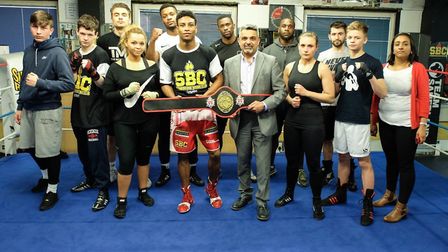 Muhammad Ali once said: “He who is not courageous enough to take risks will accomplish nothing in life”, with which Aamir Ali certainly agrees. Aamir said, “Stonebridge Boxing Club was a risk initially, I didn’t know how it was going to turn out”. One huge accomplishment. If you would like to learn more about JLC’s Main Grant Fund, please click here.
Muhammad Ali once said: “He who is not courageous enough to take risks will accomplish nothing in life”, with which Aamir Ali certainly agrees. Aamir said, “Stonebridge Boxing Club was a risk initially, I didn’t know how it was going to turn out”. One huge accomplishment. If you would like to learn more about JLC’s Main Grant Fund, please click here.
15. Noa Girls: Creating a safe space for her
Noa Girls was established in 2009 to provide practical, emotional and therapeutic support for adolescent girls in the Orthodox Jewish community.  Noa Girls was founded with the mission that no girl should face her challenges alone and believes that every girl should have access to all the available services that she needs. It provides a range of services, including mentoring, academic tutoring, therapeutic art and music, family therapy and business projects. Keyworkers provide wraparound care and support girls to access external services and therapy as well as accompanying them to appointments. The stigma of mental health and familial weakness remains strong in the Orthodox Jewish community and Noa’s steadfast commitment to ensuring the confidentiality of all girls who attend its services is central to its success. It structures sessions to ensure that girls rarely meet each other, and this confidentiality is maintained into its staffing (all from the Jewish community) so that key workers are only aware of the girls they are supporting. The Orthodox Jewish community has experienced the same recent trends of a surge of mental health challenges amongst adolescents. Yet the stigma around mental health may preclude them from getting the support that they need. Noa provides a professional, discreet and culturally sensitive service that ensures all girls feel safe and understood. For many girls (and their families) Noa is their only address.
Noa Girls was founded with the mission that no girl should face her challenges alone and believes that every girl should have access to all the available services that she needs. It provides a range of services, including mentoring, academic tutoring, therapeutic art and music, family therapy and business projects. Keyworkers provide wraparound care and support girls to access external services and therapy as well as accompanying them to appointments. The stigma of mental health and familial weakness remains strong in the Orthodox Jewish community and Noa’s steadfast commitment to ensuring the confidentiality of all girls who attend its services is central to its success. It structures sessions to ensure that girls rarely meet each other, and this confidentiality is maintained into its staffing (all from the Jewish community) so that key workers are only aware of the girls they are supporting. The Orthodox Jewish community has experienced the same recent trends of a surge of mental health challenges amongst adolescents. Yet the stigma around mental health may preclude them from getting the support that they need. Noa provides a professional, discreet and culturally sensitive service that ensures all girls feel safe and understood. For many girls (and their families) Noa is their only address. 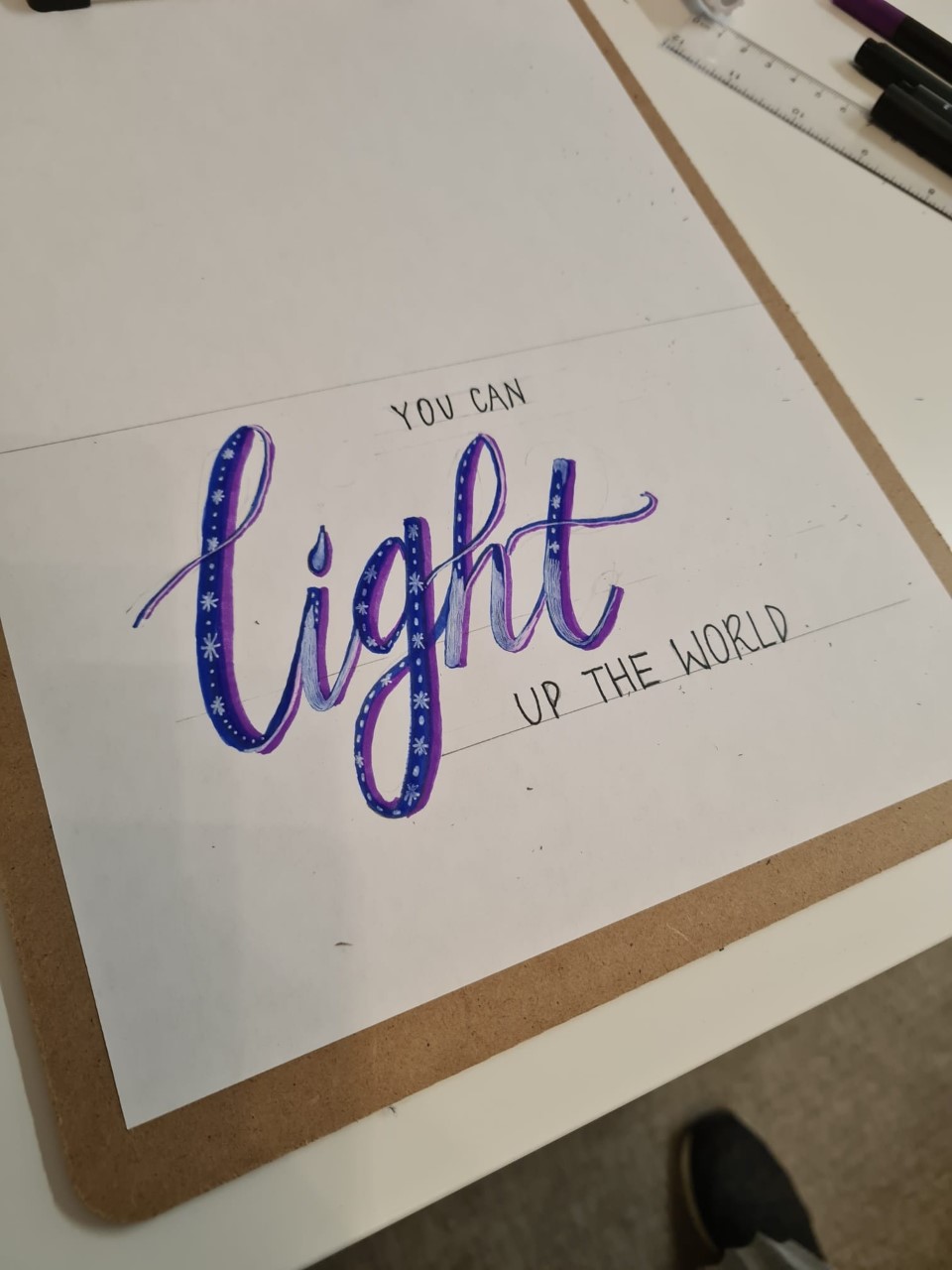 John Lyon’s Charity first awarded a grant to Noa Girls in 2020 to enable its Business Projects Programme to flourish. This programme, in line with the other programmes Noa offers, was designed to combat the challenges its girls face and give them the tools to thrive. Noa believes in empowering girls to create a healthier, independent future and is focused on equipping girls with the necessary tools for them to move forward with their lives. The Business Projects Programme is centred on giving girls transferable, marketable skills that they can utilise to secure future employment. This has included workshops such as scented candle making with artisan candle maker Lily Bella, learning calligraphy to design gift cards and creating and marketing beaded jewellery with inspirational messages.
John Lyon’s Charity first awarded a grant to Noa Girls in 2020 to enable its Business Projects Programme to flourish. This programme, in line with the other programmes Noa offers, was designed to combat the challenges its girls face and give them the tools to thrive. Noa believes in empowering girls to create a healthier, independent future and is focused on equipping girls with the necessary tools for them to move forward with their lives. The Business Projects Programme is centred on giving girls transferable, marketable skills that they can utilise to secure future employment. This has included workshops such as scented candle making with artisan candle maker Lily Bella, learning calligraphy to design gift cards and creating and marketing beaded jewellery with inspirational messages. 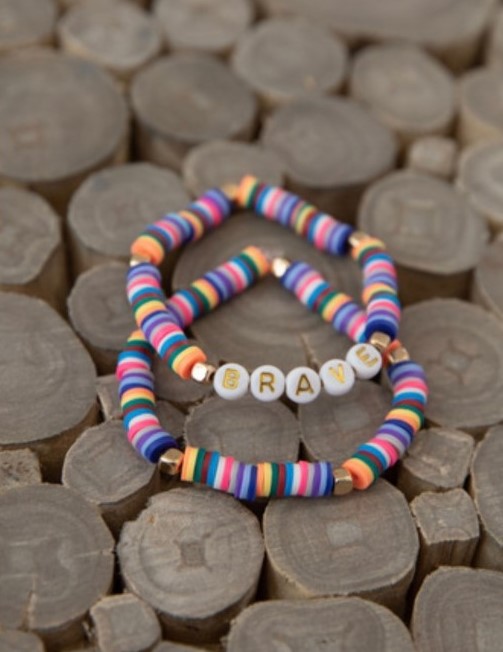 The programme enables girls to channel their unique talents and interests and shows them what they are capable of achieving. This taste of success spills over into other areas, giving them the confidence to tackle other areas of challenge. Rebecca Krasner, Grants & Communications Manager at Noa said: “The funding that Noa receives from JLC has been transformational for us as an organisation. Our ability to provide a holistic and flexible service rests on our being able to offer girls a wide range of supportive programmes so that girls can access what appeals most. Funding for our Business Project Programme has ensured that we can equip girls with the skills and confidence to build a healthier and more productive future.” During Covid-19, Noa’s ability to be responsive was critical. Funding from JLC enabled Noa to be an anchor of stability during a time of crisis. CEO of Noa Girls, Naomi Lerer adds: “As well as allowing us to support our existing girls, this funding helped us to take on additional girls who were struggling. Funding from JLC has facilitated our growth and helped lay the groundwork for our continued expansion, thereby enabling us to inch closer to our dream that n o girl in the London Orthodox Jewish community should struggle alone.” John Lyon’s Charity is very proud to support such an essential charity within the Orthodox Jewish community.
The programme enables girls to channel their unique talents and interests and shows them what they are capable of achieving. This taste of success spills over into other areas, giving them the confidence to tackle other areas of challenge. Rebecca Krasner, Grants & Communications Manager at Noa said: “The funding that Noa receives from JLC has been transformational for us as an organisation. Our ability to provide a holistic and flexible service rests on our being able to offer girls a wide range of supportive programmes so that girls can access what appeals most. Funding for our Business Project Programme has ensured that we can equip girls with the skills and confidence to build a healthier and more productive future.” During Covid-19, Noa’s ability to be responsive was critical. Funding from JLC enabled Noa to be an anchor of stability during a time of crisis. CEO of Noa Girls, Naomi Lerer adds: “As well as allowing us to support our existing girls, this funding helped us to take on additional girls who were struggling. Funding from JLC has facilitated our growth and helped lay the groundwork for our continued expansion, thereby enabling us to inch closer to our dream that n o girl in the London Orthodox Jewish community should struggle alone.” John Lyon’s Charity is very proud to support such an essential charity within the Orthodox Jewish community.
14. Strength and Learning Through Horses: why therapists don’t have to be human
Since 1991, John Lyon’s Charity has supported high quality, children and young people centred initiatives that seek to help those most in need. Good emotional health and wellbeing are key factors in the successful development of children and young people and the Charity has seen a steady increase in Emotional Wellbeing grants over the years. 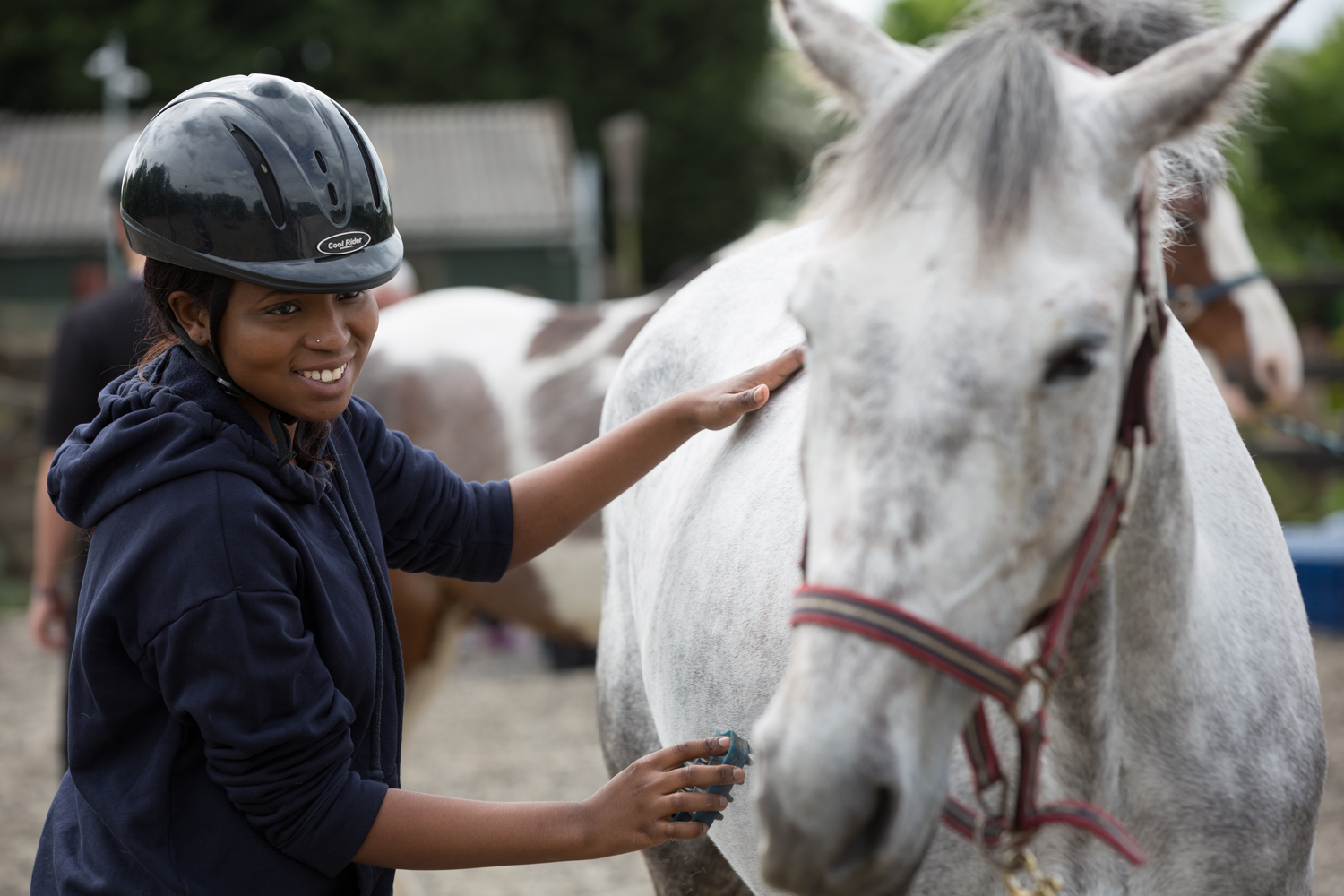 An exceptional example of emotional wellbeing initiatives is the inspiring Strength and Learning Through Horses (SLTH). This organisation works with many young people who serve to illustrate clearly why the support that Strength and Learning Through Horses is able to offer, is so vital. Based in North London, Strength and Learning Through Horses runs alternative education and equine therapy programmes, helping vulnerable young people to develop vital life skills through engaging with horses on their programmes. The programmes use horse therapy and equine assisted learning to equip participants with the skills and self-belief that they require to re-engage with education or employment. The young people and families that SLTH supports have been unable to engage with therapists or professionals in a more conventional way and this alternative approach equips them to manage their behaviour and to avert mental health problems later in life.
An exceptional example of emotional wellbeing initiatives is the inspiring Strength and Learning Through Horses (SLTH). This organisation works with many young people who serve to illustrate clearly why the support that Strength and Learning Through Horses is able to offer, is so vital. Based in North London, Strength and Learning Through Horses runs alternative education and equine therapy programmes, helping vulnerable young people to develop vital life skills through engaging with horses on their programmes. The programmes use horse therapy and equine assisted learning to equip participants with the skills and self-belief that they require to re-engage with education or employment. The young people and families that SLTH supports have been unable to engage with therapists or professionals in a more conventional way and this alternative approach equips them to manage their behaviour and to avert mental health problems later in life. 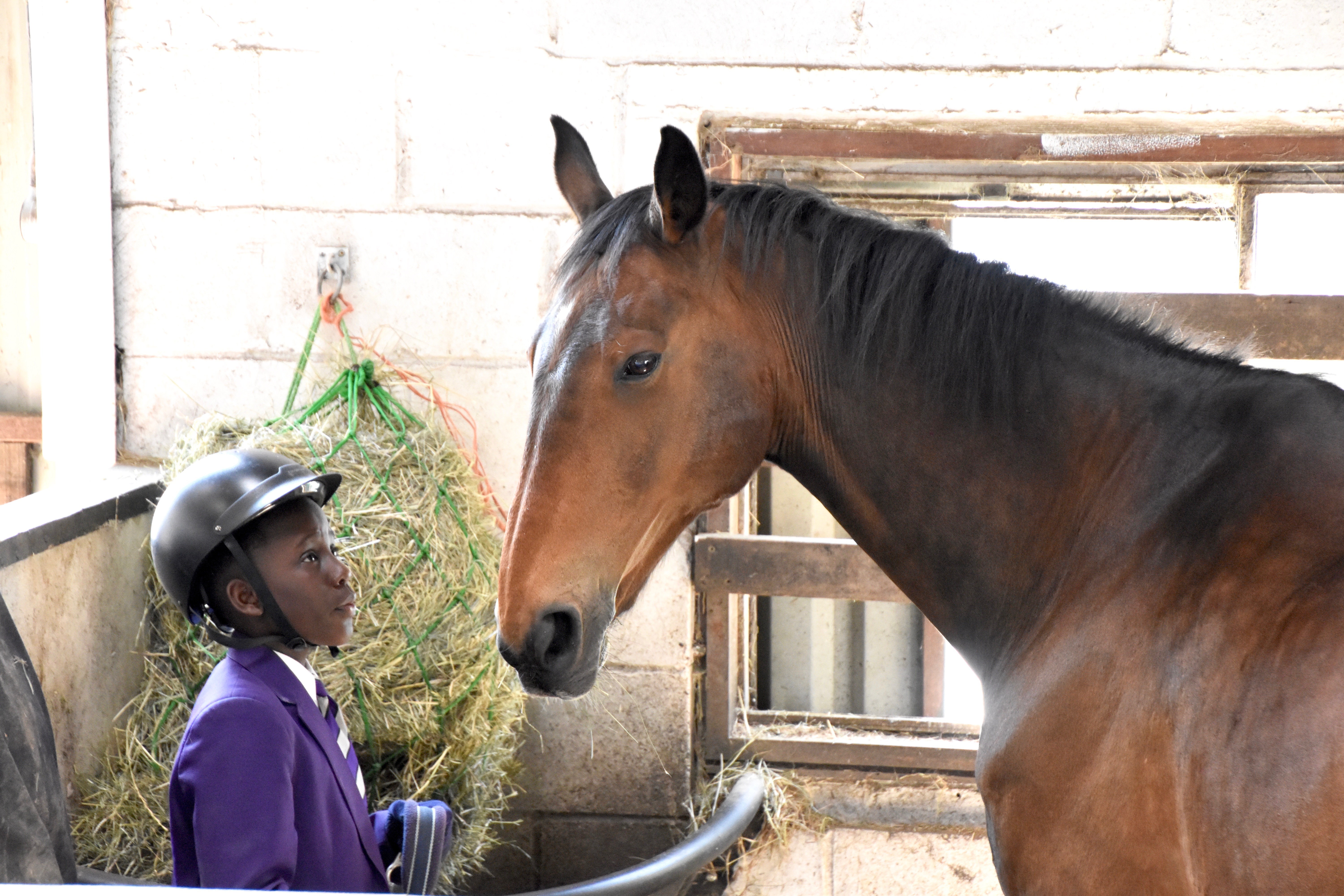 Dr Jemma Hockley, Clinical Psychologist, CEO & Therapy Programme Director of Strength and Learning Through Horses said: “This project is not about horse riding; equine therapy provides young people with the tools to develop their awareness of appropriate social and emotional health and behaviour and help them address their own mental health needs. Horses make powerful therapists and teachers. As herd animals, horses rely on their ability to forge strong relationships with one another for survival, which makes them incredibly socially sensitive. 99% of equine communication is through body language which means that horses immediately pick up on changes in mental state by sensing minute changes in body language. As a result, horses can help young people struggling with behavioural and mental health problems to learn and develop vital life skills.” John Lyon’s Charity has been supporting the organisation since 2014, having awarded over £340,000 in funding. Now, more than 400 young people attend SLTH programmes each year, benefitting from increased confidence, teamwork and leadership skills, improved time management, raised aspirations for future work and increased engagement with education or employment. Jemma continues: “JLC was with us in our inception when we were known as Strength in Horses and only offering therapy. Now we offer a therapy and educational programme, which JLC continued to fund and fully support whilst we made the transition into Strength and Learning Through Horses. We are incredibly grateful for the continued support from JLC, especially during Covid-19 where it was an essential need that young people receive emotional and mental health support. We couldn’t have continued to deliver or be where we are today without the funding from John Lyon’s Charity.” Due to SLTH’s continued success, it will be moving to a brand-new site in the New Year with plans to develop a purpose-built facility so that they can further increase their capacity in response to need. This will allow SLTH to be more creative with their delivery going forward, with the end goal ensuring access for as many young people and communities in need of equine therapy as possible. If you would like to learn more about JLC’s Emotional Wellbeing Programme Area, please click here.
Dr Jemma Hockley, Clinical Psychologist, CEO & Therapy Programme Director of Strength and Learning Through Horses said: “This project is not about horse riding; equine therapy provides young people with the tools to develop their awareness of appropriate social and emotional health and behaviour and help them address their own mental health needs. Horses make powerful therapists and teachers. As herd animals, horses rely on their ability to forge strong relationships with one another for survival, which makes them incredibly socially sensitive. 99% of equine communication is through body language which means that horses immediately pick up on changes in mental state by sensing minute changes in body language. As a result, horses can help young people struggling with behavioural and mental health problems to learn and develop vital life skills.” John Lyon’s Charity has been supporting the organisation since 2014, having awarded over £340,000 in funding. Now, more than 400 young people attend SLTH programmes each year, benefitting from increased confidence, teamwork and leadership skills, improved time management, raised aspirations for future work and increased engagement with education or employment. Jemma continues: “JLC was with us in our inception when we were known as Strength in Horses and only offering therapy. Now we offer a therapy and educational programme, which JLC continued to fund and fully support whilst we made the transition into Strength and Learning Through Horses. We are incredibly grateful for the continued support from JLC, especially during Covid-19 where it was an essential need that young people receive emotional and mental health support. We couldn’t have continued to deliver or be where we are today without the funding from John Lyon’s Charity.” Due to SLTH’s continued success, it will be moving to a brand-new site in the New Year with plans to develop a purpose-built facility so that they can further increase their capacity in response to need. This will allow SLTH to be more creative with their delivery going forward, with the end goal ensuring access for as many young people and communities in need of equine therapy as possible. If you would like to learn more about JLC’s Emotional Wellbeing Programme Area, please click here.
13. Beauchamp Lodge Settlement – The Floating Classroom: keeping education afloat
Since 1991, education has been at the heart of the work of John Lyon’s Charity. Organisations that aspire to provide opportunities for children and young people across the Beneficial Area have been of interest, even if it meant taking education off dry land. 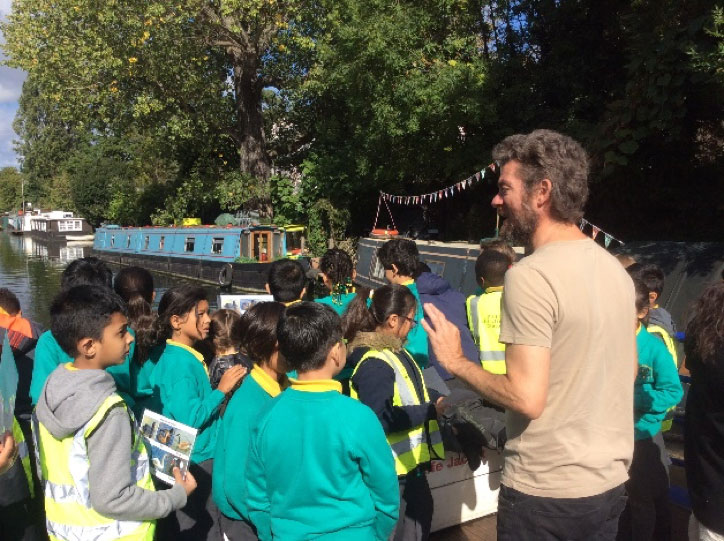 The Beauchamp Lodge Settlement (BLS) is a small charity that has worked with communities in North Westminster since 1938. Its mission is to help people from a diverse range of backgrounds achieve their full potential by providing transformational learning experiences that broaden horizons and build confidence. Today, BLS provides imaginative, engaging and fun learning experiences inspired by the locations in which they take place – London’s waterways and green spaces. In the early 2000s, BLS took the decision to focus all of its energies and creativity on an even more exciting and innovative project, which became known as the Floating Classroom. The programme embodies BLS’s commitment to hands-on learning; bringing topics to life through activities which are inclusive, immersive and, critically, fun. The Floating Classroom works predominantly with schools in John Lyon’s Charity’s Beneficial Area, including Westminster, Brent, Camden, Ealing, Hammersmith & Fulham and the Royal Borough of Kensington & Chelsea. The majority of the schools that visit the Floating Classroom have very high proportions of pupils living in socio-economic deprivation. In Westminster, 46.2% of children live in poverty after housing costs [1] . Private rent for low earners and income inequality are both very high in the borough, with only the Royal Borough of Kensington & Chelsea performing worse on both these indicators in London [2] . 14% of Westminster neighbourhoods are in severe deprivation which is defined as being in the top 10% of deprived neighbourhoods in the country [3]. The Floating Classroom enables children living in this context to access enriching experiences that would otherwise not be available to them.
The Beauchamp Lodge Settlement (BLS) is a small charity that has worked with communities in North Westminster since 1938. Its mission is to help people from a diverse range of backgrounds achieve their full potential by providing transformational learning experiences that broaden horizons and build confidence. Today, BLS provides imaginative, engaging and fun learning experiences inspired by the locations in which they take place – London’s waterways and green spaces. In the early 2000s, BLS took the decision to focus all of its energies and creativity on an even more exciting and innovative project, which became known as the Floating Classroom. The programme embodies BLS’s commitment to hands-on learning; bringing topics to life through activities which are inclusive, immersive and, critically, fun. The Floating Classroom works predominantly with schools in John Lyon’s Charity’s Beneficial Area, including Westminster, Brent, Camden, Ealing, Hammersmith & Fulham and the Royal Borough of Kensington & Chelsea. The majority of the schools that visit the Floating Classroom have very high proportions of pupils living in socio-economic deprivation. In Westminster, 46.2% of children live in poverty after housing costs [1] . Private rent for low earners and income inequality are both very high in the borough, with only the Royal Borough of Kensington & Chelsea performing worse on both these indicators in London [2] . 14% of Westminster neighbourhoods are in severe deprivation which is defined as being in the top 10% of deprived neighbourhoods in the country [3]. The Floating Classroom enables children living in this context to access enriching experiences that would otherwise not be available to them. 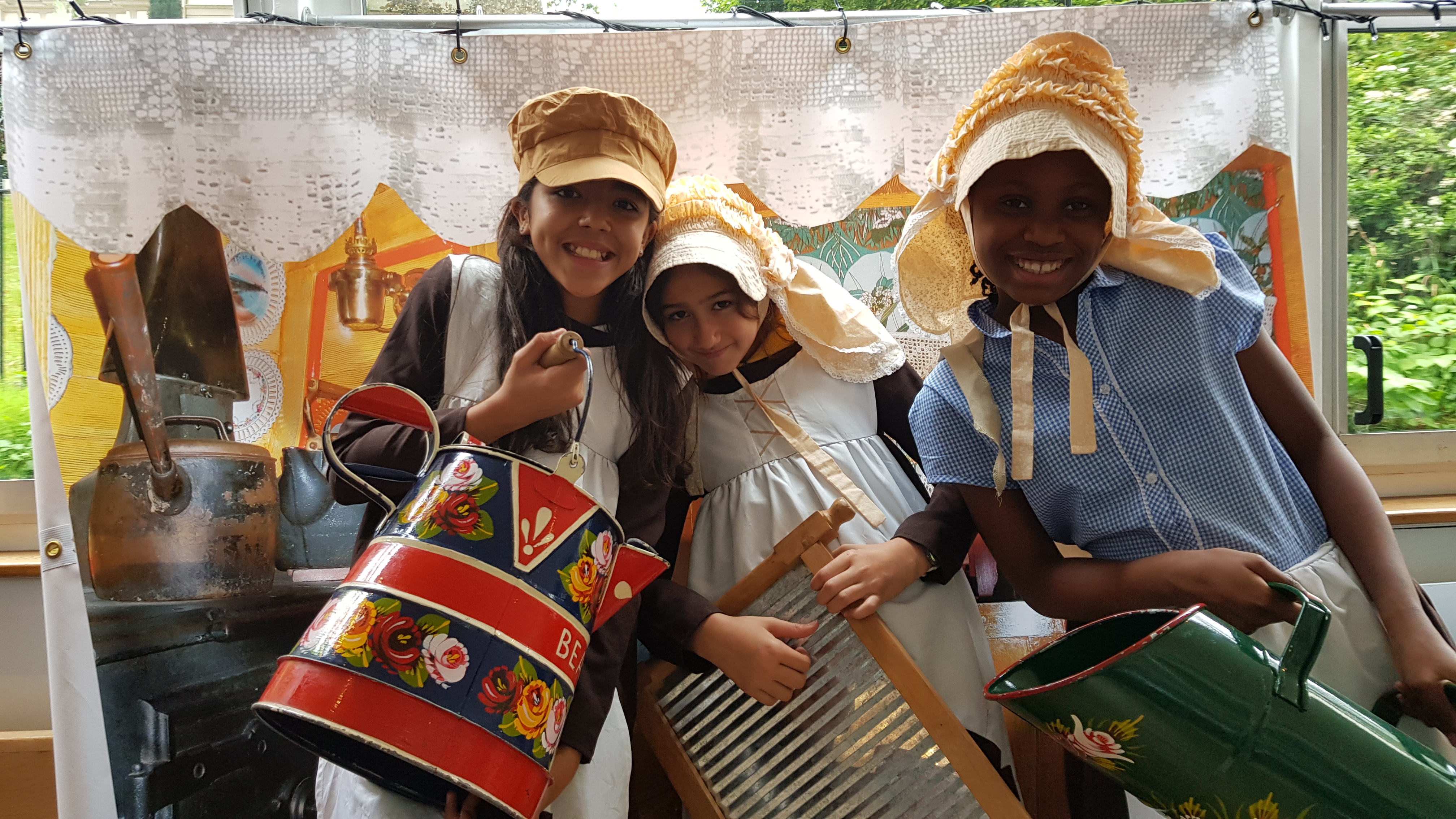 Simon Ryder, CEO of the Floating Classroom commented: “When canvassing teachers on their considerations for out of classroom learning, we found a consensus that trips should address core curriculum requirements while offering experiences that schools are unable to provide or would not normally have access to. The children we work with are also deprived in terms of access to nature; to the nurturing and enriching experiences provided by waterways and green spaces. Access and proximity to green space are unequally distributed across the population. The most affluent 20% of wards in England have five times the amount of green space compared to the most deprived 10% of wards.” John Lyon’s Charity was one of BLS’s original Funders, with its first grant awarded by the Charity in 2001. Simon Ryder continues: “This was an important vote of confidence in an exciting, innovative and ambitious new learning project in London and as such was crucial in establishing the boat as a unique venue for outdoors education in the city. The funding allowed the project to promote inclusion of all children, especially those with learning and physical disabilities, behavioural problems, refugees and those excluded from mainstream education. The relationship with the Charity has gone from strength to strength with multiple grants awarded since 2001.” Since its launch in October 2001, BLS has welcomed on board around 42,000 pupils from schools in 18 of the 32 London boroughs, to take part in learning activities. They have made ice-cream Victorian-style in the Canal Museum at King’s Cross, worked the locks at Camden Market, grilled executives in the offices at Paddington Central, planted beans and cooked pizza in Meanwhile Gardens and built dens from branches and twine in Wormwood Scrubs Park. John Lyon’s Charity is incredibly proud to have supported Beauchamp Lodge Settlement and The Floating Classroom since 2001, demonstrating that education doesn’t always have to take place in a classroom.
Simon Ryder, CEO of the Floating Classroom commented: “When canvassing teachers on their considerations for out of classroom learning, we found a consensus that trips should address core curriculum requirements while offering experiences that schools are unable to provide or would not normally have access to. The children we work with are also deprived in terms of access to nature; to the nurturing and enriching experiences provided by waterways and green spaces. Access and proximity to green space are unequally distributed across the population. The most affluent 20% of wards in England have five times the amount of green space compared to the most deprived 10% of wards.” John Lyon’s Charity was one of BLS’s original Funders, with its first grant awarded by the Charity in 2001. Simon Ryder continues: “This was an important vote of confidence in an exciting, innovative and ambitious new learning project in London and as such was crucial in establishing the boat as a unique venue for outdoors education in the city. The funding allowed the project to promote inclusion of all children, especially those with learning and physical disabilities, behavioural problems, refugees and those excluded from mainstream education. The relationship with the Charity has gone from strength to strength with multiple grants awarded since 2001.” Since its launch in October 2001, BLS has welcomed on board around 42,000 pupils from schools in 18 of the 32 London boroughs, to take part in learning activities. They have made ice-cream Victorian-style in the Canal Museum at King’s Cross, worked the locks at Camden Market, grilled executives in the offices at Paddington Central, planted beans and cooked pizza in Meanwhile Gardens and built dens from branches and twine in Wormwood Scrubs Park. John Lyon’s Charity is incredibly proud to have supported Beauchamp Lodge Settlement and The Floating Classroom since 2001, demonstrating that education doesn’t always have to take place in a classroom. 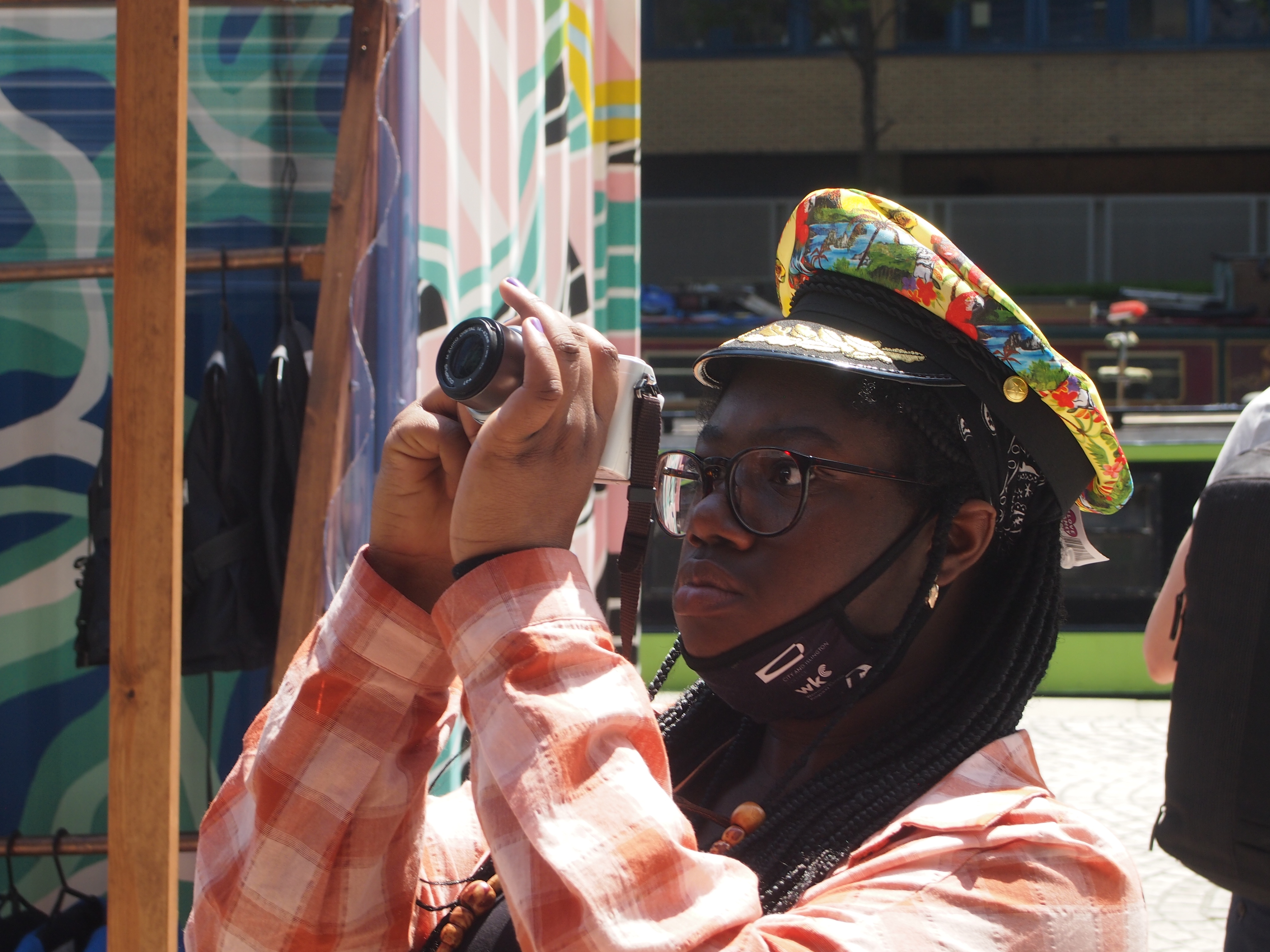 Sources [1] End Child Poverty, 2019 [2] Trust for London, 2019 [3] Understanding Social Needs in Westminster – NPC Think Tank October 2012
Sources [1] End Child Poverty, 2019 [2] Trust for London, 2019 [3] Understanding Social Needs in Westminster – NPC Think Tank October 2012
12. Shepherds Bush Families Project – bringing families closer together
John Lyon’s Charity supports a wide variety of projects that exist to develop parenting skills, provide support to those in the greatest of need and to prevent families from reaching crisis point. Family life is not easy and even the most secure environments can be fragile and crack if exposed to certain pressures, such as relationship breakdown, bereavement, domestic abuse or economic difficulties.  Shepherds Bush Families Project (SBFP) is part of the Family Support group of centres, an independent charity that offers community-based services to assist and support parents in their role as caregivers. The project has been at the heart of the local community of Shepherds Bush since 1988. The project began in a local Baptist church hall with the vision of running advice and advocacy services for parents, as well as daily drop-in sessions for parents and children, in order to help families who are homeless, have other unmet housing needs and/or suffer social and economic hardship. Children and young people living in poor housing often miss out on the givens of family life and can react negatively to the stigma attached to poor housing. Young people living in overcrowded accommodation may lack the physical and emotional space to complete homework or course work and SBFP offers children and young people a safe space to complete schoolwork, get help from staff who have teaching backgrounds and those with skills in other areas.
Shepherds Bush Families Project (SBFP) is part of the Family Support group of centres, an independent charity that offers community-based services to assist and support parents in their role as caregivers. The project has been at the heart of the local community of Shepherds Bush since 1988. The project began in a local Baptist church hall with the vision of running advice and advocacy services for parents, as well as daily drop-in sessions for parents and children, in order to help families who are homeless, have other unmet housing needs and/or suffer social and economic hardship. Children and young people living in poor housing often miss out on the givens of family life and can react negatively to the stigma attached to poor housing. Young people living in overcrowded accommodation may lack the physical and emotional space to complete homework or course work and SBFP offers children and young people a safe space to complete schoolwork, get help from staff who have teaching backgrounds and those with skills in other areas.
Shepherds Bush Families Project has received funding from John Lyon’s Charity since 2003. The Charity has awarded Shepherds Bush Families Project £299,000 in grants, supporting projects such as its After School Club and its holiday provision. These are increasingly popular and vital services which are relied on by 100 families each year. After school sessions provide an opportunity for young people to play games, try out different forms of art and complete homework in a safe and friendly space. Having the space and resources to complete homework is particularly important for children facing housing difficulties and enables parents to engage in their child’s learning and play. The contribution from John Lyon’s Charity has been vital in enabling the project to continue to meet the needs of families. Tina Mayers, CEO of Shepherds Bush Families Project said: “Funding from JLC has been vital for many of the children and young people we work with. As we have been able to offer a free service to families, no child or young person has been excluded due to financial constraints. Many of the children and young people have had opportunities to take part in activities that would normally have been denied to them. As a result, these young people have made and built friendships that have gone beyond the life of SBFP and given them the opportunity to increase their circle of friends. This has also led to families being able to offer mutual support to each other. This was so vital during the pandemic and various lockdowns, as families, who have little support were encouraged to form support bubbles to help each other.” Over the last 33 years, SBFP’s services have expanded and developed organically in response to emerging and developing needs. This has been undertaken in consultation with their families and with other relevant agencies and community groups in the area. John Lyon’s Charity seeks to help parents give their children the best start in life by supporting a variety of projects that help develop parenting skills and support those in need. To find out more about our Children and Families Programme Area, please click here.
11. Harrow Carers – showing young carers how to be young children
What is a carer? The NHS defines a carer as someone who looks after a family member, partner or friend who needs help because of their illness, frailty, disability, mental health problem or an addiction and cannot cope without their support. 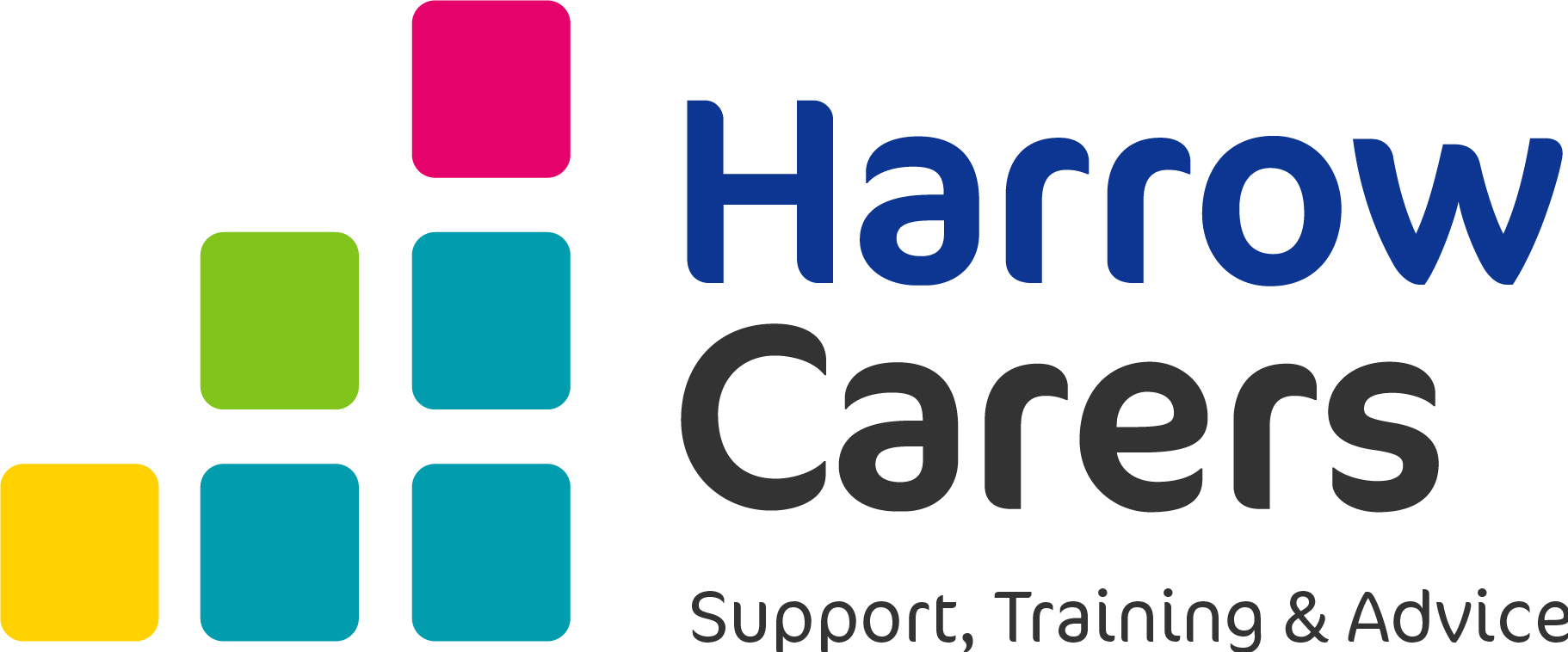 A carer can be anyone. A carer can be a child or young person. Harrow Carers was set up in 1996 in response to changes in legislation in 1995 under the Carers (Recognition and Services) Act 1995. This was when carers were first formally recognised as having their own rights to support in UK law. The initial vision of Harrow Carers was to identify and offer advice and support to all unpaid carers in the London Borough of Harrow. It is now the borough’s leading organisation for all carers and supports nearly 4,000 people annually, providing high quality support, advocacy, information, counselling and activities regardless of age, gender or ethnicity. Young carers are often isolated or lonely, have a lower level of educational attainment, find it hard to establish relationships with peers and need support to carry out their caring roles. Harrow Carers is a vital organisation in the Harrow community, seeking to ensure that these young people still experience the childhood they deserve. Charmian Boyd, Chief Executive Officer of Harrow Carers said: “We support children and young people through a range of activities: one to one support, helping them understand their caring roles, providing them with life skills, enhancing their education, enabling them to get peer support and establish friendships, counselling, arranging assessments and other practical support. Unlike other target youth support interventions we recognise that being a young carer is often a life term journey. It is not a phase or behaviour or Trauma that can be responded to in a short-term piece of work. A child growing up in poverty can, through education and opportunity, become an adult living in prosperity.”
A carer can be anyone. A carer can be a child or young person. Harrow Carers was set up in 1996 in response to changes in legislation in 1995 under the Carers (Recognition and Services) Act 1995. This was when carers were first formally recognised as having their own rights to support in UK law. The initial vision of Harrow Carers was to identify and offer advice and support to all unpaid carers in the London Borough of Harrow. It is now the borough’s leading organisation for all carers and supports nearly 4,000 people annually, providing high quality support, advocacy, information, counselling and activities regardless of age, gender or ethnicity. Young carers are often isolated or lonely, have a lower level of educational attainment, find it hard to establish relationships with peers and need support to carry out their caring roles. Harrow Carers is a vital organisation in the Harrow community, seeking to ensure that these young people still experience the childhood they deserve. Charmian Boyd, Chief Executive Officer of Harrow Carers said: “We support children and young people through a range of activities: one to one support, helping them understand their caring roles, providing them with life skills, enhancing their education, enabling them to get peer support and establish friendships, counselling, arranging assessments and other practical support. Unlike other target youth support interventions we recognise that being a young carer is often a life term journey. It is not a phase or behaviour or Trauma that can be responded to in a short-term piece of work. A child growing up in poverty can, through education and opportunity, become an adult living in prosperity.” 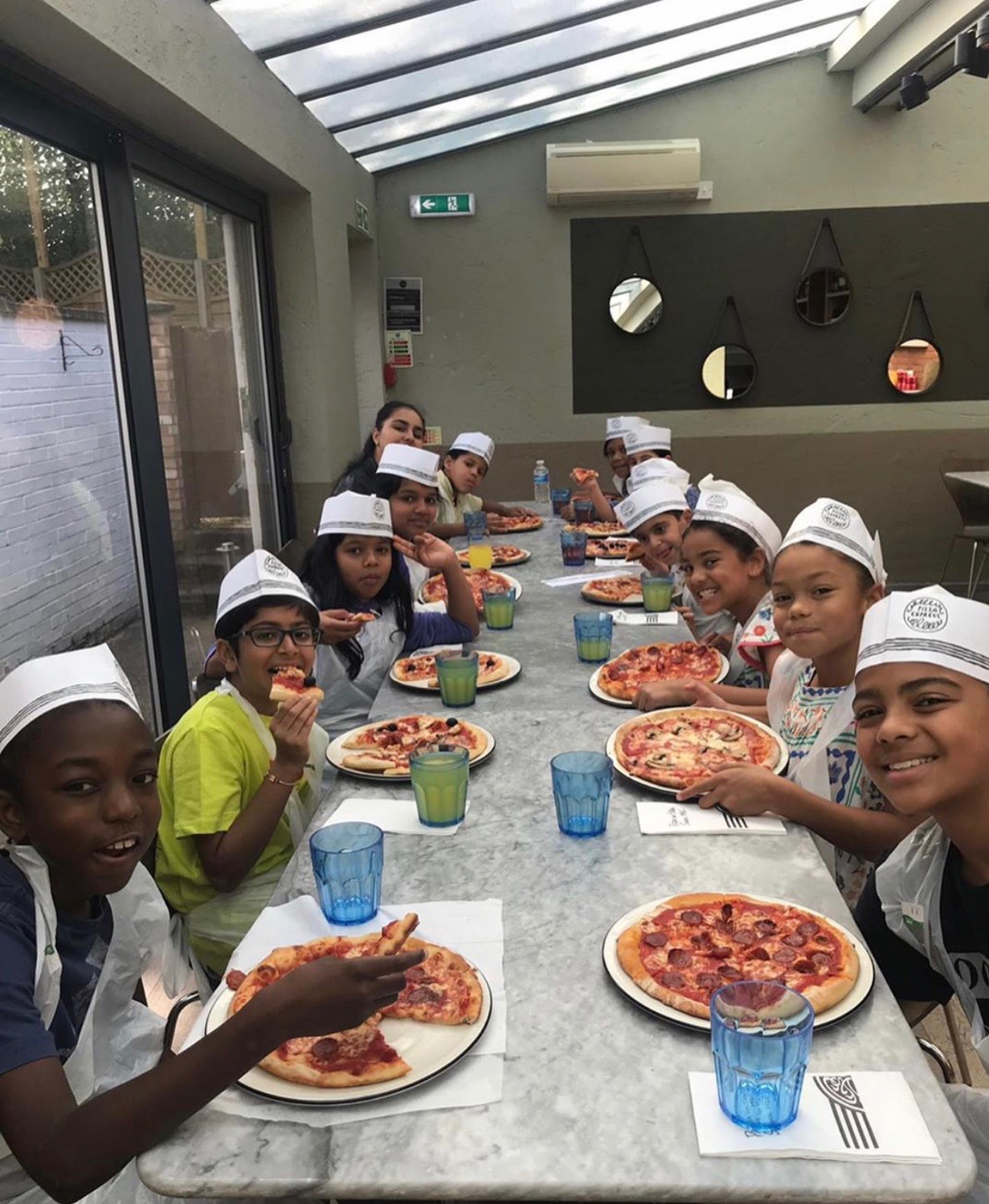 A key part of the work is helping young people learn how to create peer support networks to manage their wellbeing. Harrow Carers is a service designed to walk and support a young person through the changes and challenges of being a carer, from childhood to late adulthood. John Lyon’s Charity (JLC) has supported Harrow Carers since 2002 and awarded over £259,000 in funding. This funding has gone towards the salary of a Young Carer’s Manager, which has been instrumental to the organisation’s growth. Funding has also contributed to a variety of trips and experiences during the school holidays to remind young carers how to be young and carefree whilst experiencing the opportunities all children and young people should growing up. Charmian Boyd continues: “John Lyon’s Charity has been one of the key funders to help Harrow Carers as a service get to where it is today. In the last 10 years we have provided support to over 650 unique young carers living in, or attending education, in Harrow through 936 activities. The funding has supported over 650 young carers to have respite from their caring role by participating in enriching holidays over this time. There have also been opportunities for young carers to go on sailing trips, become NHS ambassadors, take part in a European trial into managing emotional health in young carers and much, much more.” Going forward, the goal for Harrow Carers is to continue to be a stable presence for young carers and young adult carers in, or attending education, in Harrow. The agenda has, and always will be, to support them to overcome the impacts of caring and to have fruitful and successful lives. John Lyon’s Charity is proud to support such an essential service within the heart of its Beneficial Area.
A key part of the work is helping young people learn how to create peer support networks to manage their wellbeing. Harrow Carers is a service designed to walk and support a young person through the changes and challenges of being a carer, from childhood to late adulthood. John Lyon’s Charity (JLC) has supported Harrow Carers since 2002 and awarded over £259,000 in funding. This funding has gone towards the salary of a Young Carer’s Manager, which has been instrumental to the organisation’s growth. Funding has also contributed to a variety of trips and experiences during the school holidays to remind young carers how to be young and carefree whilst experiencing the opportunities all children and young people should growing up. Charmian Boyd continues: “John Lyon’s Charity has been one of the key funders to help Harrow Carers as a service get to where it is today. In the last 10 years we have provided support to over 650 unique young carers living in, or attending education, in Harrow through 936 activities. The funding has supported over 650 young carers to have respite from their caring role by participating in enriching holidays over this time. There have also been opportunities for young carers to go on sailing trips, become NHS ambassadors, take part in a European trial into managing emotional health in young carers and much, much more.” Going forward, the goal for Harrow Carers is to continue to be a stable presence for young carers and young adult carers in, or attending education, in Harrow. The agenda has, and always will be, to support them to overcome the impacts of caring and to have fruitful and successful lives. John Lyon’s Charity is proud to support such an essential service within the heart of its Beneficial Area. 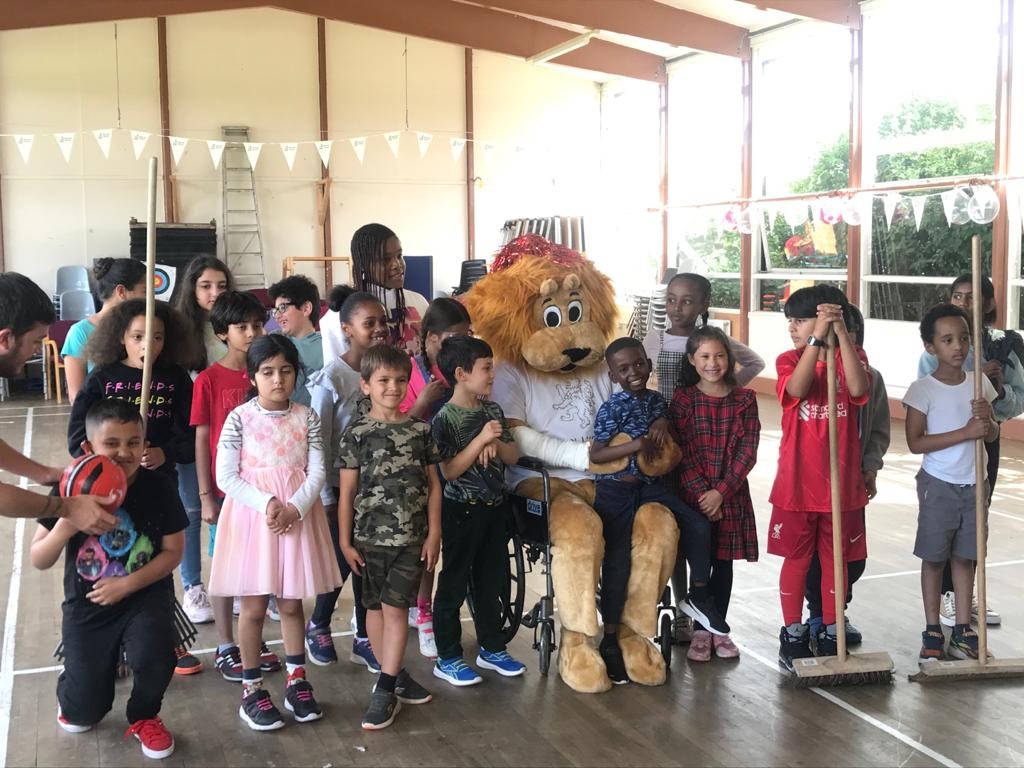
10. A.P.P.L.E (Acton Play Projects & Leisure Events) – all are welcome
In 1996, a group of Ealing based parents with young children (many of whom worked in Children’s, Youth and Education services) identified a gap and a need for a safe space within the Ealing community. What began as a simple idea, quickly evolved into serious discussions, a strategic approach to run a centre focussing on children and young people in a block of converted toilets in Acton Park. It was here: Acton Play Projects & Leisure Events (A.P.P.L.E) was born. Its core purpose is to support children and young people and their families by providing free, open access recreational, educational and creative activities out of school hours.  A.P.P.L.E delivers high quality, open access play activities for children aged 8-18 years of age. It is a vital local community resource, serving an area severely under-served for youth activities. A.P.P.L.E works hard to create a safe space to give young people life and work skills, greater confidence and resourcefulness. Acton has areas of deprivation amidst areas of rising affluence. In local schools, such as East Acton Primary School, 36% of their students are registered for free school meals, higher than the national average. While these young people are at A.P.P.L.E they have access to a calm, safe, positive environment in which they can begin to make positive choices for themselves. A.P.P.L.E’s goal is to support children and young people who are living in disadvantaged circumstances or are experiencing difficulties in their lives.
A.P.P.L.E delivers high quality, open access play activities for children aged 8-18 years of age. It is a vital local community resource, serving an area severely under-served for youth activities. A.P.P.L.E works hard to create a safe space to give young people life and work skills, greater confidence and resourcefulness. Acton has areas of deprivation amidst areas of rising affluence. In local schools, such as East Acton Primary School, 36% of their students are registered for free school meals, higher than the national average. While these young people are at A.P.P.L.E they have access to a calm, safe, positive environment in which they can begin to make positive choices for themselves. A.P.P.L.E’s goal is to support children and young people who are living in disadvantaged circumstances or are experiencing difficulties in their lives. 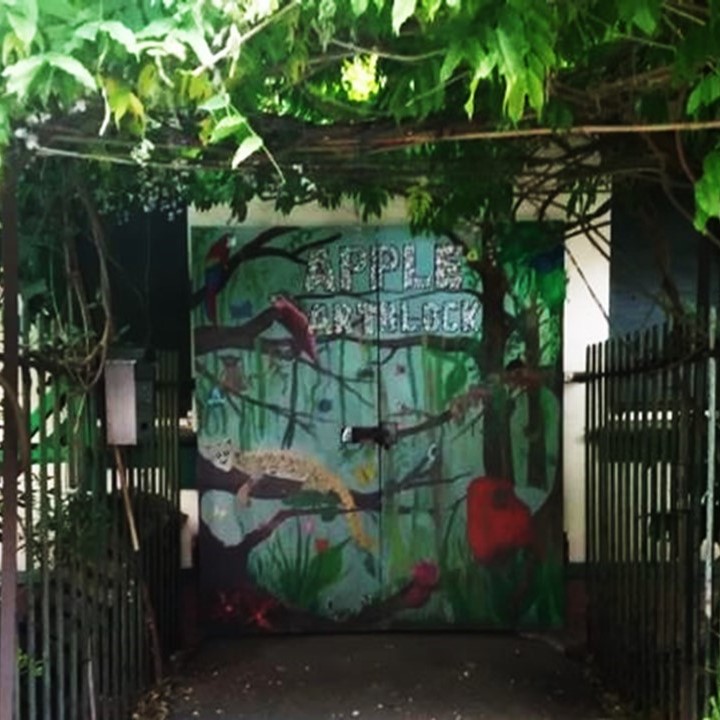 A.P.P.L.E has been supported by John Lyon’s Charity (JLC) since 1998 and have been awarded over £763,200 in funding. It is an engaged member of the John Lyon community and regularly applies for the School Holiday Activity Fund to support its holiday provision; it is also a member of the Young Ealing Foundation. Vicki Barker, Co-founder and Project Coordinator at A.P.P.L.E. said: “JLC came and visited the ARTBLOCK shortly after we had moved in. It was freezing cold. We had no heating, no proper doors, and the place was very, very basic. But it was full of art and looked as it does today – a place that belongs to children and young people. A glorified den.” Vicki continues: “Our first grant from John Lyon’s Charity put us properly on the road. At the time we were offering individual projects, we were not able to sustain regular opening times or a complete joined up programme. The aim was always to offer a year-round programme with set days and times where people could count on us being open. The continuing support from JLC has enabled us to fulfil that aim. There would be no A.P.P.L.E without John Lyon’s Charity – it has provided the central structure from which we have been able to grow all that we do.”
A.P.P.L.E has been supported by John Lyon’s Charity (JLC) since 1998 and have been awarded over £763,200 in funding. It is an engaged member of the John Lyon community and regularly applies for the School Holiday Activity Fund to support its holiday provision; it is also a member of the Young Ealing Foundation. Vicki Barker, Co-founder and Project Coordinator at A.P.P.L.E. said: “JLC came and visited the ARTBLOCK shortly after we had moved in. It was freezing cold. We had no heating, no proper doors, and the place was very, very basic. But it was full of art and looked as it does today – a place that belongs to children and young people. A glorified den.” Vicki continues: “Our first grant from John Lyon’s Charity put us properly on the road. At the time we were offering individual projects, we were not able to sustain regular opening times or a complete joined up programme. The aim was always to offer a year-round programme with set days and times where people could count on us being open. The continuing support from JLC has enabled us to fulfil that aim. There would be no A.P.P.L.E without John Lyon’s Charity – it has provided the central structure from which we have been able to grow all that we do.” 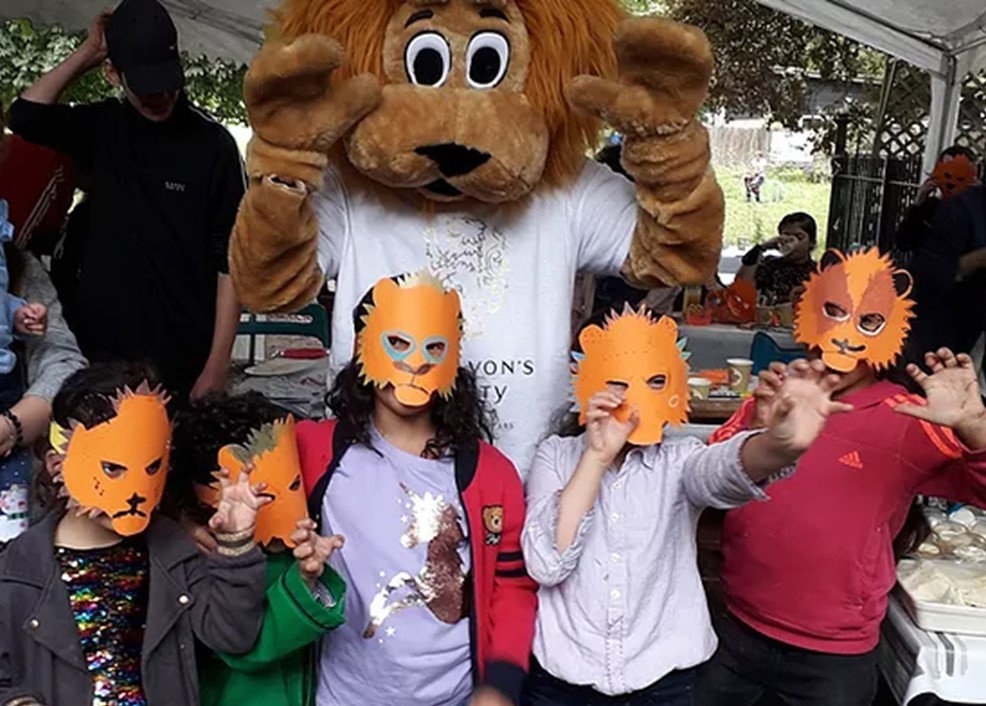 Going forward, A.P.P.L.E will continue to provide a space for children and young people, that they feel is theirs, is safe, structured, dependable and providing the things they want; something to eat, a place to socialise with friends, and taking part in interesting, exciting, fun things to do. Somewhere they can access emotional and social support. If you would like to find out more about JLC’s School Holiday Activity Fund, please click here.
Going forward, A.P.P.L.E will continue to provide a space for children and young people, that they feel is theirs, is safe, structured, dependable and providing the things they want; something to eat, a place to socialise with friends, and taking part in interesting, exciting, fun things to do. Somewhere they can access emotional and social support. If you would like to find out more about JLC’s School Holiday Activity Fund, please click here.
9. Brent Centre for Young People – providing emotional and therapeutic support to young people
John Lyon’s Charity (JLC) has always valued the work of organisations supporting children and young people with their mental health, awarding 219 grants totalling over £12M since 1991. 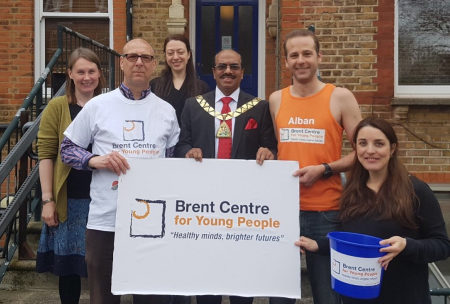 The Brent Centre for Young People (BCYP) is the leading mental health charity for young people in North West London and one of the groups known to the Charity the longest. Since 1994 John Lyon’s Charity has awarded over £1.2million in funding to help support BCYP’s mission to improve young people’s lives through specialised treatment in the areas of suicide prevention, self-harm, eating disorders, and more. Since its creation, the BCYP has cemented itself as the leading provider of therapy services in the community. Its clinicians have developed talking therapies which are unique to the Centre, including Adolescent Exploratory Therapy (a talking therapy geared specifically to teens), Group Therapy for Young Offenders, and Sport & Thought, (a unique program using football exercises to provide group therapy to young people who have difficulty engaging with any mental health support). Currently the Centre predominantly reaches young people through 13 schools, the Youth Offending Service (YOS), in-house at the main site in North West London, and through other local projects.
The Brent Centre for Young People (BCYP) is the leading mental health charity for young people in North West London and one of the groups known to the Charity the longest. Since 1994 John Lyon’s Charity has awarded over £1.2million in funding to help support BCYP’s mission to improve young people’s lives through specialised treatment in the areas of suicide prevention, self-harm, eating disorders, and more. Since its creation, the BCYP has cemented itself as the leading provider of therapy services in the community. Its clinicians have developed talking therapies which are unique to the Centre, including Adolescent Exploratory Therapy (a talking therapy geared specifically to teens), Group Therapy for Young Offenders, and Sport & Thought, (a unique program using football exercises to provide group therapy to young people who have difficulty engaging with any mental health support). Currently the Centre predominantly reaches young people through 13 schools, the Youth Offending Service (YOS), in-house at the main site in North West London, and through other local projects.
Since the Centre secured its first grant (£30,000) from the Charity in 1994, funding has provided much-needed resources to build work the of the Centre and created a sense of financial stability across all of the Brent Centre’s services. It has also helped to raise the Centre’s credibility with new funders and, consequently, helped them raise additional resources to expand their reach to more young people. JLC’s core funding to BCYP helps 150-200 young people each year and has also played a major role in expanding the Centre’s schools program deeper into Brent and additionally into Ealing. During the pandemic alone, JLC provided £40,000 in emergency funding that allowed BCYP to enhance their intervention in schools, and create a more supportive counselling service for pupils.  “Much of our successes in reaching more young people in North London over the past 25 years, through a range of therapies, has been founded on JLC’s dedication to our mission”, said Dr Maxim de Sauma, BCYP Chief Executive Officer and Clinical Director. “Thanks to JLC’s support, our patients have accessed a safe space for quality therapy to work through their challenges and find a way to move forward. For this, we are tremendously grateful for working together.” The Centre’s primary goal moving forward is to expand specialist mental health services into neighbouring boroughs. The key next steps are to set up a second clinic in Westminster, which builds on the long-standing working relationship with the Institute of Psychoanalysis and commitment to develop BCYP’s training and research in child psychoanalysis. There are also plans to introduce individual packages of BCYP’s services to neighbouring boroughs based on respective demand. BCYP share the same vision as JLC, with a core mission to provide support and opportunities to young people, and to help young people address their difficulties at an early stage so that they can become healthier, happier adults. We are very proud to have supported Brent Centre for Young People and to have maintained a strong partnership after all these years.
“Much of our successes in reaching more young people in North London over the past 25 years, through a range of therapies, has been founded on JLC’s dedication to our mission”, said Dr Maxim de Sauma, BCYP Chief Executive Officer and Clinical Director. “Thanks to JLC’s support, our patients have accessed a safe space for quality therapy to work through their challenges and find a way to move forward. For this, we are tremendously grateful for working together.” The Centre’s primary goal moving forward is to expand specialist mental health services into neighbouring boroughs. The key next steps are to set up a second clinic in Westminster, which builds on the long-standing working relationship with the Institute of Psychoanalysis and commitment to develop BCYP’s training and research in child psychoanalysis. There are also plans to introduce individual packages of BCYP’s services to neighbouring boroughs based on respective demand. BCYP share the same vision as JLC, with a core mission to provide support and opportunities to young people, and to help young people address their difficulties at an early stage so that they can become healthier, happier adults. We are very proud to have supported Brent Centre for Young People and to have maintained a strong partnership after all these years.
8. icandance: a community where anyone can dance
John Lyon’s Charity (JLC) prides itself on supporting organisations that provide opportunities for children and young people with special needs and disabilities to have the same experiences as their peers. Any person should have the same experience as another and a prime example of this is the creative, inspiring and inclusive charity – icandance.  icandance was founded by Juliet Diener with the vision to celebrate children and young people with disabilities and to help find opportunities for them to thrive, particularly through dance. The charity’s name ‘icandance’ was chosen to inspire and remind anyone doubting themselves that they can do anything regardless of disability. Its work focuses not only on the needs of the children and young people but also their families, creating a community which makes no one want leave. This inclusive charity has been so successful that alumni’s come back to volunteer, continuing to thrive in a place where they are accepted for who they are and not defined or judged by their disability. icandance offers community group dance sessions each week as well as at schools and in various settings for those with disabilities and their families. They also offer individual dance movement psychotherapy sessions, Parent therapy groups, a youth dance company and a young ambassadors group to develop the skills of young leaders in the community. These sessions offer individuals, siblings and parent’s opportunities to explore the challenges of living with a disability in a creative, embodied way. Sessions are led by skilled practitioners working towards developing a creative, therapeutic relationship to support wellbeing.
icandance was founded by Juliet Diener with the vision to celebrate children and young people with disabilities and to help find opportunities for them to thrive, particularly through dance. The charity’s name ‘icandance’ was chosen to inspire and remind anyone doubting themselves that they can do anything regardless of disability. Its work focuses not only on the needs of the children and young people but also their families, creating a community which makes no one want leave. This inclusive charity has been so successful that alumni’s come back to volunteer, continuing to thrive in a place where they are accepted for who they are and not defined or judged by their disability. icandance offers community group dance sessions each week as well as at schools and in various settings for those with disabilities and their families. They also offer individual dance movement psychotherapy sessions, Parent therapy groups, a youth dance company and a young ambassadors group to develop the skills of young leaders in the community. These sessions offer individuals, siblings and parent’s opportunities to explore the challenges of living with a disability in a creative, embodied way. Sessions are led by skilled practitioners working towards developing a creative, therapeutic relationship to support wellbeing.
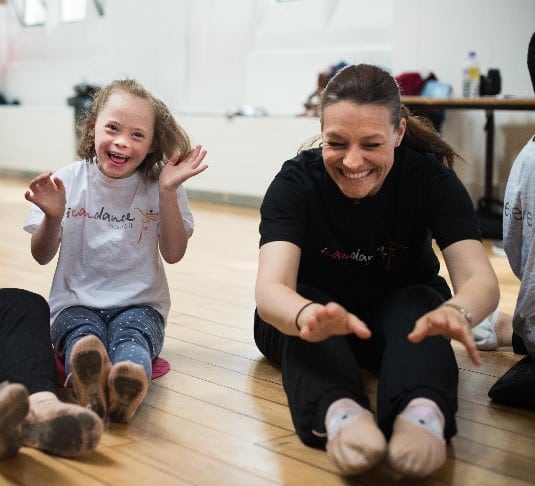
Juliet Diener, Founder of icandance
Juliet Diener, Founder of icandance said “The beauty of dance is that it’s accessible. Anyone can dance! It allows young people to express themselves who perhaps don’t have language to be able to relate, explore relationships, move and create, allowing them to have a voice through movement. That’s the beauty of it.” Since 1991, JLC’s mission has been to transform the lives of children and young people by creating opportunities to learn, grow and develop through education. The focus of the Charity’s funding has been on projects that support all children and young people so that they all have the same opportunities. JLC has supported icandance’s mission since 2011. Juliet continues: “John Lyon’s Charity has been part of icandance’s ecosystem for years. We are true partners in this entire process. What’s really important for me is having a Funder who is walking the journey with icandance as we evolve, change and shape our community. JLC has been instrumental to the growth of icandance through always supporting, valuing and applauding everything we do.” Looking to the future, icandance is hoping to create a young people’s programme where the children and young people become young dance leaders with the end goal to work at icandance and beyond. Believing in the power of dance and its ability to promote wellbeing, John Lyon’s Charity is confident icandance will achieve its goal. John Lyon’s Charity has also undertaken research to understand best practice for working with disabled young people and next steps for the sector from the perspectives of Arts organisations, special schools, funders, music hubs and services. See our Change of Perspectives Report here.
7. MAMA Youth Project: creating opportunities that change life prospects
John Lyon’s Charity is committed to ensuring educational opportunities are accessible for all young people in our Beneficial Area, as well as helping sectors to become representative of the abundance and diversity of young talent in London. With the Charity’s help, many youth clubs throughout the nine boroughs in the Beneficial Area are thriving and delivering high quality, innovative youth work to vast numbers of young people, providing opportunities they may not normally receive.
An example of this is MAMA Youth Project, a youth project that seeks to address the lack of diversity and entrance routes into the media industry by offering real-time media production training and career pathways for young people from underrepresented backgrounds. The core inspiration behind MAMA Youth Project is Founder and CEO, Bob Clarke. Growing up, Bob came from a challenging background where opportunities didn’t always come easy. He had a difficult time in school with several of his teachers telling him he would never make anything of himself. However, despite the lack of support growing up, Bob was given the opportunity to work in media/television as a trainee video tape operator and quickly climbed the ladder to television editor. This experience resulted in Bob running his own independent editing company and starting a television production company shortly after. Bob Clarke says: “I realised what people like me brought to the workplace and that we can do well despite the odds. I started MAMA Youth Project to help working class people from challenging backgrounds start a career in an industry that can change their life prospects”. Recognising the potential of MAMA Youth, in 2009 John Lyon’s Charity funded its first major grant and has since awarded five further grants, totalling £307,000 to date. Through this funding, MAMA Youth has developed crucial partnerships with media giants including Sky (on whose campus it is based), the BBC and Endemol Shine Group, which opens doors and incredible career opportunities for its participants. 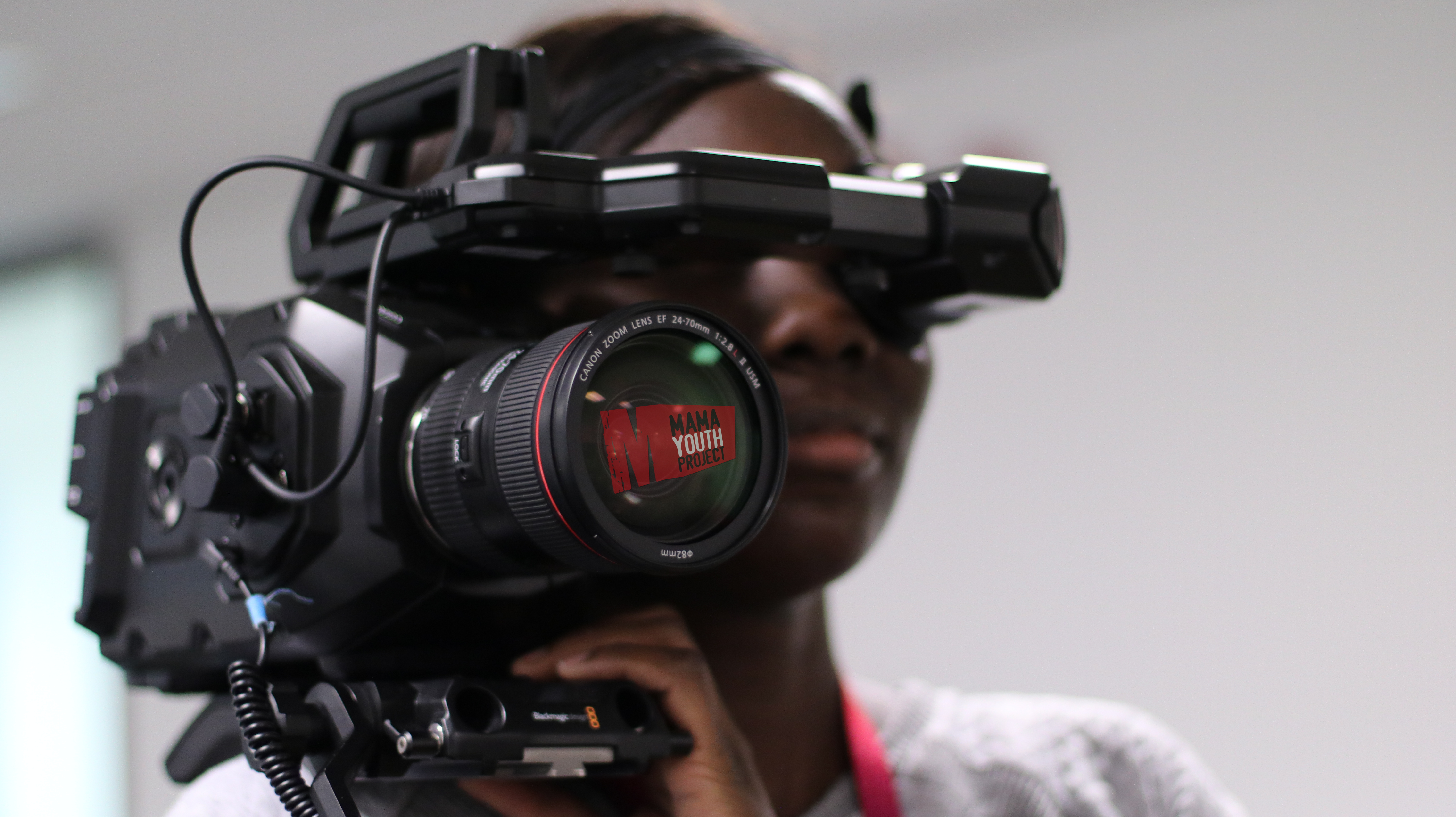 Bob continues “JLC was the first Trust to give a grant to MAMA Youth Project which was in 2009. JLC took time to visit us and observe what I was doing with young people. With the grant that was awarded, came support and advice and it felt like JLC was a partner rather than a grant giver. The grant was for me to pay an administrative person who could work in the office to support me. I was still working nights at Sky Sports, but it meant the office was covered during normal office hours. Having our first member of staff was vital and it allowed us to become more organised and develop the charity. JLC continues to be a great supporter to MAMA Youth Project. The strategy that JLC use for supporting a charity, then having a break to see a charity survive and progress without them and then have the foresight to support a charity with its next stage of growth has worked brilliantly with us. JLC is still the only Trust that fully understands what we are about.” MAMA Youth Project has spent the last ten years training young people from under-represented backgrounds to succeed in the media industry. To date, the charity has changed the lives of over 550 young people who now have a career and a chance of a better life. With the support of this invaluable youth club, MAMA Youth Project’s services have broken negative cycle in families, provided long term life and career support and have offered opportunities that these young people potentially could never have expected. John Lyon’s Charity is incredibly proud to support MAMA Youth Project as it shares the same mission to create opportunities to help transform the lives of children and young people.
Bob continues “JLC was the first Trust to give a grant to MAMA Youth Project which was in 2009. JLC took time to visit us and observe what I was doing with young people. With the grant that was awarded, came support and advice and it felt like JLC was a partner rather than a grant giver. The grant was for me to pay an administrative person who could work in the office to support me. I was still working nights at Sky Sports, but it meant the office was covered during normal office hours. Having our first member of staff was vital and it allowed us to become more organised and develop the charity. JLC continues to be a great supporter to MAMA Youth Project. The strategy that JLC use for supporting a charity, then having a break to see a charity survive and progress without them and then have the foresight to support a charity with its next stage of growth has worked brilliantly with us. JLC is still the only Trust that fully understands what we are about.” MAMA Youth Project has spent the last ten years training young people from under-represented backgrounds to succeed in the media industry. To date, the charity has changed the lives of over 550 young people who now have a career and a chance of a better life. With the support of this invaluable youth club, MAMA Youth Project’s services have broken negative cycle in families, provided long term life and career support and have offered opportunities that these young people potentially could never have expected. John Lyon’s Charity is incredibly proud to support MAMA Youth Project as it shares the same mission to create opportunities to help transform the lives of children and young people. 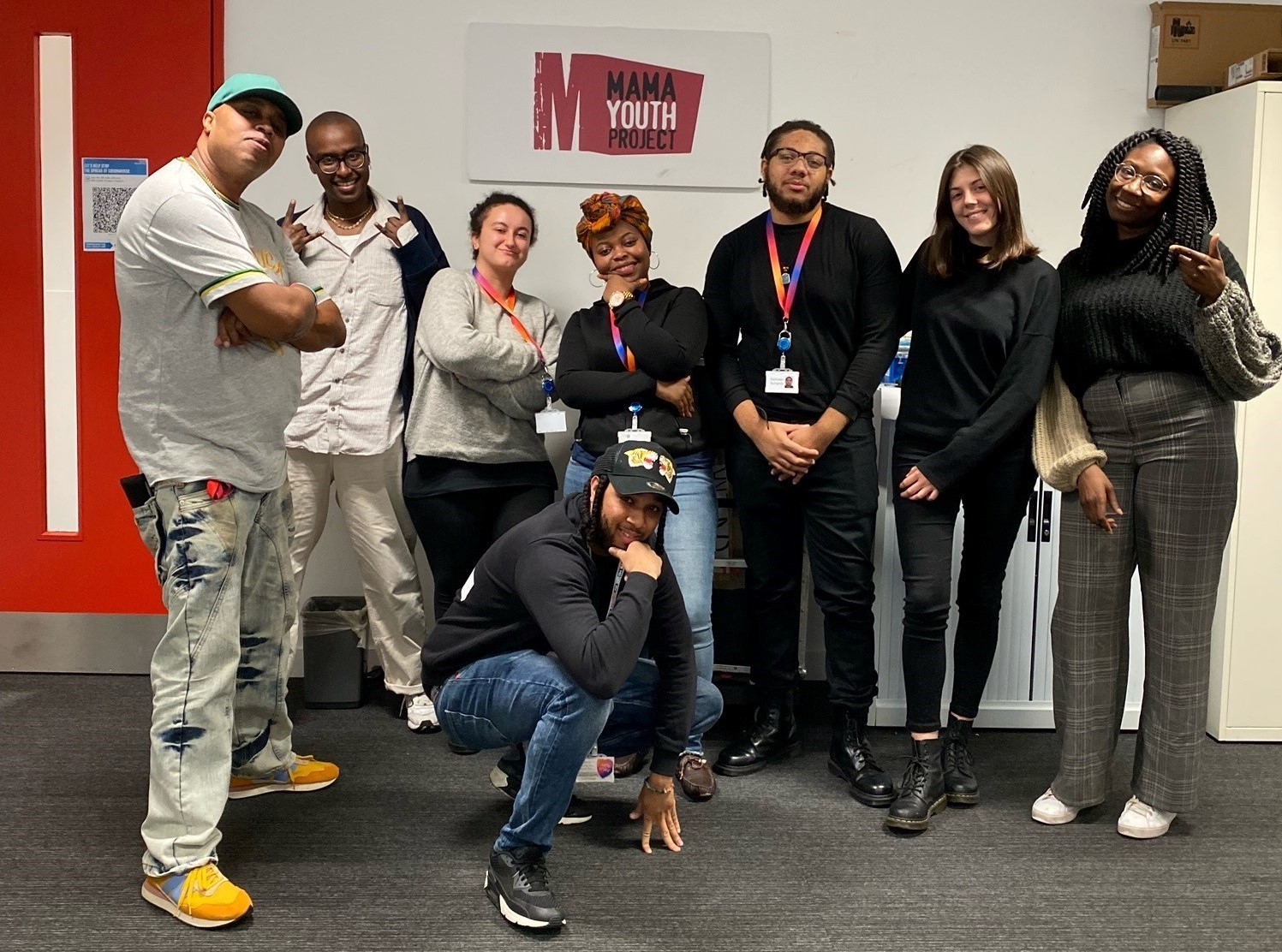
6.Samuel Lithgow Youth Centre – never judge a book by its cover
Since 1992, John Lyon’s Charity has awarded over £21 million to support youth clubs and facilities across its Beneficial Area, providing recreational safe-spaces for young people of all ages to build relationships, learn essential life-skills and, importantly, have fun with their friends. The Charity focused on this area because it is vital that children and young people have access to a safe space or community they can rely on for support, as they may not have this at home or in school.  One youth club we are particularly proud of is Samuel Lithgow Youth Centre (SLYC), based in Camden. Samuel Lithgow Youth Centre was established in 1969 and is located at the heart of the Regent’s Park estate where it serves the whole of the West Euston area. After extensive fundraising (including £70,000 from John Lyon’s Charity), a brand new centre was inaugurated in January 2010.
One youth club we are particularly proud of is Samuel Lithgow Youth Centre (SLYC), based in Camden. Samuel Lithgow Youth Centre was established in 1969 and is located at the heart of the Regent’s Park estate where it serves the whole of the West Euston area. After extensive fundraising (including £70,000 from John Lyon’s Charity), a brand new centre was inaugurated in January 2010. 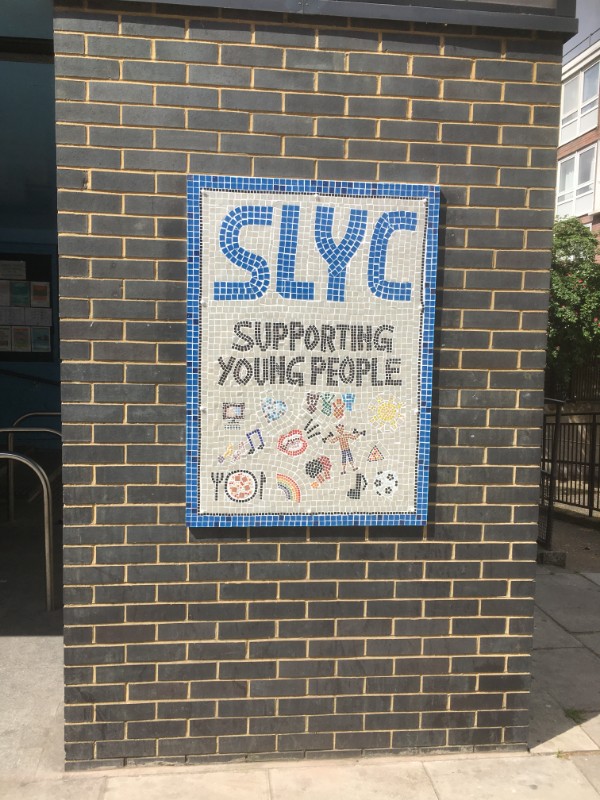 John Lyon ‘s Charity recognised that SLYC was a necessity within the community and that it was imperative for children and young people in Camden to have access to a safe space it just needed financial support to keep its pillars standing. It was at this point we knew we had to help and SLYC was awarded first grant from the Charity in 1994. Since then, the relationship has gone from strength to strength with a total grant spend of over £420,000 toward bringing SLYC back to life. Funding has gone toward centre repairs , a full-time member of staff, sports equipment and anything else vital to keep the youth centre functioning and thriving. Since its refurbishment, Samuel Lithgow Youth Centre has had a profound impact on the Regent’s Park area, one of the most disadvantaged in Camden. The Youth Club is always buzzing with young people attending a variety of activities throughout the day. SLYC has latterly gone on to become the first youth club in London to achieve the London Youth Gold Standard Quality Mark, which is a badge of excellence for youth organisations that are committed to continuous improvement through the involvement of young people in their organisational development. As a result, SLYC is frequently held up as an example of good quality youth work, attracting study visits from across the country. SLYC has consolidated its place as the main hub for youth and community activities in the Euston area and integrated the formerly polarised Bengali and White communities. 1000 young people from the local area benefit from their services seven days a week. Paulo Pires, Centre Manager of Samuel Lithgow Youth Centre says – “Our main services target disadvantaged young people aged 8 – 19 through four different youth projects, but alongside those strands we also offer supporting activities to parents, the unemployed, BAME groups, women, the disabled and senior citizens. If it were not for funding from JLC and their belief in this youth club, then we wouldn’t be where we are today. SLYC has consolidated its place as the major hub for youth and community activities in the West Euston area and has thus consistently contributed to improving the lives of not only young people but also of the wider community. We are very proud of everything we have achieved but it wouldn’t have happened without the support from John Lyon’s Charity”.
John Lyon ‘s Charity recognised that SLYC was a necessity within the community and that it was imperative for children and young people in Camden to have access to a safe space it just needed financial support to keep its pillars standing. It was at this point we knew we had to help and SLYC was awarded first grant from the Charity in 1994. Since then, the relationship has gone from strength to strength with a total grant spend of over £420,000 toward bringing SLYC back to life. Funding has gone toward centre repairs , a full-time member of staff, sports equipment and anything else vital to keep the youth centre functioning and thriving. Since its refurbishment, Samuel Lithgow Youth Centre has had a profound impact on the Regent’s Park area, one of the most disadvantaged in Camden. The Youth Club is always buzzing with young people attending a variety of activities throughout the day. SLYC has latterly gone on to become the first youth club in London to achieve the London Youth Gold Standard Quality Mark, which is a badge of excellence for youth organisations that are committed to continuous improvement through the involvement of young people in their organisational development. As a result, SLYC is frequently held up as an example of good quality youth work, attracting study visits from across the country. SLYC has consolidated its place as the main hub for youth and community activities in the Euston area and integrated the formerly polarised Bengali and White communities. 1000 young people from the local area benefit from their services seven days a week. Paulo Pires, Centre Manager of Samuel Lithgow Youth Centre says – “Our main services target disadvantaged young people aged 8 – 19 through four different youth projects, but alongside those strands we also offer supporting activities to parents, the unemployed, BAME groups, women, the disabled and senior citizens. If it were not for funding from JLC and their belief in this youth club, then we wouldn’t be where we are today. SLYC has consolidated its place as the major hub for youth and community activities in the West Euston area and has thus consistently contributed to improving the lives of not only young people but also of the wider community. We are very proud of everything we have achieved but it wouldn’t have happened without the support from John Lyon’s Charity”. 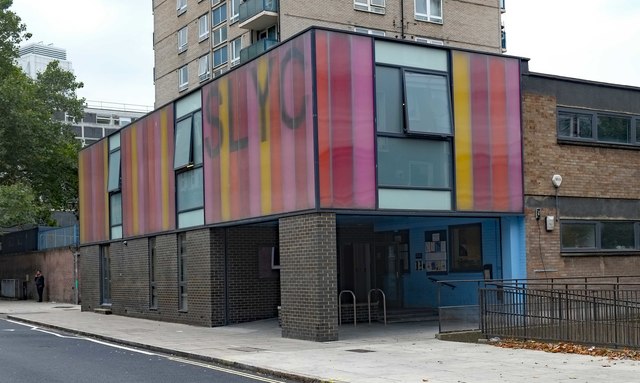 This success story goes to show that you should never judge a book by its cover. Yes, the SLYC was in need of significant repair and refurbishment, but it was the passion of Paulo and the Camden community that kept the building standing and why it still stands today. With the Charity’s help, we are proud that many youth clubs throughout the nine boroughs in the Beneficial Area, including SLYC, are thriving and delivering high quality, innovative youth work to vast numbers of young people. To find out more about John Lyon’s Charity’s Youth Clubs programme, please click here.
This success story goes to show that you should never judge a book by its cover. Yes, the SLYC was in need of significant repair and refurbishment, but it was the passion of Paulo and the Camden community that kept the building standing and why it still stands today. With the Charity’s help, we are proud that many youth clubs throughout the nine boroughs in the Beneficial Area, including SLYC, are thriving and delivering high quality, innovative youth work to vast numbers of young people. To find out more about John Lyon’s Charity’s Youth Clubs programme, please click here.
5. Royal Albert Hall – Making music across the Beneficial Area
For almost two decades, John Lyon’s Charity has had a longstanding relationship with the Royal Albert Hall (RAH) and witnessed success after success through the projects we’ve funded. 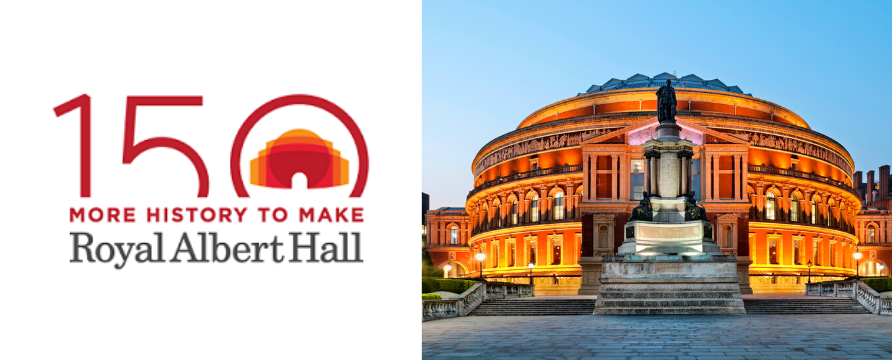 Engagement is central to the Hall’s mission, reaching out to children, teachers, young people, families and community groups and impacting c200,000 people each year. In November 2019, we awarded a very special grant to RAH to enable their flagship 150th anniversary project to take place, with the idea of community at its heart. This project is designed to celebrate the work that RAH’s Engagement programme delivers. It comprises of a major composition project, targeted at young people who have demonstrated a high level of musical ability culminating in a celebratory performance at the Royal Albert Hall on 29th March 2021, the exact date of the Hall’s 150th anniversary. Unfortunately, due to Covid-19 restrictions, the event could not go ahead as scheduled in March, but we are absolutely delighted that this flagship performance is now scheduled to take place on 19 July 2021. Students from six schools across the Tri-Borough have worked alongside David Arnold, the internationally famous, Grammy winning composer (Casino Royale and London Olympics Opening Ceremony) and James Moriarty, an experienced workshop leader, to contribute towards a composition taking ten major events in the history of the RAH as inspiration. A choir made of young people engaged through the Tri-borough Music Hub, plus groups of singers from local secondary schools have been rehearsing with tutors and singers from the National Youth Choirs of Great Britain and professional musicians from RAH’s in-house band, Albert’s Band. In addition, SEND students from schools across the Tri-Borough area will be involved in a series of workshops focussing on the different vocational opportunities within the Arts. Students will be involved with areas such as ticketing, box office, marketing, programme design, event management and front of house. This work is hugely important to the Hall, as they strive to uphold the founding principles of Prince Albert in promoting the arts and sciences and enabling access for everyone. Without our grant they would not be able to be so ambitious with their plans and impact as many people in the local community. It is hoped that following this experience, further learning and work experience opportunities will be developed with these students at RAH. This project provides a hands-on opportunity for young people to gain music-making and compositional skills, working alongside a world-class composer and within an internationally famous venue. This opportunity is not available to them anywhere else and for those who would most benefit from this type of education, this is the opportunity of a lifetime. Coming hot off the heels of an extended period of lockdowns, where cultural engagement for all has been very limited, this really will be an experience not easily forgotten.
Engagement is central to the Hall’s mission, reaching out to children, teachers, young people, families and community groups and impacting c200,000 people each year. In November 2019, we awarded a very special grant to RAH to enable their flagship 150th anniversary project to take place, with the idea of community at its heart. This project is designed to celebrate the work that RAH’s Engagement programme delivers. It comprises of a major composition project, targeted at young people who have demonstrated a high level of musical ability culminating in a celebratory performance at the Royal Albert Hall on 29th March 2021, the exact date of the Hall’s 150th anniversary. Unfortunately, due to Covid-19 restrictions, the event could not go ahead as scheduled in March, but we are absolutely delighted that this flagship performance is now scheduled to take place on 19 July 2021. Students from six schools across the Tri-Borough have worked alongside David Arnold, the internationally famous, Grammy winning composer (Casino Royale and London Olympics Opening Ceremony) and James Moriarty, an experienced workshop leader, to contribute towards a composition taking ten major events in the history of the RAH as inspiration. A choir made of young people engaged through the Tri-borough Music Hub, plus groups of singers from local secondary schools have been rehearsing with tutors and singers from the National Youth Choirs of Great Britain and professional musicians from RAH’s in-house band, Albert’s Band. In addition, SEND students from schools across the Tri-Borough area will be involved in a series of workshops focussing on the different vocational opportunities within the Arts. Students will be involved with areas such as ticketing, box office, marketing, programme design, event management and front of house. This work is hugely important to the Hall, as they strive to uphold the founding principles of Prince Albert in promoting the arts and sciences and enabling access for everyone. Without our grant they would not be able to be so ambitious with their plans and impact as many people in the local community. It is hoped that following this experience, further learning and work experience opportunities will be developed with these students at RAH. This project provides a hands-on opportunity for young people to gain music-making and compositional skills, working alongside a world-class composer and within an internationally famous venue. This opportunity is not available to them anywhere else and for those who would most benefit from this type of education, this is the opportunity of a lifetime. Coming hot off the heels of an extended period of lockdowns, where cultural engagement for all has been very limited, this really will be an experience not easily forgotten. 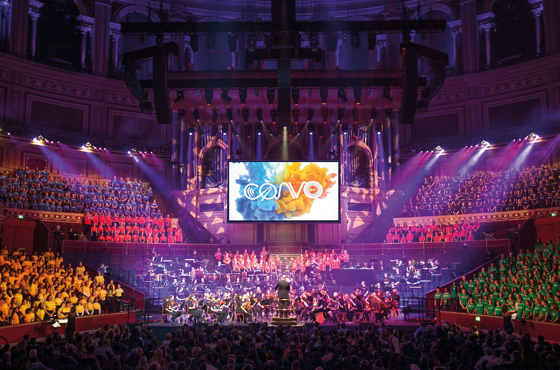 However, this is not the only project we are proud to be a part of. In 2019, John Lyon’s Charity supported an exciting new piece entitled ‘Convo’ by rising London-based composer and Royal College of Music graduate, Charlotte Harding. Thanks to our core funding, this ambitious project saw young musicians from schools across Hammersmith and Fulham, Kensington and Chelsea and Westminster work together on a world premiere which was performed at the Royal Albert Hall. This musical journey was such a success that Charlotte Harding went on to win an Ivor Composers Award for this incredible composition within the ‘Community or Educational Project’ category. Flo Schroeder, Senior Programming and Engagement Manager at the Royal Albert Hall says “Funding from JLC has been fundamental to helping us achieve our mission to reach as many people as possible. JLC’s financial support has enabled us to deliver a wide variety of high quality projects over many years which are designed to have a lasting impact on those involved. We have a responsibility to make a positive impact on our local community, and we want children and young people to be part of the story of the Royal Albert Hall. It is important to us that our anniversary celebrations are inclusive and outward-looking, reflecting our reputation as ‘the Nation’s village hall’. RAH is committed to giving back to our local community and have worked with local borough councils across our Beneficial Area for many years. Our relationship evolved due to our joint mission to help build positive communities. Flo adds “it has been our hope over this time to provide life-enriching opportunities for young people to engage with the Royal Albert Hall when they otherwise not be able to have done. The first scheme that JLC supported back in 2005 was a Young Person’s ticket scheme to encourage new audiences, and our commitment to providing access to the Hall for everyone is still at the heart of what we do. Since then, the partnership has grown and grown”. As an independent charity that receives no recurrent government funding, the Hall relies on the generosity of Seat holders, Friends, Patrons, Trusts and Major Donors to continue changing lives through the power of music and we could not be more thrilled to contribute to this auspicious event. To find out more about the Royal Albert Hall, please click here.
However, this is not the only project we are proud to be a part of. In 2019, John Lyon’s Charity supported an exciting new piece entitled ‘Convo’ by rising London-based composer and Royal College of Music graduate, Charlotte Harding. Thanks to our core funding, this ambitious project saw young musicians from schools across Hammersmith and Fulham, Kensington and Chelsea and Westminster work together on a world premiere which was performed at the Royal Albert Hall. This musical journey was such a success that Charlotte Harding went on to win an Ivor Composers Award for this incredible composition within the ‘Community or Educational Project’ category. Flo Schroeder, Senior Programming and Engagement Manager at the Royal Albert Hall says “Funding from JLC has been fundamental to helping us achieve our mission to reach as many people as possible. JLC’s financial support has enabled us to deliver a wide variety of high quality projects over many years which are designed to have a lasting impact on those involved. We have a responsibility to make a positive impact on our local community, and we want children and young people to be part of the story of the Royal Albert Hall. It is important to us that our anniversary celebrations are inclusive and outward-looking, reflecting our reputation as ‘the Nation’s village hall’. RAH is committed to giving back to our local community and have worked with local borough councils across our Beneficial Area for many years. Our relationship evolved due to our joint mission to help build positive communities. Flo adds “it has been our hope over this time to provide life-enriching opportunities for young people to engage with the Royal Albert Hall when they otherwise not be able to have done. The first scheme that JLC supported back in 2005 was a Young Person’s ticket scheme to encourage new audiences, and our commitment to providing access to the Hall for everyone is still at the heart of what we do. Since then, the partnership has grown and grown”. As an independent charity that receives no recurrent government funding, the Hall relies on the generosity of Seat holders, Friends, Patrons, Trusts and Major Donors to continue changing lives through the power of music and we could not be more thrilled to contribute to this auspicious event. To find out more about the Royal Albert Hall, please click here.
4. Historic Royal Palaces: Bringing community together through culture
The Charity’s Beneficial Area contains an extraordinary number of world class Arts venues and establishments and we work with these institutions to find strategies and develop engagement activities that target schools, young people and their families to help them take an active role in these Arts venues that are on their doorstep. We have seen first-hand the positive impact art and culture has on children and young people and our next Throwback Thirty celebrates the importance of these types of institutions. 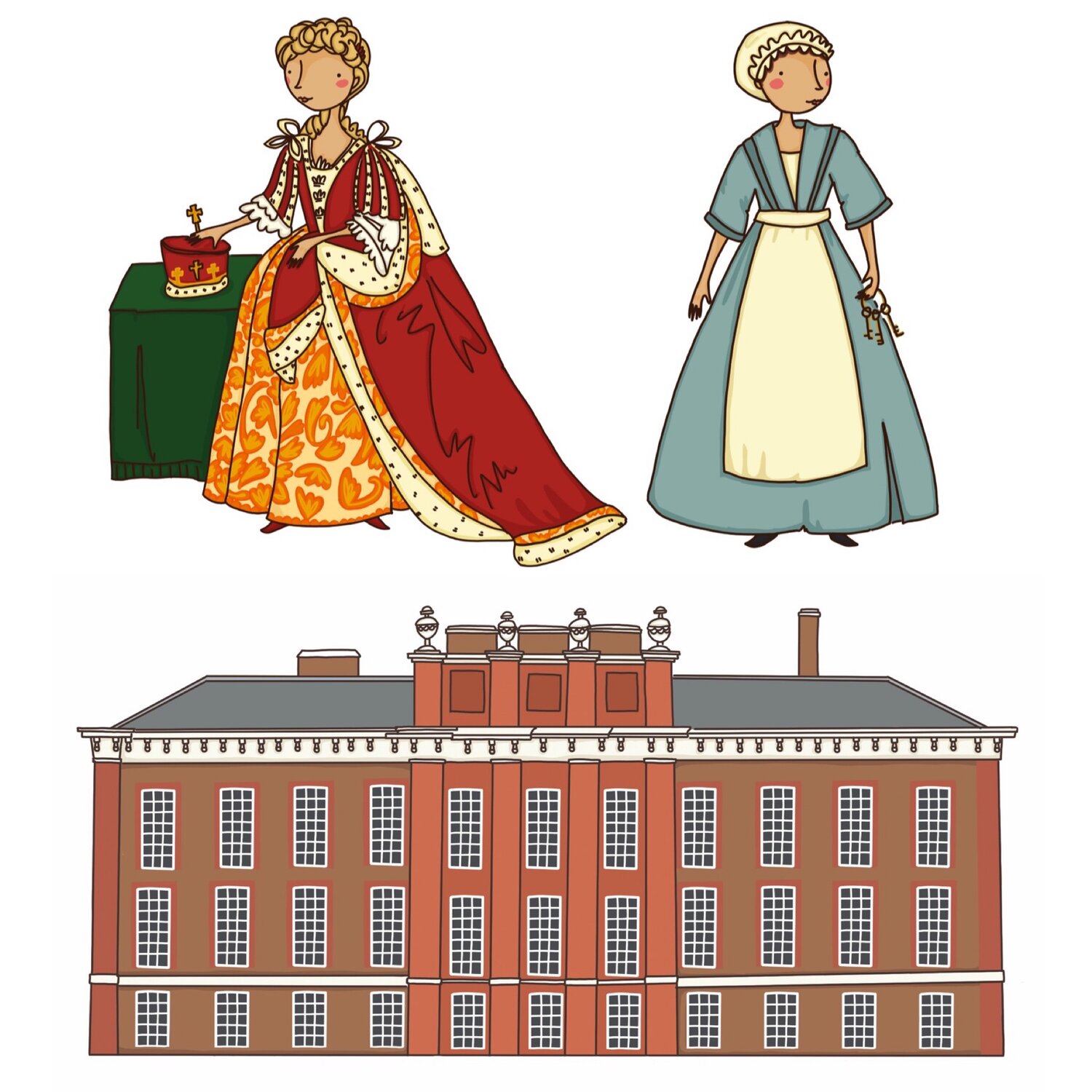 Back in 2009 we were contacted by the team at Historic Royal Palaces (HRP), when they were planning their first schools service to operate from Kensington Palace. Their ambition was to create a programme that would reach schools that don’t always take advantage of the great cultural offer on their doorsteps in the borough of Kensington. Taking our usual approach of working alongside organisations to create the best applications, we had a wide-ranging conversation about HRP’s education and outreach programmes. It was immediately made clear that HRP’s ethos, methodology and approach to wider learning could be extremely beneficial to the children and young people in the Charity’s Beneficial Area. This was the beginning of a relationship that was to see John Lyon’s Charity, and the funding that Kensington Palace secured from us, play a vital role in the shape and direction of their future learning and education programmes. In 2010-12, HRP embarked on an ambitious re-presentation of Kensington Palace. Prior to this project Kensington Palace struggled to attract many visitors and very few school, community or family groups visited. As part of the re-presentation project an organisational objective was to grow HRP’s school, community and family audiences within the neighbouring Kensington area.
Back in 2009 we were contacted by the team at Historic Royal Palaces (HRP), when they were planning their first schools service to operate from Kensington Palace. Their ambition was to create a programme that would reach schools that don’t always take advantage of the great cultural offer on their doorsteps in the borough of Kensington. Taking our usual approach of working alongside organisations to create the best applications, we had a wide-ranging conversation about HRP’s education and outreach programmes. It was immediately made clear that HRP’s ethos, methodology and approach to wider learning could be extremely beneficial to the children and young people in the Charity’s Beneficial Area. This was the beginning of a relationship that was to see John Lyon’s Charity, and the funding that Kensington Palace secured from us, play a vital role in the shape and direction of their future learning and education programmes. In 2010-12, HRP embarked on an ambitious re-presentation of Kensington Palace. Prior to this project Kensington Palace struggled to attract many visitors and very few school, community or family groups visited. As part of the re-presentation project an organisational objective was to grow HRP’s school, community and family audiences within the neighbouring Kensington area.
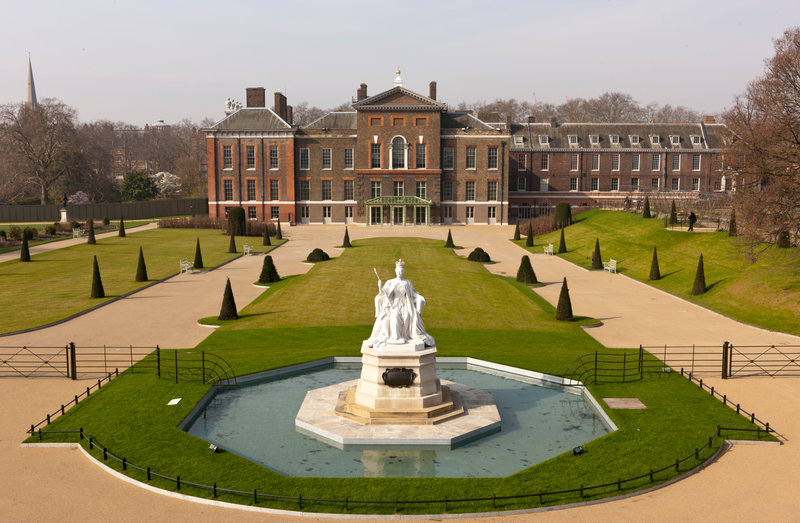
Kensington Palace,Robin Forster,The East Front. The statue of Queen Victoria, by her daughter Princess Louise, was installed here in 1893
Using the hugely popular and well-established Palace Explorers programme delivered at the Tower of London and Hampton Court Palace , in 2010 John Lyon’s Charity awarded HRP a grant of £25,000 per annum for three years to establish Palace Explorers at Kensington Palace with a remit to target schools in Kensington & Chelsea. During the project, many approaches and techniques were trialled to engage children in the history of the Palace such as story building and storytelling, art and design, role-play and drama and object handling. The sessions happened both onsite at the Palace as well as in schools themselves and were supported by a range of digital and print resources. This ensured that relationships with schools, communities and individual families became established. The resources produced were distributed widely via local and national partners ensuring many more schools and families benefitted from the projects. Crucially, the project culmination was to be scheduled on a Saturday to encourage children to return to the Palace with their families and act as a guide. Encouraging family participation at events after in-school learning activities have taken place is incredibly difficult to achieve and in the Charity’s experience funding provided for past projects in different institutions that sought to achieve this had seen limited success. Over the three years, over 1,000 children participated in the Palace Explorers project, and around half of those children returned to the Palace at some stage with their families, an incredible achievement. In 2013, studies revealed that the UK was falling behind international rankings in literacy and one in six people in the UK had a literacy level below that expected of an 11 year old. In recent years, there has been an increase in the numbers of children beginning primary school with difficulties in spoken English, partly because of an increase in the numbers of children speaking English as an additional language. In 2014, the then new National Curriculum for primary schools in England, introduced higher educational expectations and placed increased emphasis on the mechanics of literacy: phonics, spelling and grammar. In this context, Historic Royal Palaces conceived the Curious Stories project again with the support and funding from John Lyon’s Charity. The project focussed on working with schools and communities in the north of the borough where more low-income families are located and where over 150 different languages are spoken. For many teachers, the time they were now having to dedicate to these technical areas was at the expense of time spent inspiring children around reading, writing, speaking and listening and encouraging a love of stories and the language needed to tell them. The overall aim of Curious Stories was to support the development of social and verbal communication skills amongst young children (aged 4-7) and their parents and carers. For children, the project aimed to generate excitement and curiosity through stories, to inspire imagination and to build confidence. For parents, the project sought to raise awareness of the importance of communication with their children and to build confidence and skills in this area so that they could support their child’s learning. Alison Lightbown, Head of Schools and Communities at Historic Royal Palaces said: “We were delighted that JLC could enable HRP to get the education programme off the ground with a distinctive and new initiative, which became known as Palace Explorers. With the expertise we developed in using Kensington Palace as a resource for literacy, Curious Stories was a logical next step for us, and we were thrilled that JLC wanted to continue their support for our programme and to reach more young people. The children who took part in Curious Stories showed better oral story telling than children in control groups. Their written stories also contained more descriptive elements. Parents and teachers were very positive about the effects of the programme and the opportunities for linking historical knowledge to language development through oral storytelling. The success of the Palace Explorer and Curious Stories projects positively influenced organisational attitudes towards school, community and family audiences within the Kensington area. As a result, much greater emphasis has been placed on children as a key audience, leading to the development and delivery of a regular family programme of art, design, storytelling, trails and digital missions at Kensington Palace. We reviewed the schools programme and introduced new literacy sessions and content. In 2019 we opened Victoria: A Royal Childhood, for the first time family and school groups were considered a priority audience and this shaped the content and design of the exhibition”. Alison adds “We know that access to arts, culture and heritage can have a positive impact on health, well-being, educational attainment and builds cultural capital. Funding from organisations such as JLC is vital to enable all children to have access to a rich cultural and creative education and to grow-up as both confident consumers of and contributors to arts, culture and heritage”. In the last thirty years we have fought hard to protect the Arts sector and will continue to do so for the foreseeable. We would like to take this moment to remind our groups of the Cultural Capital Fund available to schools and Arts organisations, which is designed to ensure that access to high quality Arts activities, delivered by the best Arts practitioners, are accessible to all children across the Beneficial Area.
3. The power of community in times of crisis
Looking back over thirty years, there is much to celebrate. However, thinking about the events of 2020 we can’t forget what happened in the summer of 2017 following the tragic events at Grenfell Tower and the synergy in our approach to responding in a crisis. 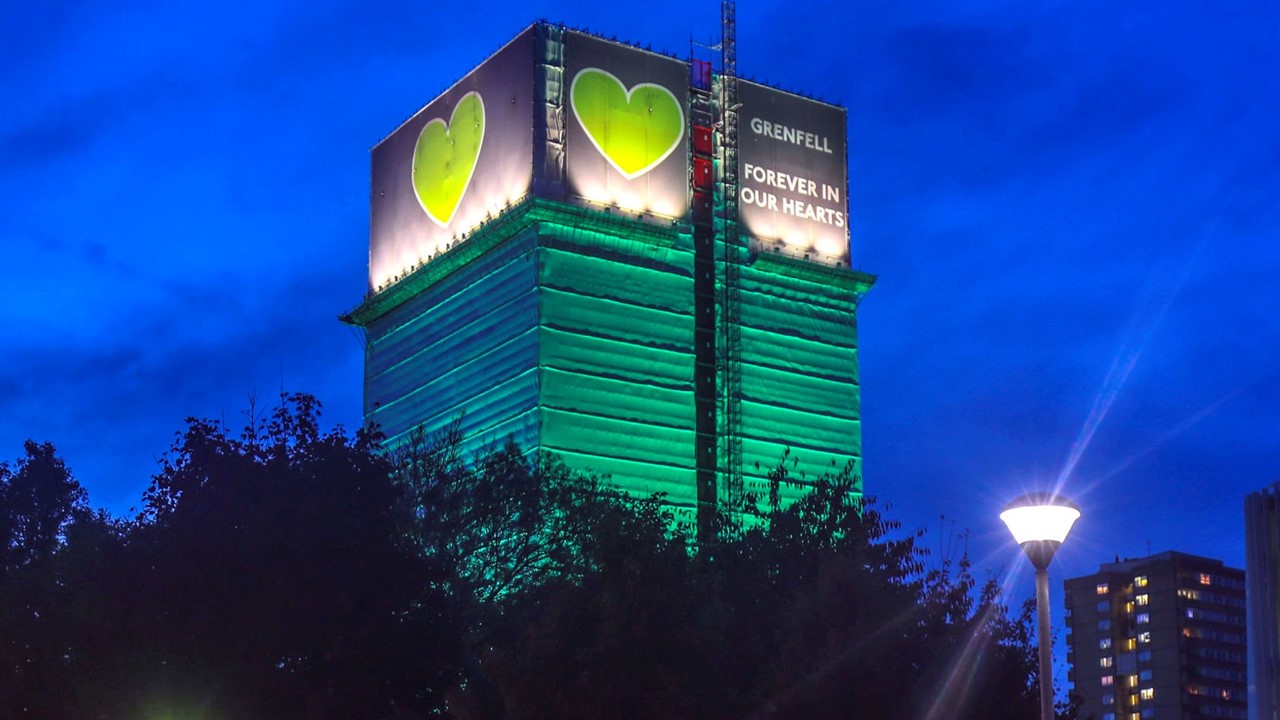 The fire which destroyed Grenfell Tower sent shockwaves across London and the world. This residential tower block in North Kensington is based within the heart of our Beneficial Area. We knew of many of the people and communities that live there through the groups that we fund and quickly decided to do all we could to help members of this much-loved community. Traditionally, Kensington & Chelsea as a local authority area is often overlooked for funding and support from outside agencies. Parts of the borough are the most affluent in the country, if not in Europe. However, in pockets, such as North Kensington, levels of deprivation and need are incredibly high. In the first days and weeks following the fire, we worked closely with other funding organisations and London Funders to create an emergency response strategy to support the communities living in the area that had been affected. John Lyon’s Charity was able to use its experience and knowledge of the area to help others navigate the complex landscape and galvanise this support to help direct funding to organisations on the ground, supporting those who needed it the most.
The fire which destroyed Grenfell Tower sent shockwaves across London and the world. This residential tower block in North Kensington is based within the heart of our Beneficial Area. We knew of many of the people and communities that live there through the groups that we fund and quickly decided to do all we could to help members of this much-loved community. Traditionally, Kensington & Chelsea as a local authority area is often overlooked for funding and support from outside agencies. Parts of the borough are the most affluent in the country, if not in Europe. However, in pockets, such as North Kensington, levels of deprivation and need are incredibly high. In the first days and weeks following the fire, we worked closely with other funding organisations and London Funders to create an emergency response strategy to support the communities living in the area that had been affected. John Lyon’s Charity was able to use its experience and knowledge of the area to help others navigate the complex landscape and galvanise this support to help direct funding to organisations on the ground, supporting those who needed it the most.  What was striking about this approach was that out of the embers came strength and community. Funders stepped outside their normal practices through raising additional funds, collaborative delivery, changing the application process to a far simpler format to ensure quicker release of funds and swift, efficient decision-making. It was incredibly powerful to witness how local organisations came together to support each other with funding applications, ideas for projects and sharing resources. London Funders provided a platform for mobilising the emergency response by setting up a Community Core Costs Fund. This Fund aimed to get money out quickly to some of the frontline and grassroots organisations who had responded to the fire or who were meeting wider community needs. The funding for this programme was provided by the Department of Community and Local Government and The Tudor Trust. Over £1.1m was distributed during July to 100 local community groups, faith groups, schools and residents associations for the extra equipment, spaces, food, supplies or staff needed to support local communities for 3-6 months. JLC’s emergency response to support London Funders was to put out a specific call for action by organising a formal meeting of funders. Alongside local partners, we coordinated a Children and Young People Funder Coalition to help organisations working with children and young people affected by the fire at Grenfell Tower to access funding. Using our contacts and local reputation, the Grants Team headed into North Kensington to hold four whole-day, one-to-one drop-in surgeries for community groups to discuss funding needs and ran one large scale feedback workshop that had approximately 85 representatives from community groups. This happened within ten days of the fire. The Children and Young People’s Coalition Funding was for local organisations working with children, young people and families affected by the Grenfell Tower Fire. The funding for this programme was provided by a range of funders including the Big Lottery Fund, The Tudor Trust, BBC Children in Need, City Bridge Trust, Royal Borough of Kensington and Chelsea, Kensington & Chelsea Foundation and the Department for Education. The Coalition ran two phases of funding. Phase one saw funders provide grants of £1.07m to 61 organisations to deliver services and projects for children and young people in the summer holiday period. These ranged from day trips to the running of free activities. Phase two saw organisations apply for longer-term funding for projects delivered over the following year. These were divided into three priority areas: out of school activities; children’s emotional wellbeing; and family work. A further £1.2m was provided to 53 organisations in phase two. To simplify the funding process, we created a single application form to ensure funds were distributed quickly and efficiently. These could then be viewed by all the funders on an online portal, created by London Funders, to make offers of grants. The models and methods used to respond to these emergencies demonstrated that it is possible to get down to the bare bones of what each funder needs in order to participate. We felt touched and honoured that we were trusted to lead by example and use our many years of experience to triage the applications using our local knowledge and expertise to ensure the application process was executed as quickly and efficiently as possible. Here is a what a few of the organisations supported by the Grenfell Emergency Response Fund had to say:
What was striking about this approach was that out of the embers came strength and community. Funders stepped outside their normal practices through raising additional funds, collaborative delivery, changing the application process to a far simpler format to ensure quicker release of funds and swift, efficient decision-making. It was incredibly powerful to witness how local organisations came together to support each other with funding applications, ideas for projects and sharing resources. London Funders provided a platform for mobilising the emergency response by setting up a Community Core Costs Fund. This Fund aimed to get money out quickly to some of the frontline and grassroots organisations who had responded to the fire or who were meeting wider community needs. The funding for this programme was provided by the Department of Community and Local Government and The Tudor Trust. Over £1.1m was distributed during July to 100 local community groups, faith groups, schools and residents associations for the extra equipment, spaces, food, supplies or staff needed to support local communities for 3-6 months. JLC’s emergency response to support London Funders was to put out a specific call for action by organising a formal meeting of funders. Alongside local partners, we coordinated a Children and Young People Funder Coalition to help organisations working with children and young people affected by the fire at Grenfell Tower to access funding. Using our contacts and local reputation, the Grants Team headed into North Kensington to hold four whole-day, one-to-one drop-in surgeries for community groups to discuss funding needs and ran one large scale feedback workshop that had approximately 85 representatives from community groups. This happened within ten days of the fire. The Children and Young People’s Coalition Funding was for local organisations working with children, young people and families affected by the Grenfell Tower Fire. The funding for this programme was provided by a range of funders including the Big Lottery Fund, The Tudor Trust, BBC Children in Need, City Bridge Trust, Royal Borough of Kensington and Chelsea, Kensington & Chelsea Foundation and the Department for Education. The Coalition ran two phases of funding. Phase one saw funders provide grants of £1.07m to 61 organisations to deliver services and projects for children and young people in the summer holiday period. These ranged from day trips to the running of free activities. Phase two saw organisations apply for longer-term funding for projects delivered over the following year. These were divided into three priority areas: out of school activities; children’s emotional wellbeing; and family work. A further £1.2m was provided to 53 organisations in phase two. To simplify the funding process, we created a single application form to ensure funds were distributed quickly and efficiently. These could then be viewed by all the funders on an online portal, created by London Funders, to make offers of grants. The models and methods used to respond to these emergencies demonstrated that it is possible to get down to the bare bones of what each funder needs in order to participate. We felt touched and honoured that we were trusted to lead by example and use our many years of experience to triage the applications using our local knowledge and expertise to ensure the application process was executed as quickly and efficiently as possible. Here is a what a few of the organisations supported by the Grenfell Emergency Response Fund had to say: 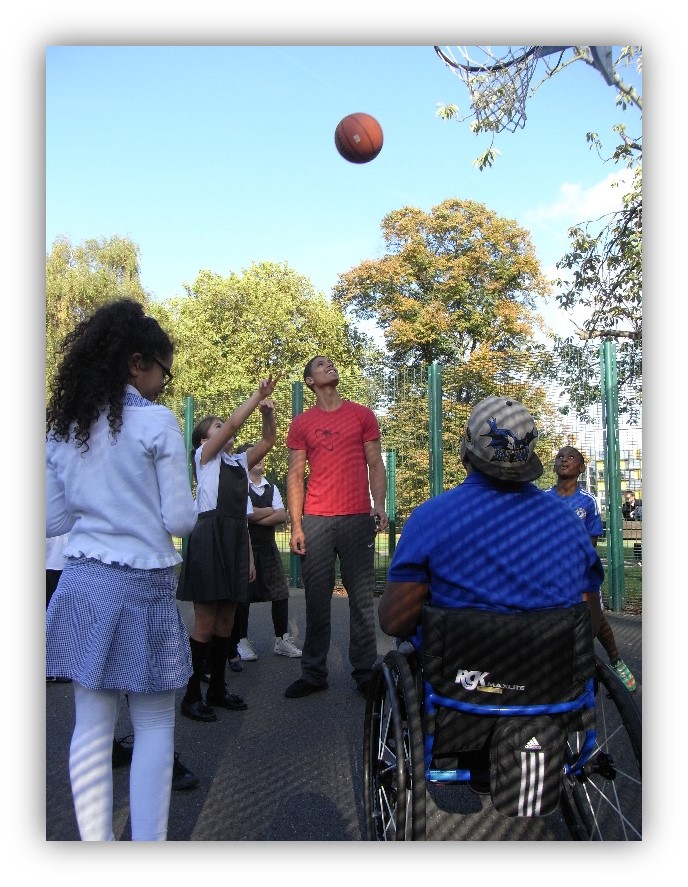 “Thanks to funding from John Lyon’s Charity via the Grenfell Response Fund we were able to provide a range of activities for families affected by the Grenfell Tragedy. The families came together with their children in a safe and friendly environment to share positive experiences, which helped the children gain confidence, make new friends and take the first steps to rebuilding their lives.” – Ulick Tarabanov, FRSA, Founder & CEO, London Sports Trust
“Thanks to funding from John Lyon’s Charity via the Grenfell Response Fund we were able to provide a range of activities for families affected by the Grenfell Tragedy. The families came together with their children in a safe and friendly environment to share positive experiences, which helped the children gain confidence, make new friends and take the first steps to rebuilding their lives.” – Ulick Tarabanov, FRSA, Founder & CEO, London Sports Trust 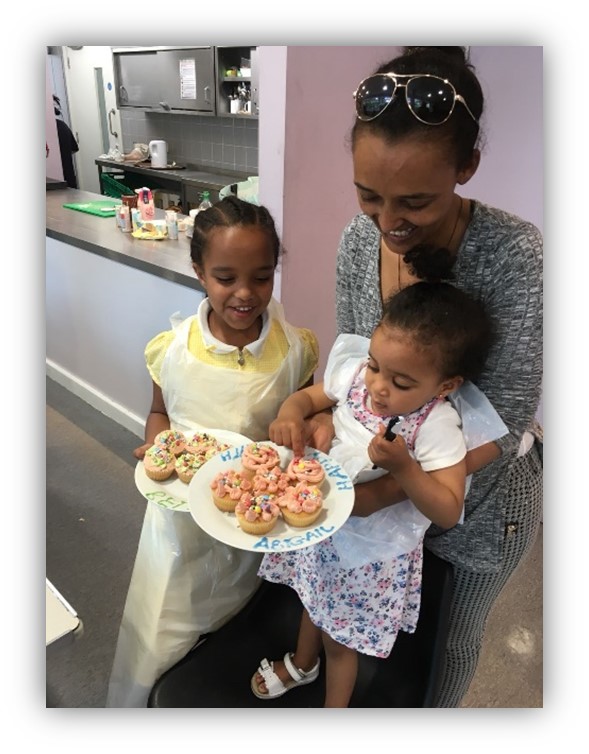 “In the aftermath of the Grenfell Tower tragedy, we were among many local voluntary organisations who stood up to help support the community during an incredibly difficult and shocking time. As we are a very small organisation with a limited reserve, we would not have been able to support the community without being awarded an emergency grant. This grant helped us to continue supporting the bereaved community as well as recruit more staff and volunteers to help. We could not have reached as many people without this emergency response funding for the Grenfell Tower funded by John Lyon’s Charity”. – Kamal Mohamed, Chairman of Westpoint Sustainable Community Development “On the night of the Fire at Grenfell Tower, QPR Community Trust lost two participants who had participated in our Girls programme and Kicks programme. What was really important to us as the local football club was to support that community to recover in the days after the fire and the months and years ahead. It was important for us to play a supporting role and facilitate the needs of the community who needed organisations & people they could trust and react quickly to their needs. Without the support of the John Lyon’s Charity we would not have been able to provide activities and dedicated staff to facilitate the needs of the community at a time when they needed it most.” – Andy Evan, CEO of QPR Four years on, the ramifications of Grenfell Tower continue to be felt throughout the area and will continue to do so for many years to come. As we begin to focus on the recovery process of the pandemic, it is hard not to draw significant parallels between Grenfell and the emergency response in the days and weeks that followed. It was admirable how quickly London Funder members stepped up in a time of crisis to unite with one core purpose – to ensure the survival of the Kensington community. This was the first time public and private funders in London had got together to make a real difference to its community in a time of need and it was ultimately this process that was the catalyst in thinking that led to the London Community Response in 2020. Without this joint funding approach, we may not have had the same crisis response experience and expertise to face the present pandemic and unite once again with such speed to ensure our London community is protected.
“In the aftermath of the Grenfell Tower tragedy, we were among many local voluntary organisations who stood up to help support the community during an incredibly difficult and shocking time. As we are a very small organisation with a limited reserve, we would not have been able to support the community without being awarded an emergency grant. This grant helped us to continue supporting the bereaved community as well as recruit more staff and volunteers to help. We could not have reached as many people without this emergency response funding for the Grenfell Tower funded by John Lyon’s Charity”. – Kamal Mohamed, Chairman of Westpoint Sustainable Community Development “On the night of the Fire at Grenfell Tower, QPR Community Trust lost two participants who had participated in our Girls programme and Kicks programme. What was really important to us as the local football club was to support that community to recover in the days after the fire and the months and years ahead. It was important for us to play a supporting role and facilitate the needs of the community who needed organisations & people they could trust and react quickly to their needs. Without the support of the John Lyon’s Charity we would not have been able to provide activities and dedicated staff to facilitate the needs of the community at a time when they needed it most.” – Andy Evan, CEO of QPR Four years on, the ramifications of Grenfell Tower continue to be felt throughout the area and will continue to do so for many years to come. As we begin to focus on the recovery process of the pandemic, it is hard not to draw significant parallels between Grenfell and the emergency response in the days and weeks that followed. It was admirable how quickly London Funder members stepped up in a time of crisis to unite with one core purpose – to ensure the survival of the Kensington community. This was the first time public and private funders in London had got together to make a real difference to its community in a time of need and it was ultimately this process that was the catalyst in thinking that led to the London Community Response in 2020. Without this joint funding approach, we may not have had the same crisis response experience and expertise to face the present pandemic and unite once again with such speed to ensure our London community is protected. 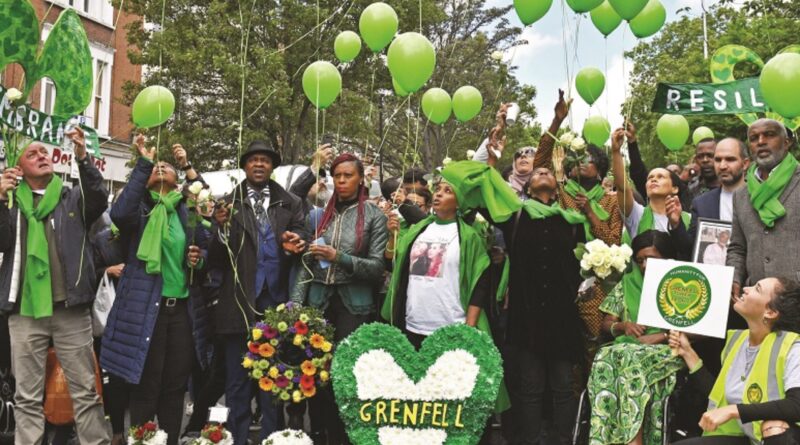
2. Perivale Primary School & The FGM Project: Getting people talking and tackling difficult topics
Over thirty years, we have prided ourselves on brokering partnerships between the voluntary sector and schools to help support the discussion of difficult topics with children and young people. As much as it is easier to shy away from conversations that may make people feel uncomfortable, these conversations are incredibly important to raise awareness around sensitive issues and get not only young people talking, but the adults around them too. We have carefully worked with schools and organisations to ensure that the partnerships formed, result in open, sensitive and safe discussions with education at the heart of each conversation. Education plays a vital role in helping children, young people and the support networks around them understand and tackle sensitive topics. Often the most important subjects are the most difficult to talk about – not least when it comes to Female Genital Mutilation (FGM). 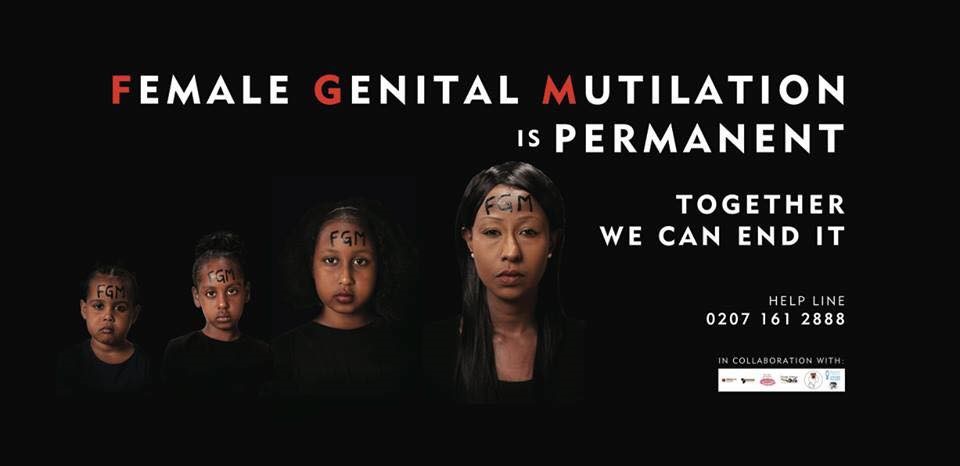 FGM is practiced on girls and young women under 18 and is not prescribed by any religion nor has any health benefits. On the contrary, the practice can cause life-lasting physical and psychological trauma. At present, 200 million girls and women alive have undergone FGM with current rates showing an additional estimated 68 million girls who face being cut by 2030. We recognised from day one that change is more often effective when driven by communities themselves. Understanding that prevention works most successfully when community and statutory bodies work together, in 2017 Perivale Primary School and the Health Improvement Team at Ealing Council approached JLC with their pioneering community-led approach to tackling FGM, which we could not ignore. It was known that Ealing was a higher potential risk of FGM due to the diversity of these areas. According to estimates by City University, back in 2017 in England there were 137,000 girls and women living with FGM and 144,000 girls at risk of it.
FGM is practiced on girls and young women under 18 and is not prescribed by any religion nor has any health benefits. On the contrary, the practice can cause life-lasting physical and psychological trauma. At present, 200 million girls and women alive have undergone FGM with current rates showing an additional estimated 68 million girls who face being cut by 2030. We recognised from day one that change is more often effective when driven by communities themselves. Understanding that prevention works most successfully when community and statutory bodies work together, in 2017 Perivale Primary School and the Health Improvement Team at Ealing Council approached JLC with their pioneering community-led approach to tackling FGM, which we could not ignore. It was known that Ealing was a higher potential risk of FGM due to the diversity of these areas. According to estimates by City University, back in 2017 in England there were 137,000 girls and women living with FGM and 144,000 girls at risk of it. 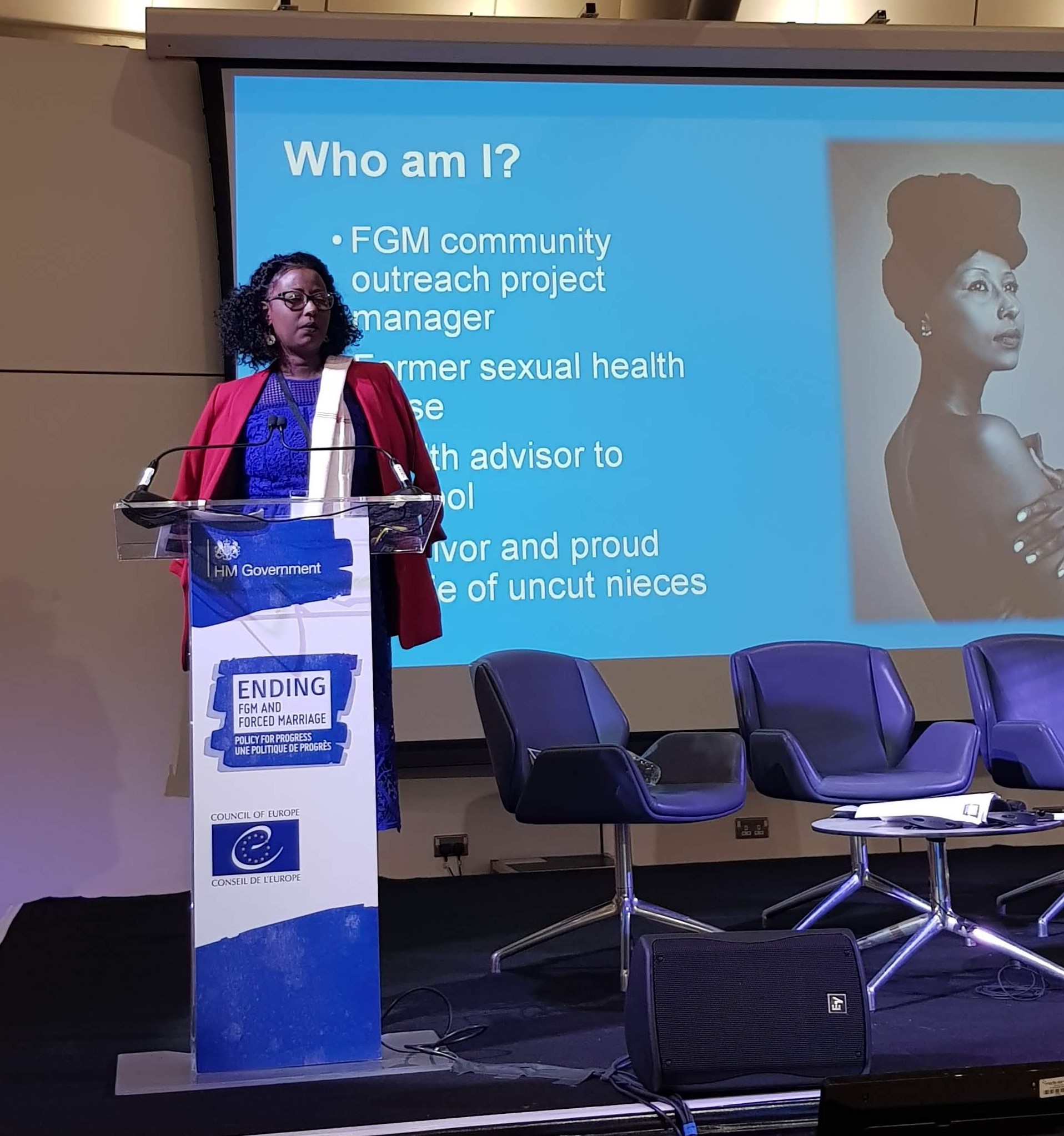 Led by Hoda Ali, a survivor, qualified nurse and national campaigner against FGM, this initiative offered a culturally sensitive approach to tackling FGM by educating primary school pupils (Years 3-6), school staff, parents and the wider community around the realities of the practice. Pupil lessons in schools cover themes from safeguarding and online safety, to relationships and good and bad touch. Workshops delivered for parents and the local community support the understanding of lessons, alleviate concerns and promote their own awareness of the implications of FGM for their children. Alongside this, school staff are upskilled to deliver sessions in school to ensure the legacy of the project. This is done in a variety of ways, including workshops, shadowing modelled lessons and regular school forum meetings. Making FGM illegal on its own has not worked. In teaching primary school pupils, educators and communities about FGM, this initiative empowers the next generation and their support networks to be heard, seek help where it is needed and ultimately end FGM. This partnership of community and statutory bodies has created a powerful model for change that will save lives, with the Charity’s funding enabling this pilot to come to fruition in the present, so that it can create long-term attitudinal change. The initiative has now received approaches by schools across the UK as it gains momentum and FGM awareness has since been added to the secondary school curriculum from 2020. Hoda Ali, Community Outreach Project Manager for Safeguarding, Perivale Primary School says “we are now coming towards the end of our fourth year of funding from John Lyon’s Charity. The funding we have received so far has enabled us to raise awareness of Female Genital Mutilation in over 20 schools in our borough. We have worked with nearly 1,000 parents, thousands of pupils and over 500 members of staff to increase awareness, knowledge and understanding of FGM. Without JLC’s funding, we would not have been able raise awareness and knowledge of FGM, which could have been detrimental to the safety and wellbeing of young girls and women in our borough. Thank you on behalf of over 200 million women and girls who are survivors of FGM. Thank you.” Deputy Headteacher of Perivale Primary School, Naomi Dowd adds “I have been in awe of the dedication and passion of Hoda and the team to this project and the amazing impact it has had for schools and their communities. Without the support of John Lyon’s Charity this would not have been possible”. We have always said that it is our mission to protect the life-chances of children and young people and we are very proud to support such an important initiative in schools in Ealing. We hope to see these difficult conversations taking place for the foreseeable across the Beneficial Area and in turn creating change permanently. To find out more information about Perivale Primary School’s community led approach to ending FGM, please click here.
Led by Hoda Ali, a survivor, qualified nurse and national campaigner against FGM, this initiative offered a culturally sensitive approach to tackling FGM by educating primary school pupils (Years 3-6), school staff, parents and the wider community around the realities of the practice. Pupil lessons in schools cover themes from safeguarding and online safety, to relationships and good and bad touch. Workshops delivered for parents and the local community support the understanding of lessons, alleviate concerns and promote their own awareness of the implications of FGM for their children. Alongside this, school staff are upskilled to deliver sessions in school to ensure the legacy of the project. This is done in a variety of ways, including workshops, shadowing modelled lessons and regular school forum meetings. Making FGM illegal on its own has not worked. In teaching primary school pupils, educators and communities about FGM, this initiative empowers the next generation and their support networks to be heard, seek help where it is needed and ultimately end FGM. This partnership of community and statutory bodies has created a powerful model for change that will save lives, with the Charity’s funding enabling this pilot to come to fruition in the present, so that it can create long-term attitudinal change. The initiative has now received approaches by schools across the UK as it gains momentum and FGM awareness has since been added to the secondary school curriculum from 2020. Hoda Ali, Community Outreach Project Manager for Safeguarding, Perivale Primary School says “we are now coming towards the end of our fourth year of funding from John Lyon’s Charity. The funding we have received so far has enabled us to raise awareness of Female Genital Mutilation in over 20 schools in our borough. We have worked with nearly 1,000 parents, thousands of pupils and over 500 members of staff to increase awareness, knowledge and understanding of FGM. Without JLC’s funding, we would not have been able raise awareness and knowledge of FGM, which could have been detrimental to the safety and wellbeing of young girls and women in our borough. Thank you on behalf of over 200 million women and girls who are survivors of FGM. Thank you.” Deputy Headteacher of Perivale Primary School, Naomi Dowd adds “I have been in awe of the dedication and passion of Hoda and the team to this project and the amazing impact it has had for schools and their communities. Without the support of John Lyon’s Charity this would not have been possible”. We have always said that it is our mission to protect the life-chances of children and young people and we are very proud to support such an important initiative in schools in Ealing. We hope to see these difficult conversations taking place for the foreseeable across the Beneficial Area and in turn creating change permanently. To find out more information about Perivale Primary School’s community led approach to ending FGM, please click here.
1. English National Ballet’s ‘Dance Journeys’ – From Young People to Young Professionals
We’ll begin with our support of English National Ballet’s (ENB) ‘Dance Journeys’ that was supported by the Charity with grants totalling £197,600 from 2013 to 2019. 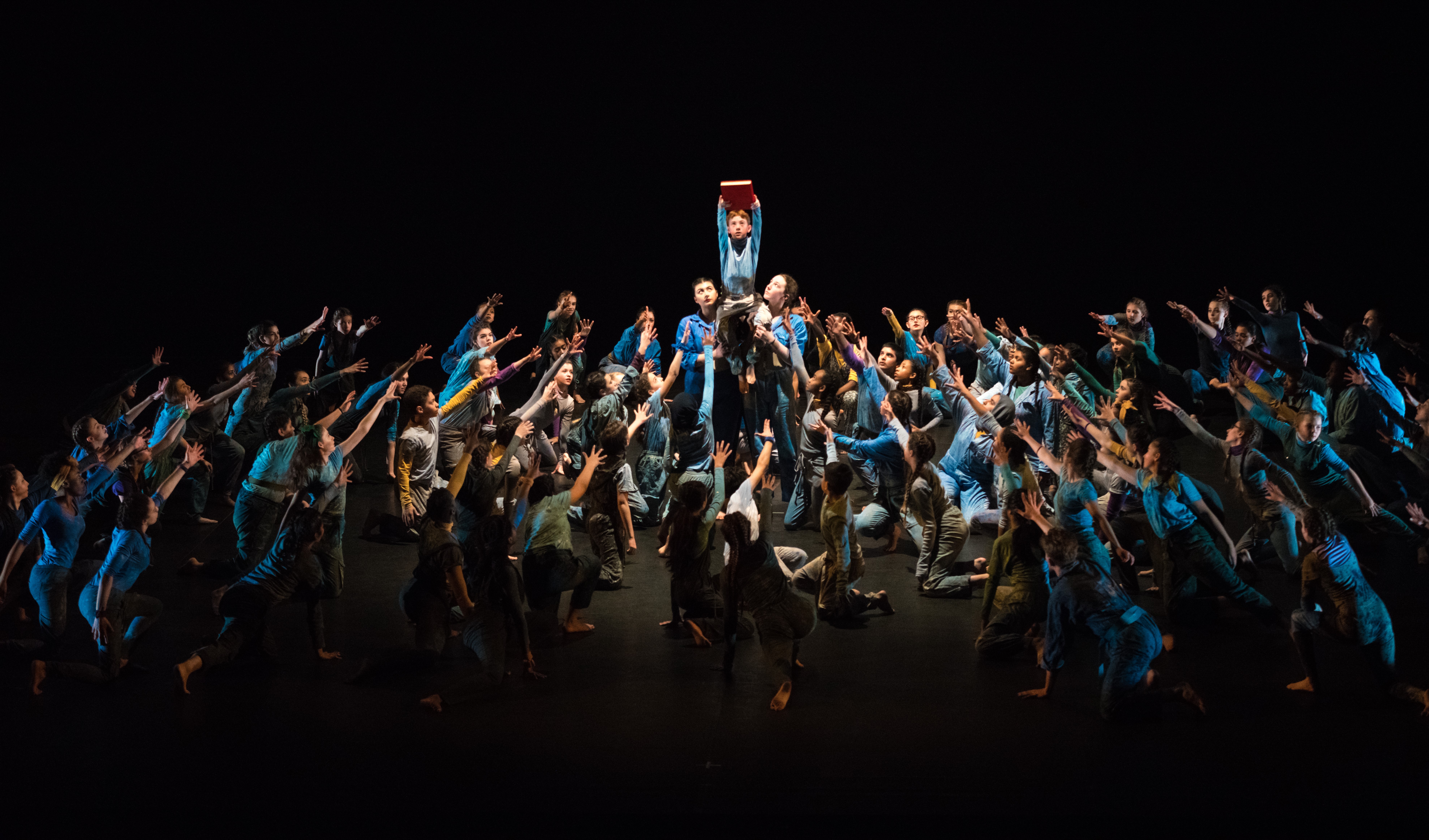 Dance Journeys, an initiative of ENB, connected schools through collaborative dance workshops. It was, and continues to be, a brilliant way to bring children and young people together with dance experts to work together in the world of performance art so that they can experience the rigours, disciplines, joys and inspiration of creating a new choreography for performance linked to themes highlighted in ENB’s current productions. What makes Dance Journeys particularly stand out to John Lyon’s Charity as a special model to highlight and celebrate is that it has allowed ENB to open its doors to normal schools across London. The project has provided not only dance opportunities to young people but new opportunities that they may never have experienced had it not been for our funding. As a result, the children, their parents and teachers at the schools who have taken part in Dance Journeys have all had the privilege to participate in a high-end professional production, whether it’s dancing on the stage or watching the magic happen from the audience. Dance Journeys has not only allowed young people to experience how a professional performance comes together but also reached a large number of pupils who may never have thought they would be interested in the arts sector.
Dance Journeys, an initiative of ENB, connected schools through collaborative dance workshops. It was, and continues to be, a brilliant way to bring children and young people together with dance experts to work together in the world of performance art so that they can experience the rigours, disciplines, joys and inspiration of creating a new choreography for performance linked to themes highlighted in ENB’s current productions. What makes Dance Journeys particularly stand out to John Lyon’s Charity as a special model to highlight and celebrate is that it has allowed ENB to open its doors to normal schools across London. The project has provided not only dance opportunities to young people but new opportunities that they may never have experienced had it not been for our funding. As a result, the children, their parents and teachers at the schools who have taken part in Dance Journeys have all had the privilege to participate in a high-end professional production, whether it’s dancing on the stage or watching the magic happen from the audience. Dance Journeys has not only allowed young people to experience how a professional performance comes together but also reached a large number of pupils who may never have thought they would be interested in the arts sector. 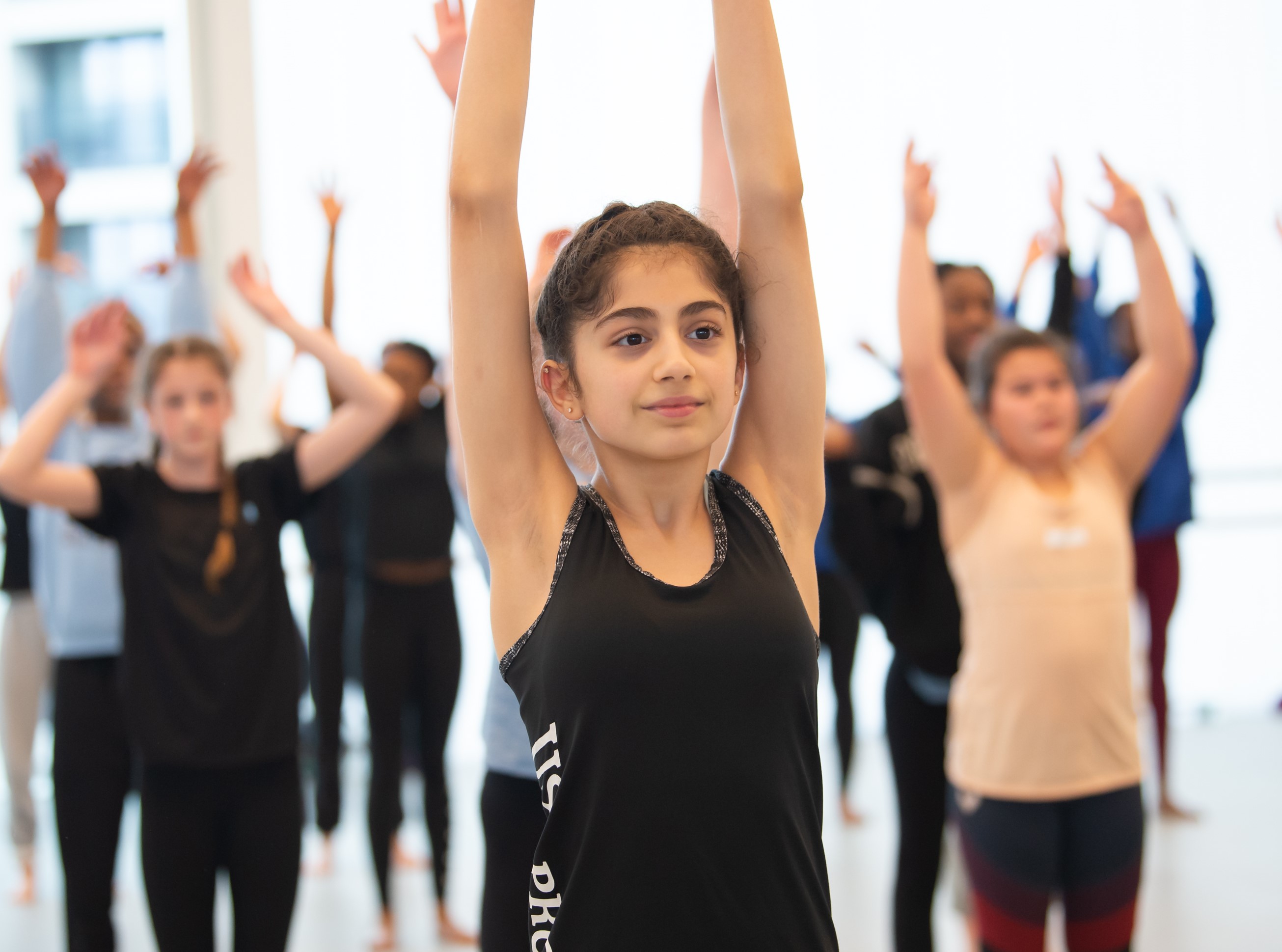 As a result, several young people have gone onto pursue careers in dance, for example joining English National Ballet’s youth company ENBYouthCo or the Ailey Studios in New York – following their involvement with the project. It is fantastic to see how this project has not only inspired young people but opened doors for them. The model is now so successful that there are plans to expand Dance Journeys even further with opportunities to take it to Southampton and work with schools and youth companies there, as well as plans to establish a project with the Royal College of Music (RCM) and the creation of a Creative Fellows programme in London. With the joint confidence from both ENB and JLC in the Dance Journeys’ model, as well as the trusted relationship between organisation and funder, Dance Journeys has since become ENB’s flagship engagement project. Since 2013, over 900 young people have worked with ENB and experienced being part of a professional dance company. The first schools to participate were Capital City Academy (Brent) and Hammersmith Academy (Hammersmith & Fulham). Young students took part in Lest We Forget, the ground-breaking collaboration between ENB and Akram Khan Company to commemorate the First World War. Dance Journeys incorporates wider aspects of ballet production, including sound, video and backstage work. Young people not only learn about dance but collaborate with other young, aspiring musicians from RCM Junior Department who often play specially commissioned music. The project enables young people to experience the same opportunities as a professional would within the arts industry. It is inclusive and no one is discriminated or left out because of who they are or where they come from. The project is not about finding London’s young new talent who will enter the profession but to give young people exposure to the creative world and allow them to be inspired, motivated and gain confidence.
As a result, several young people have gone onto pursue careers in dance, for example joining English National Ballet’s youth company ENBYouthCo or the Ailey Studios in New York – following their involvement with the project. It is fantastic to see how this project has not only inspired young people but opened doors for them. The model is now so successful that there are plans to expand Dance Journeys even further with opportunities to take it to Southampton and work with schools and youth companies there, as well as plans to establish a project with the Royal College of Music (RCM) and the creation of a Creative Fellows programme in London. With the joint confidence from both ENB and JLC in the Dance Journeys’ model, as well as the trusted relationship between organisation and funder, Dance Journeys has since become ENB’s flagship engagement project. Since 2013, over 900 young people have worked with ENB and experienced being part of a professional dance company. The first schools to participate were Capital City Academy (Brent) and Hammersmith Academy (Hammersmith & Fulham). Young students took part in Lest We Forget, the ground-breaking collaboration between ENB and Akram Khan Company to commemorate the First World War. Dance Journeys incorporates wider aspects of ballet production, including sound, video and backstage work. Young people not only learn about dance but collaborate with other young, aspiring musicians from RCM Junior Department who often play specially commissioned music. The project enables young people to experience the same opportunities as a professional would within the arts industry. It is inclusive and no one is discriminated or left out because of who they are or where they come from. The project is not about finding London’s young new talent who will enter the profession but to give young people exposure to the creative world and allow them to be inspired, motivated and gain confidence. 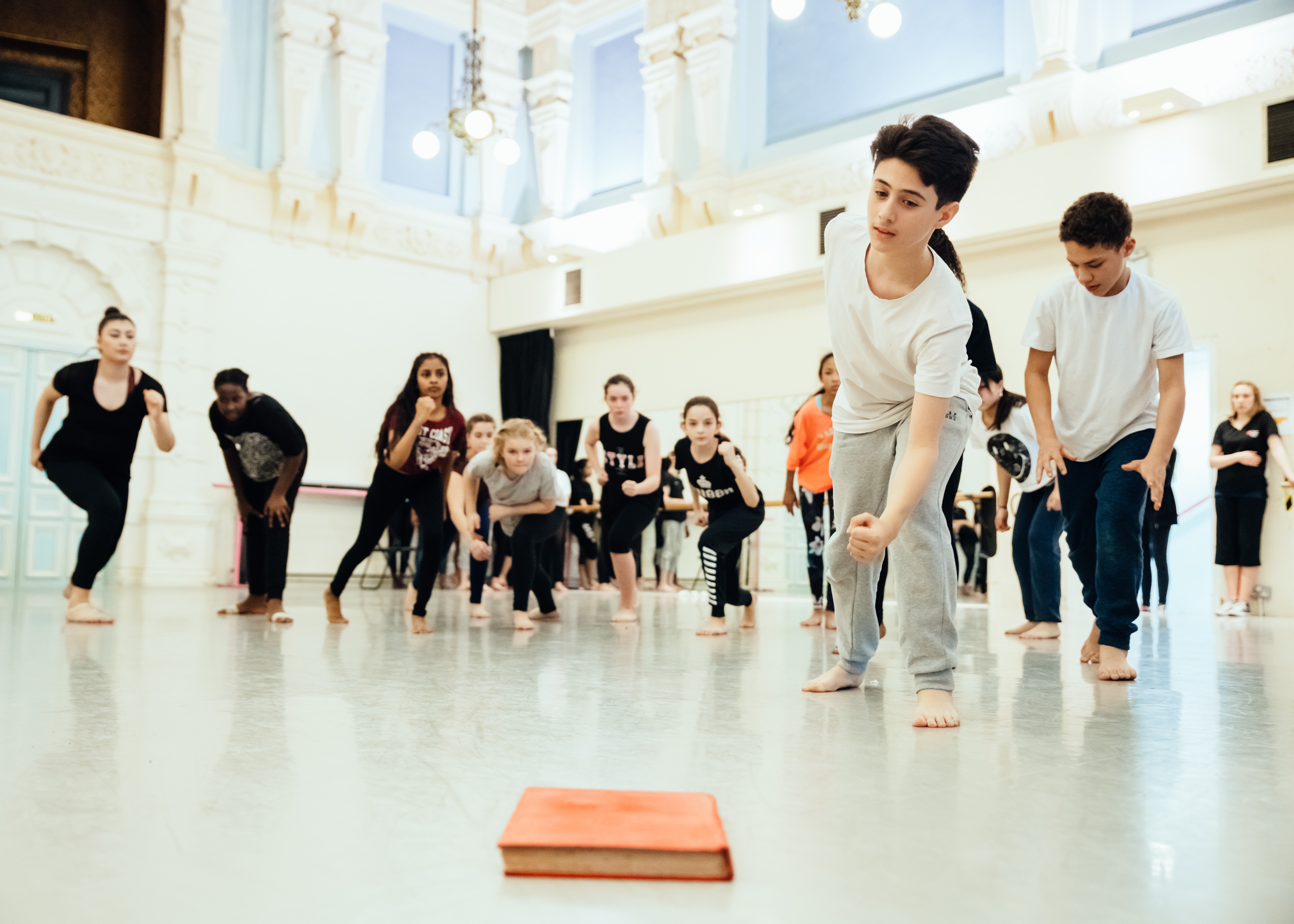 This project required ENB to take a leap of faith. With gentle and persistent encouragement from John Lyon’s Charity, Dance Journeys changed the way that ENB approaches its Creative Learning offer. Rather than it being siloed and separate from ENB’s main programme of work, Dance Journeys created an intrinsic bond between the professional ballet company and young people. When it started in 2014, Dance Journeys students were invited to perform as part of a curtain raiser to the ENB season at the Barbican, dancing on the same stage, but not to the same audience as the professional production. By 2019, ENB’s commitment to Dance Journeys had grown to the extent that it was now programmed as an evening performance during ENB’s Sadler’s Wells Theatre season She Persisted. Not only were young people influenced and inspired by ENB’s high quality and innovative body of works, Dance Journeys also gave the students an opportunity to dance alongside professional ballet dancers and Dance Journeys Unchartered 2019 was embedded as part of the main professional production at Sadler’s Wells with young people sharing the same stage as professional dancers. The impact on the young people of coming into close contact with professional ballet dancers, musicians and technicians cannot be underestimated and the resulting performances were profoundly moving and a testament to ENB’s forward thinking in this work. The logistical challenges for ENB to working in this way cannot be overestimated but with a shared desire to have a greater impact on children and young people, the success of Dance Journeys is largely down to the mutual respect between ENB and John Lyon’s Charity. Fleur Derbyshire-Fox, Director of Engagement at ENB says “We simply couldn’t have evolved Dance Journeys without the support of John Lyon’s Charity. It really has been life changing for ENB because it has moved us on so much from where we were back in 2009. We call it our flagship project because it is a beacon for us and will continue to be. I think JLC took a punt and really trusted us to deliver something special for three years. I loved the trusted relationship with JLC, I just think it’s really special. What Dance Journeys proves is that if you have a trusted relationship with a funder, you can achieve so much. It really does feel like a partnership”.
This project required ENB to take a leap of faith. With gentle and persistent encouragement from John Lyon’s Charity, Dance Journeys changed the way that ENB approaches its Creative Learning offer. Rather than it being siloed and separate from ENB’s main programme of work, Dance Journeys created an intrinsic bond between the professional ballet company and young people. When it started in 2014, Dance Journeys students were invited to perform as part of a curtain raiser to the ENB season at the Barbican, dancing on the same stage, but not to the same audience as the professional production. By 2019, ENB’s commitment to Dance Journeys had grown to the extent that it was now programmed as an evening performance during ENB’s Sadler’s Wells Theatre season She Persisted. Not only were young people influenced and inspired by ENB’s high quality and innovative body of works, Dance Journeys also gave the students an opportunity to dance alongside professional ballet dancers and Dance Journeys Unchartered 2019 was embedded as part of the main professional production at Sadler’s Wells with young people sharing the same stage as professional dancers. The impact on the young people of coming into close contact with professional ballet dancers, musicians and technicians cannot be underestimated and the resulting performances were profoundly moving and a testament to ENB’s forward thinking in this work. The logistical challenges for ENB to working in this way cannot be overestimated but with a shared desire to have a greater impact on children and young people, the success of Dance Journeys is largely down to the mutual respect between ENB and John Lyon’s Charity. Fleur Derbyshire-Fox, Director of Engagement at ENB says “We simply couldn’t have evolved Dance Journeys without the support of John Lyon’s Charity. It really has been life changing for ENB because it has moved us on so much from where we were back in 2009. We call it our flagship project because it is a beacon for us and will continue to be. I think JLC took a punt and really trusted us to deliver something special for three years. I loved the trusted relationship with JLC, I just think it’s really special. What Dance Journeys proves is that if you have a trusted relationship with a funder, you can achieve so much. It really does feel like a partnership”.
The impact of Dance Journeys can be demonstrated by the story of Ludgero Souza who began participating in Dance Journeys in 2016, through Friern Barnet School. After discovering a love of dance and developing his skills through the programme from 2016—2018, he successfully gained a place in ENBYouthCo in 2019, and is still an active member of the youth company. He gained an ENB professional placement during lockdown, demonstrating dance material for lead artists for ENB online platform BalletActive and the newly launched ENBYouthCo-nnect. By taking part in Dance Journeys, Ludgero found his passion for dance and decided to pursue his interest further. Louise Peacock (Dance Teacher) from Copthall School, commented: “Dance Journeys has given our students the most amazing experience of working within a professional environment. The opportunity of working with a professional choreographer has totally inspired them and their growth in terms of becoming confident and engaging performers has been exceptional.” ENB seeks to repeat Dance Journeys each year, keeping it relevant and in tune to the needs of young people. It has become a model of good practice and is currently being adapted for regional partnership work including Raymonda in Southampton in 2022. It has become part of the talent pipeline into dance and the creative arts, with more career opportunities and signposting to apprenticeships and professional placements being included – which are needed for our young people now more than ever before. We are incredibly proud of how Dance Journeys has grown and evolved in the last six years and look forward to continuing the positive and trusted relationship with ENB in years to come. If you would like to find out more about Dance Journeys, please click here. –Dance Journeys – English National Ballet

